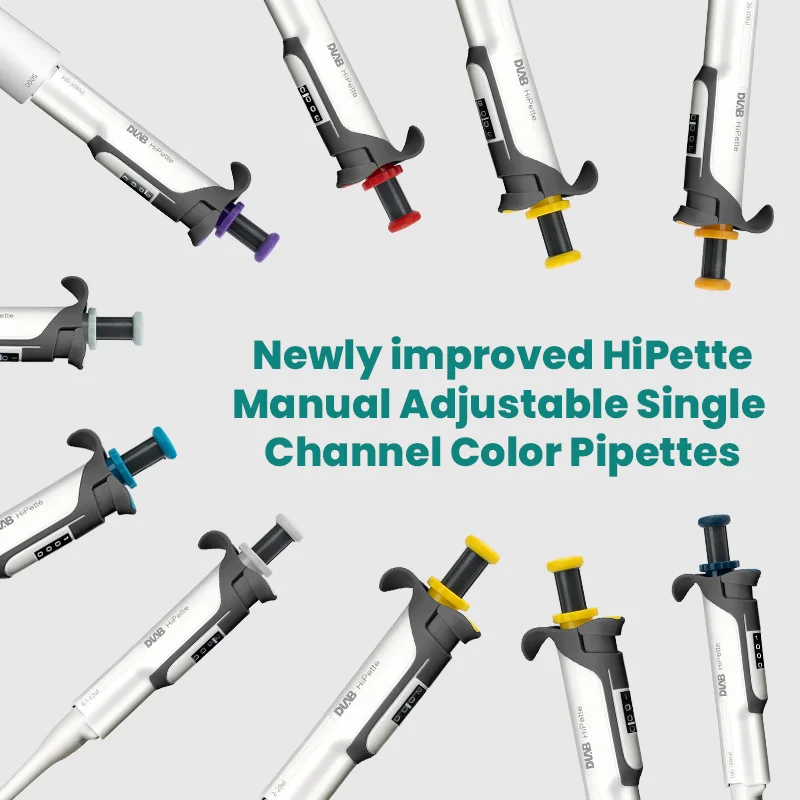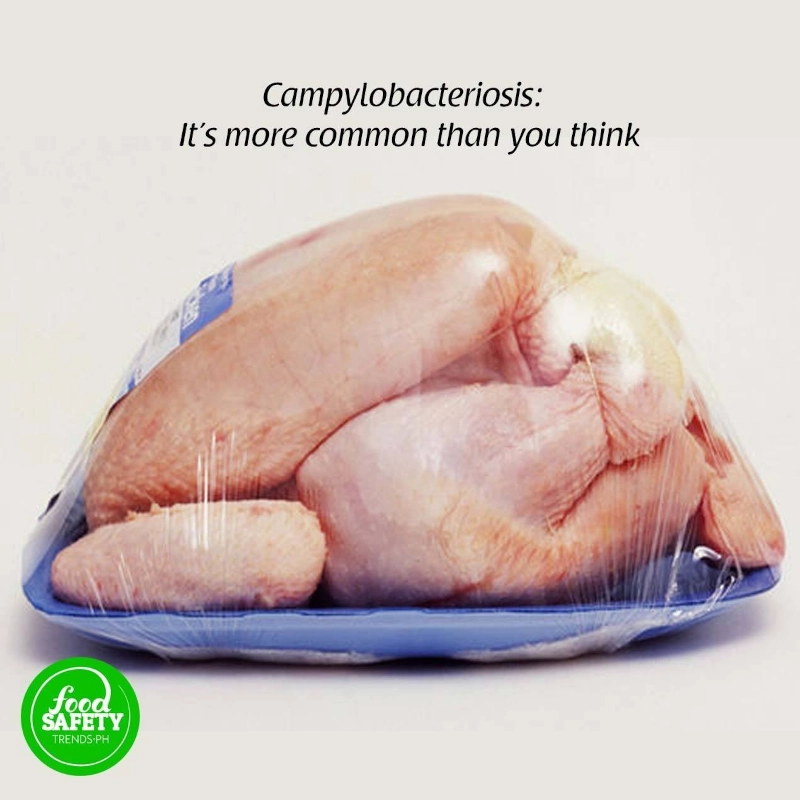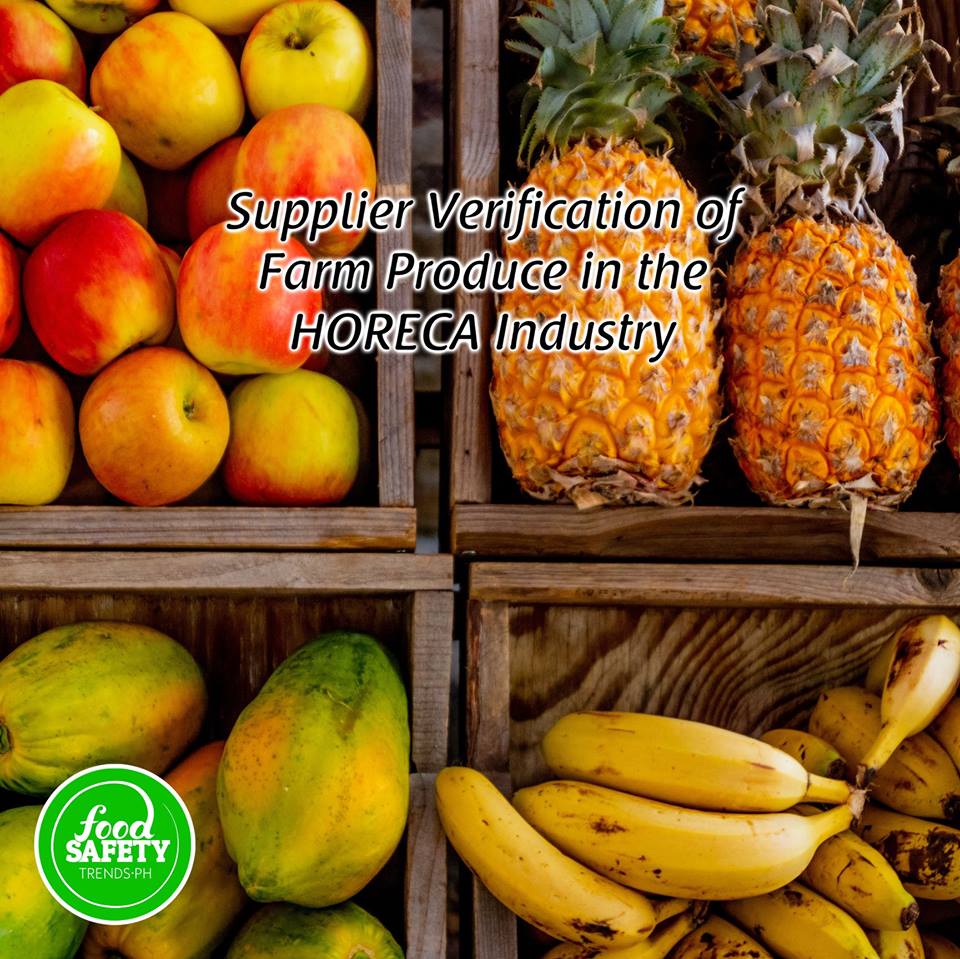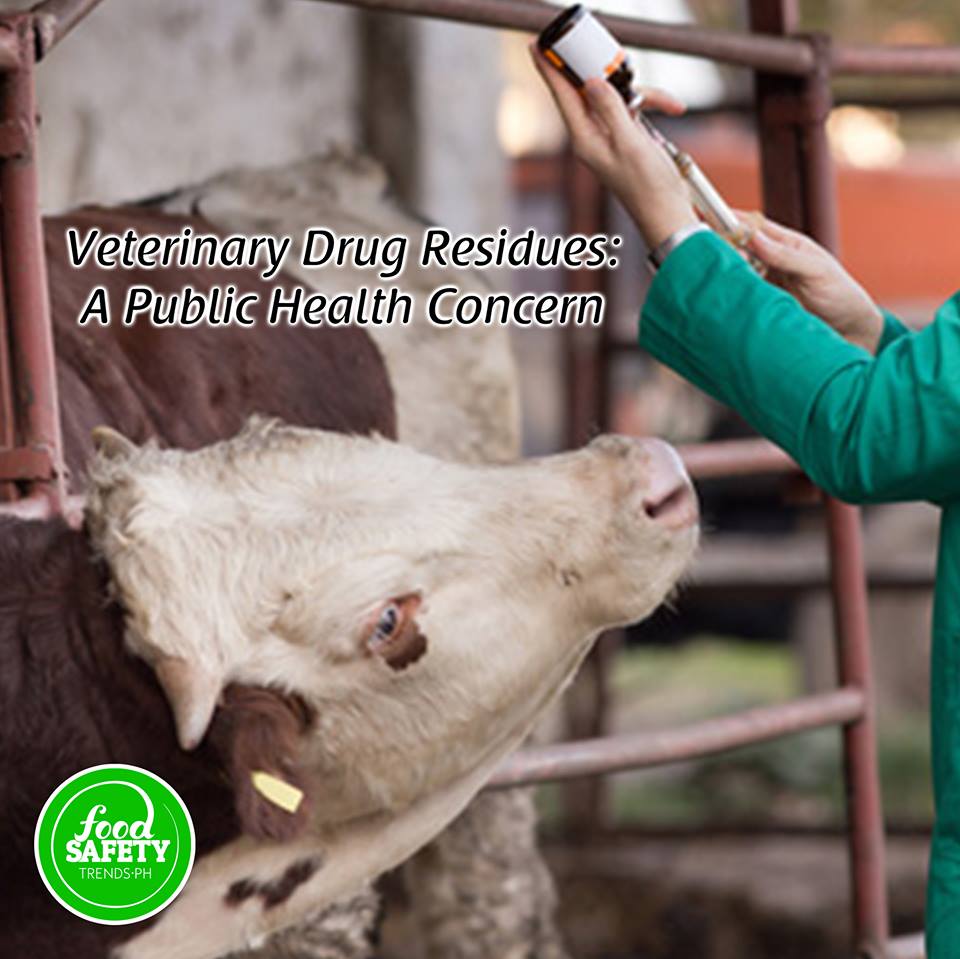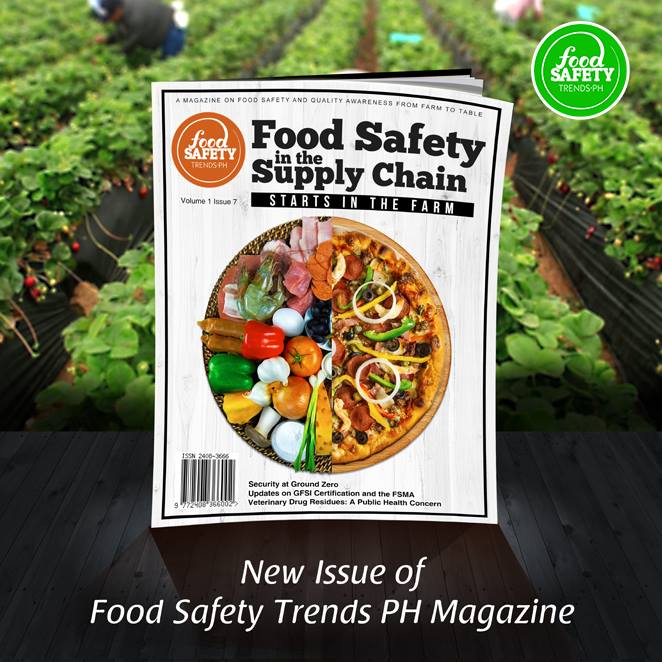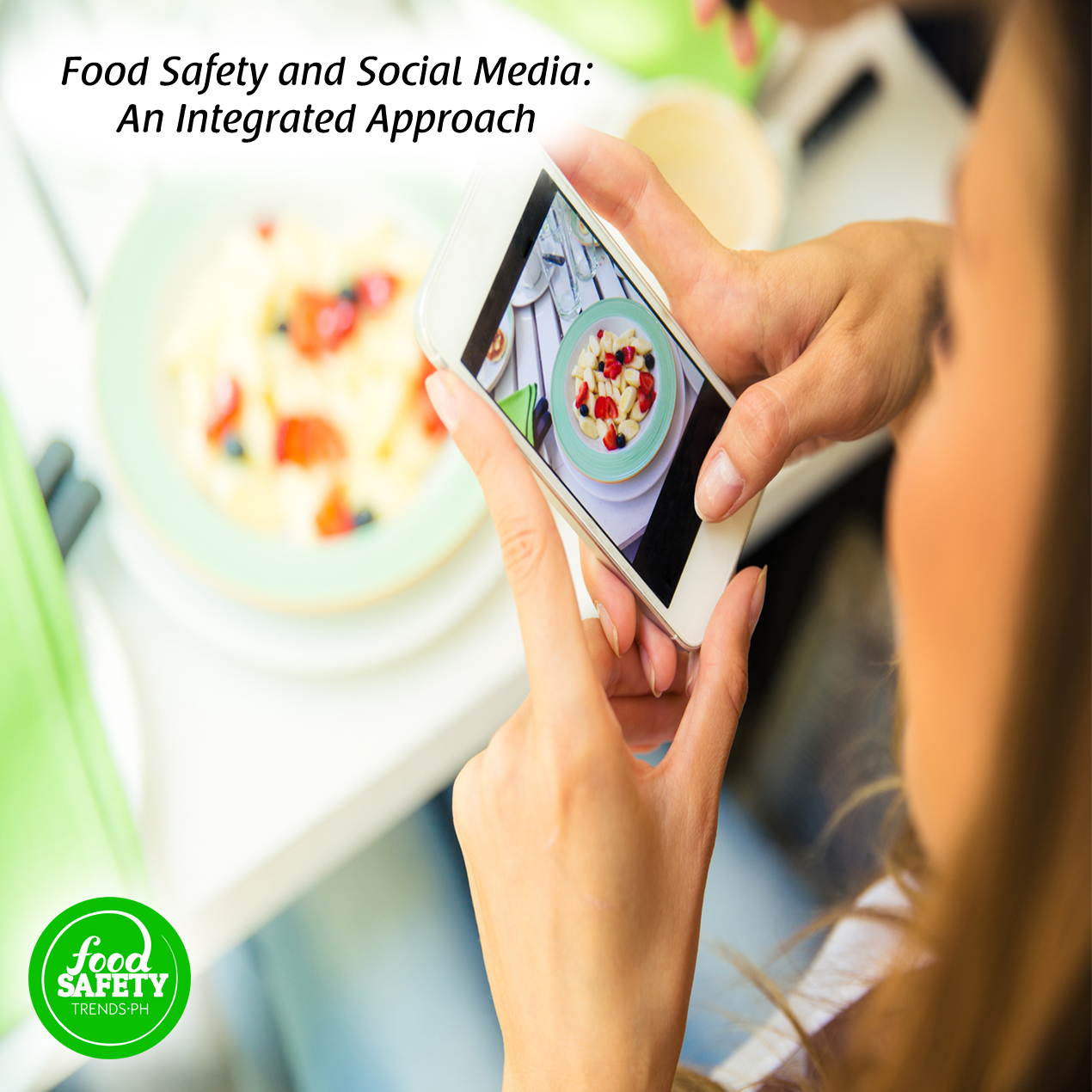April 25, 2024
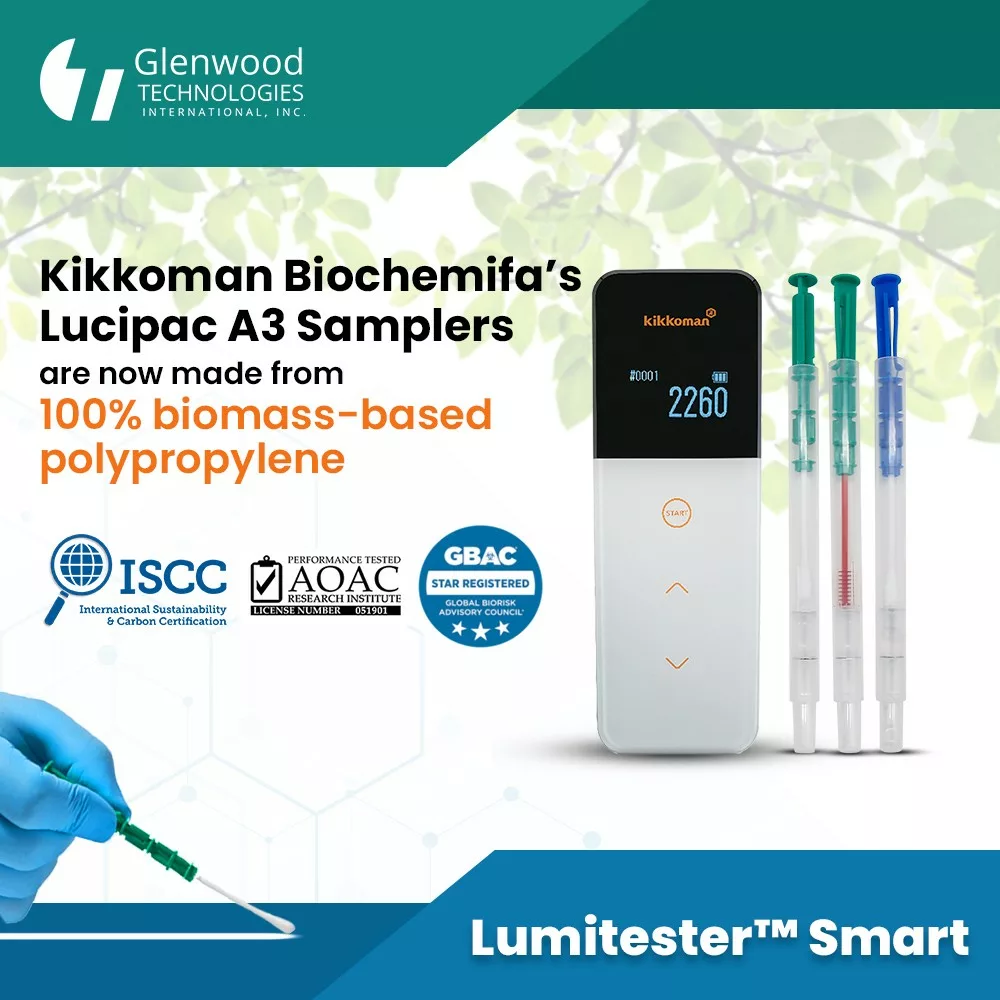
The Future of Hygiene and Sanitation Monitoring is Here: Sustainable and Technologically-Advanced LuciPac™ A3 Swabs
Kikkoman Biochemifa, a leading innovator in hygiene monitoring systems based in Japan, took a significant step towards environmental sustainability with the LuciPac™ A3 swabs. These swabs utilizing A3 Technology (ATP + ADP + AMP) are used in tandem with Lumitester™ Smart, which ensures highly accurate results and superior detection compared to other ATP-based hygiene and monitoring systems.
April 24, 2024

Sorbetes is a summer staple to many Filipinos, a perfect and effective sweet escape from the heat.
April 23, 2024
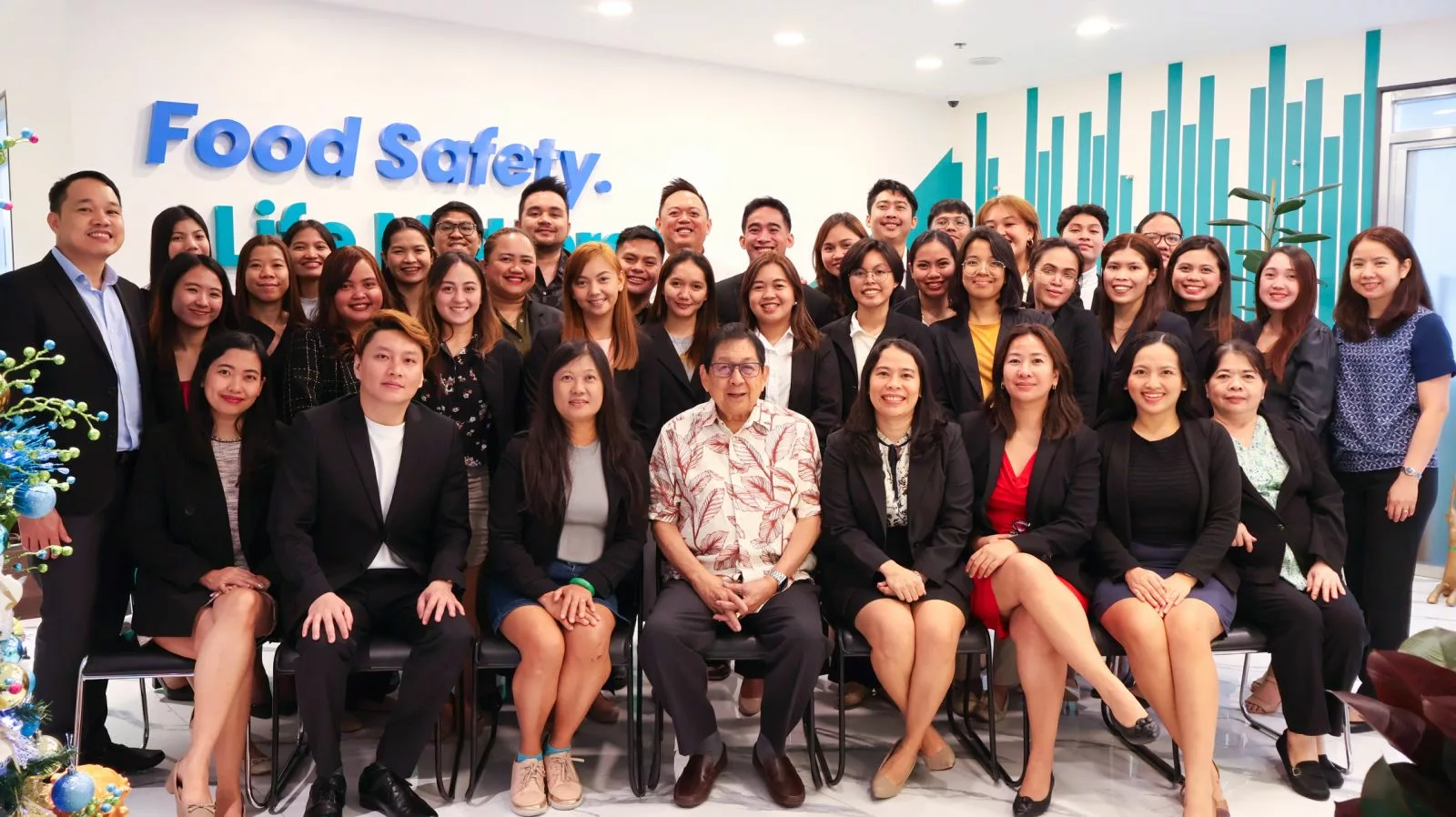
The Philippines' food and feed safety industry witnessed a significant development with the strategic and transformative partnership between Glenwood Technologies International Inc. and Romer Labs. This collaboration leverages Glenwood Technologies' 28 years of experience in distributing rapid diagnostic test kits in the Philippines and Romer Labs' 40+ years of expertise in food and feed safety testing.
April 17, 2024
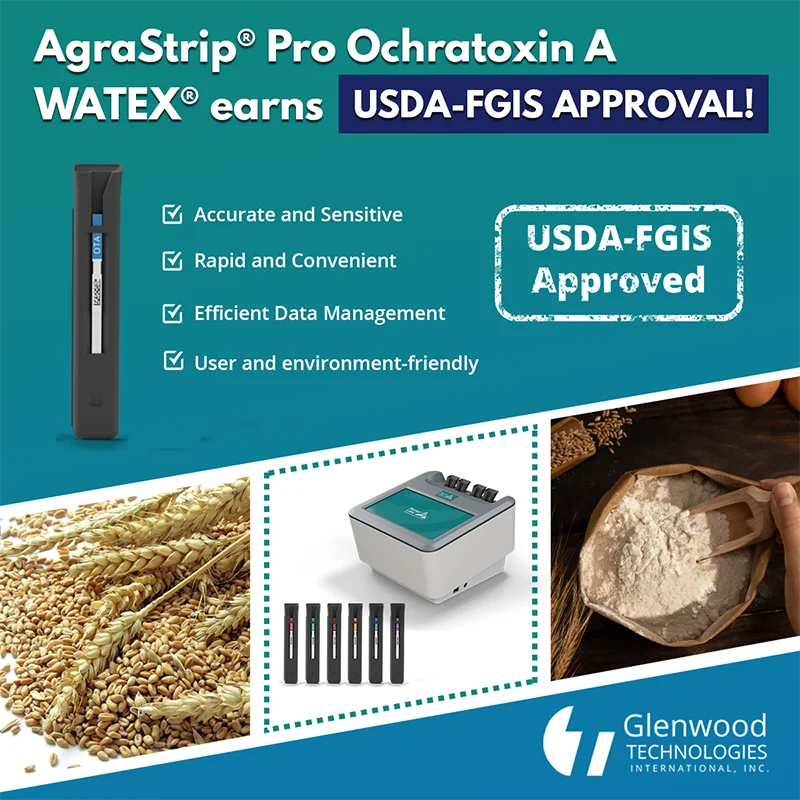
ANNOUNCEMENT: Romer Lab’s AgraStrip® Pro Ochratoxin A WATEX® has been approved by the United States Department of Agriculture – Federal Grain Inspection Service (USDA-FGIS) with certification number FGIS 2024-184. #ConfidenceInEveryTest
April 17, 2024
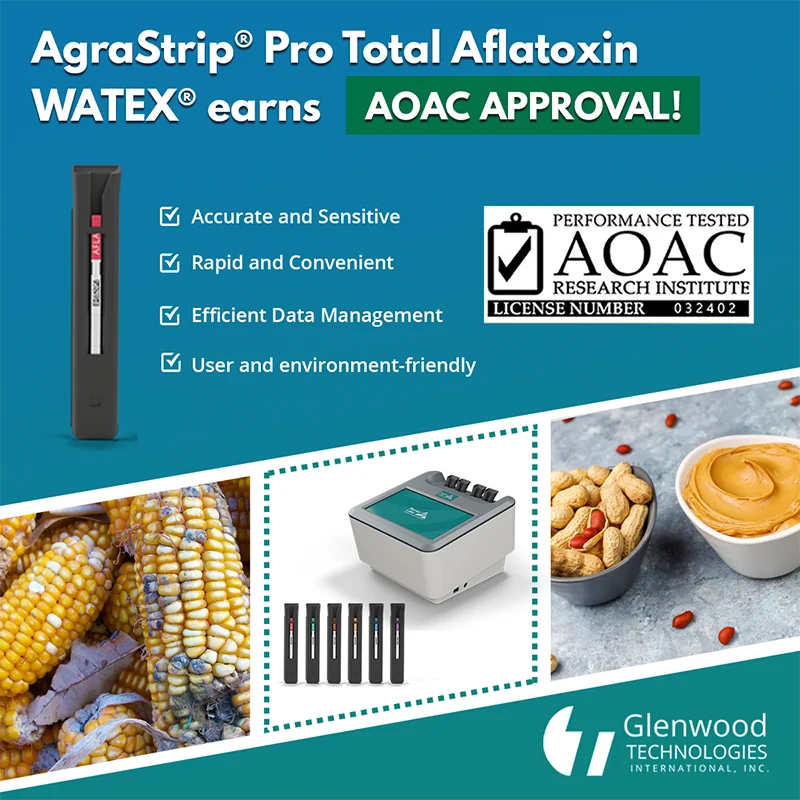
Confidence in Every Test: Romer Labs’ quantitative AgraStrip® Pro Total Aflatoxin WATEX® is now approved by AOAC Research Institute (PTM certification 032402)
March 18, 2024
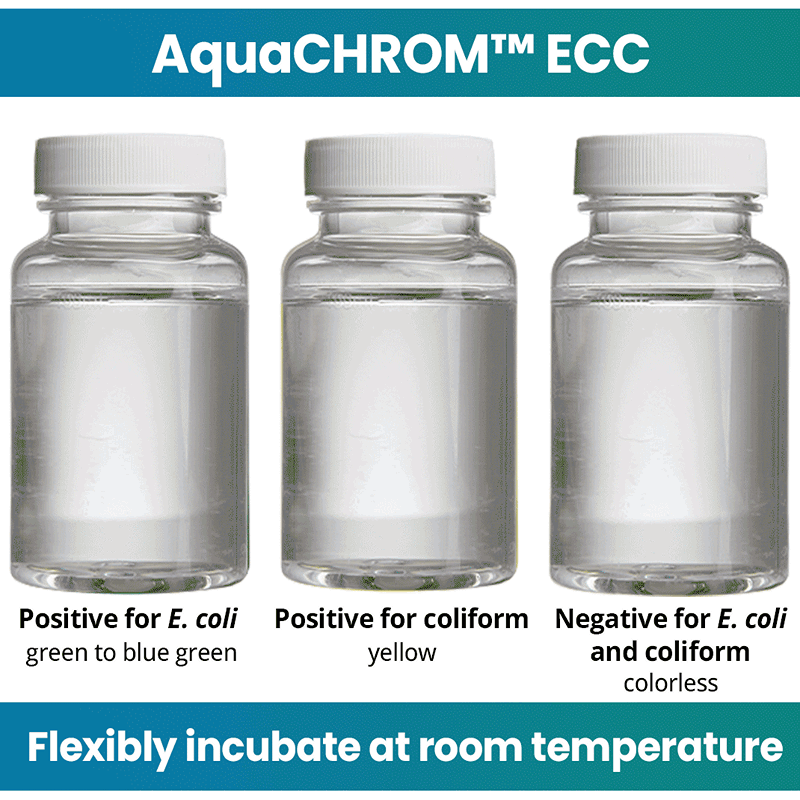
AquaCHROM™ ECC: Flexibly incubate samples at room temperature without the need for a UV lamp!
March 5, 2024
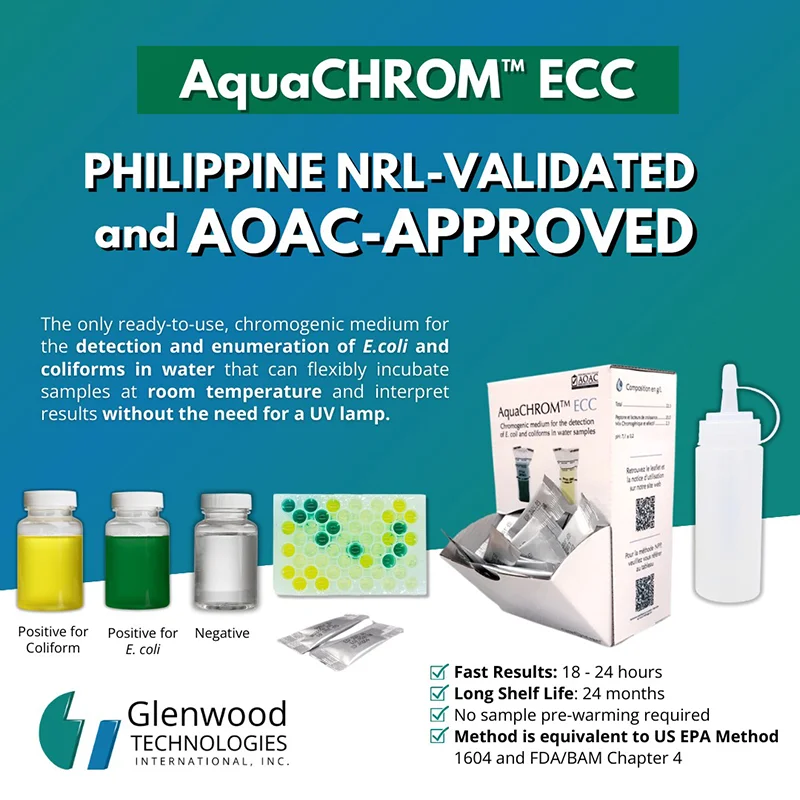
AquaCHROM™ ECC, the Philippine NRL-validated and AOAC-approved
February 21, 2024
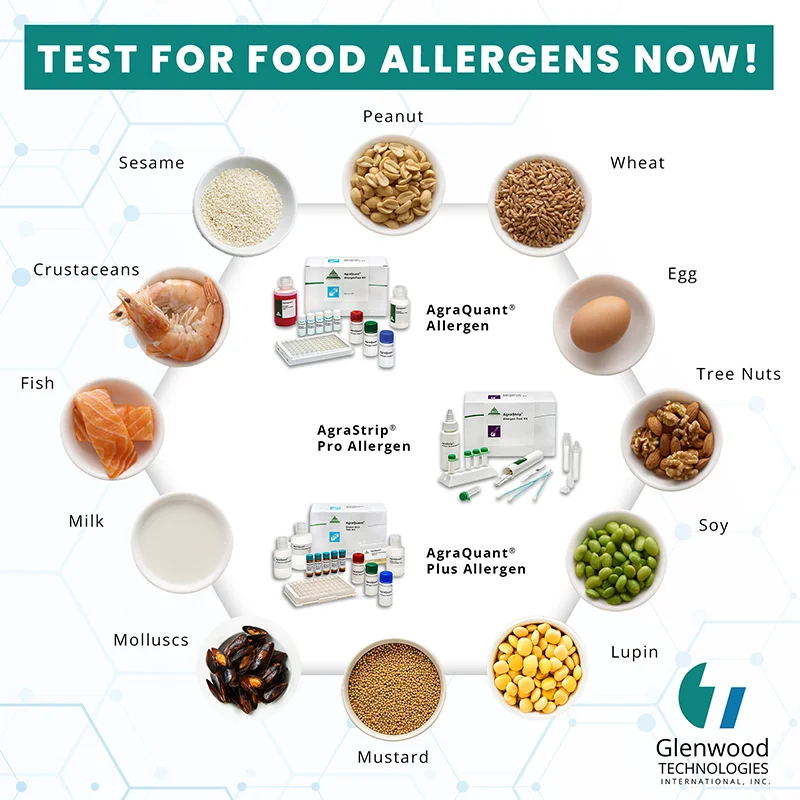
Food allergens are proteins in certain foods that trigger an abnormal immune response in sensitive individuals. Common food allergens include peanuts, tree nuts, milk, eggs, soy, wheat, sesame, fish, and shellfish.
February 14, 2024
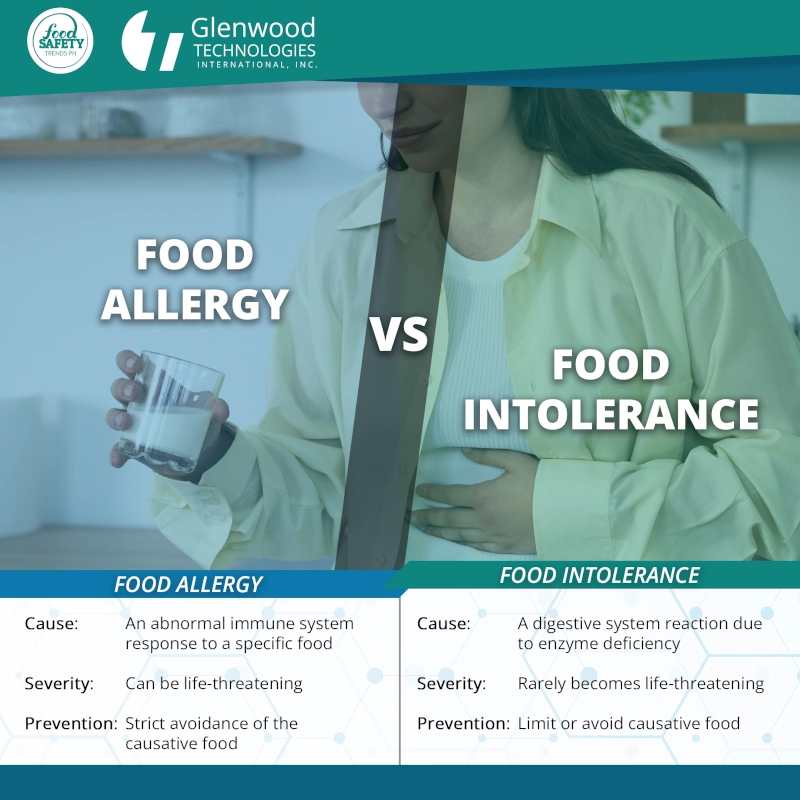
Food Allergy vs. Food Intolerance: What You Need to Know
February 14, 2024

Love is on the menu this Valentine's Day! Whether you're planning a romantic dinner at a restaurant, creating a culinary masterpiece at home, or opting for the convenience of ordering online, ensuring food safety is the key to a delightful and memorable celebration.
February 12, 2024
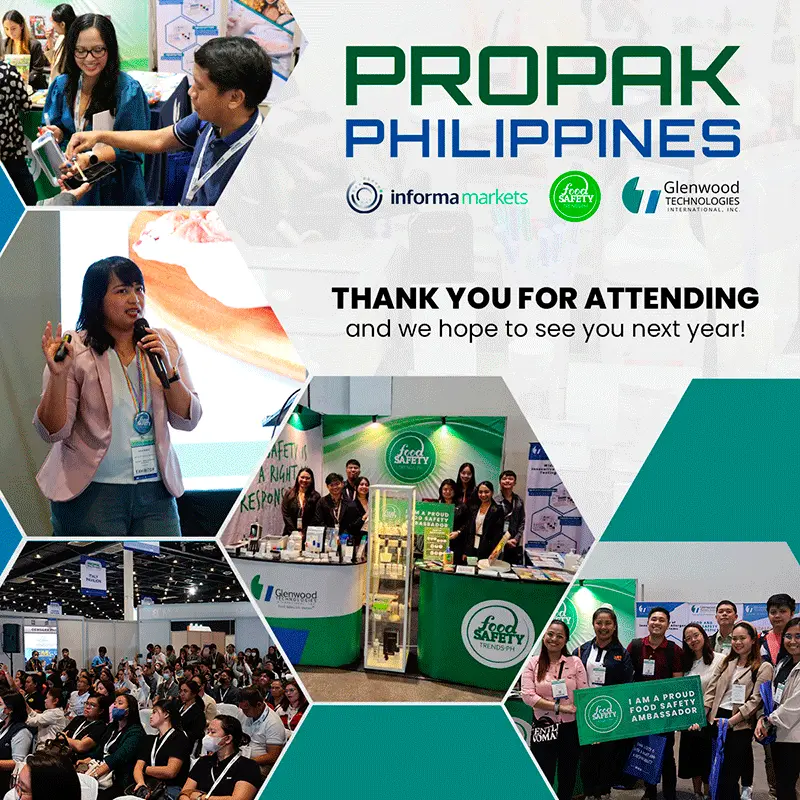
Glenwood and Food Safety Trends PH Magazine (FSTM) took part in the ProPak Philippines' 4th International Processing and Packaging Trade Event, held from January 31 - February 2, 2024, at the World Trade Center in Pasay City.
January 29, 2024
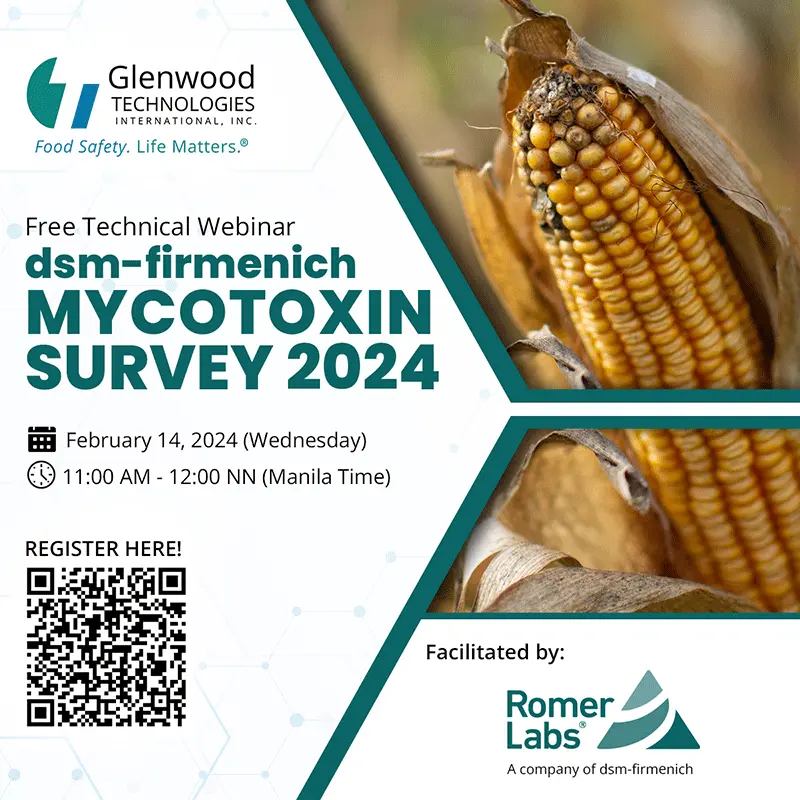
Mycotoxins, produced by fungi, pose a pervasive threat by contaminating various feed ingredients.
January 29, 2024
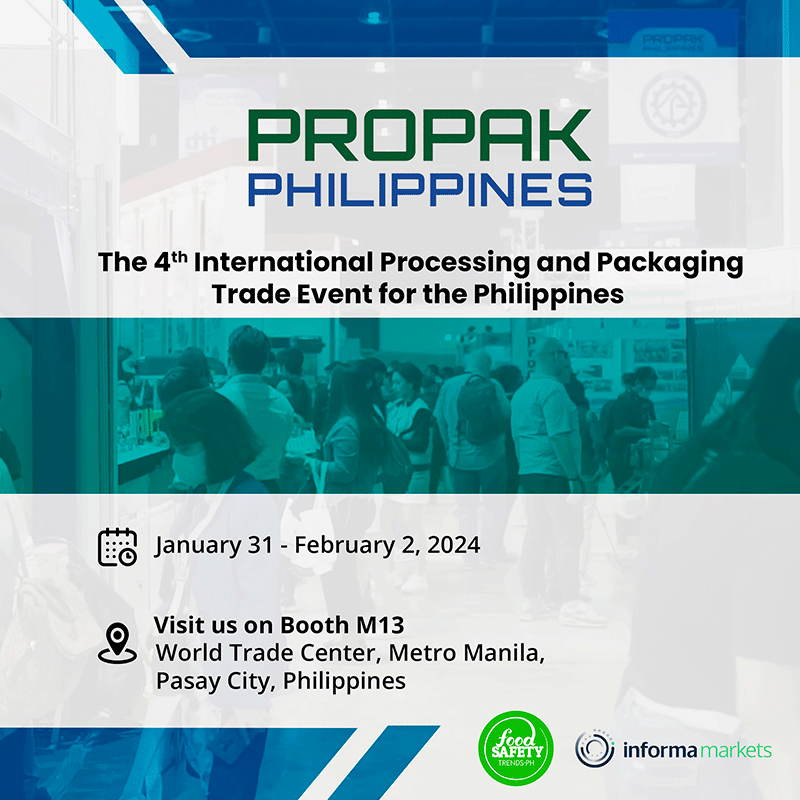
Visit us at Booth M13, at ProPak Philippines 2024 on January 31 – February 2, 2024, to be updated on the trends and updates on food safety, and get a chance to win food safety freebies!
January 16, 2024
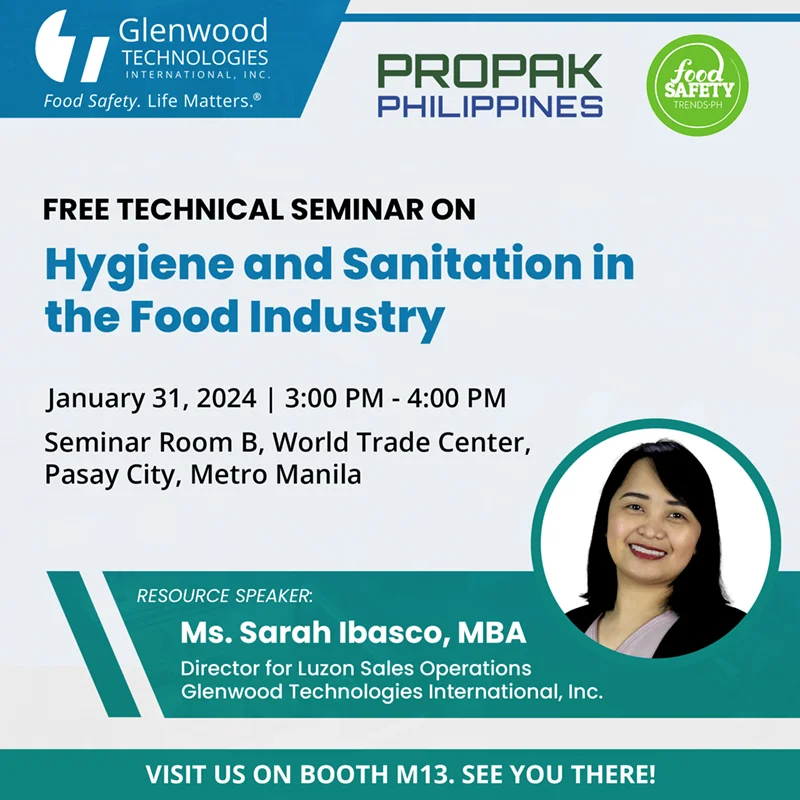
ProPak Philippines’ 4th International Processing and Packaging Trade Event for the Philippines is just around the corner! Visit us on Booth M13 on January 31 – February 2, 2024 at the World Trade Center in Pasay City.
January 11, 2024

Food allergens are proteins in certain foods that trigger an abnormal immune response in sensitive individuals. Common food allergens include peanuts, tree nuts, milk, eggs, soy, wheat, sesame, fish, and shellfish. Based on available data, Filipinos are most susceptible to fish and shellfish allergies. Although the amount of allergen needed to trigger a reaction varies from person to person, once their threshold is reached, they will experience symptoms that range from simple itchy skin to life-threatening anaphylaxis. Unfortunately, there is no known cure for food allergies. Avoidance of allergenic foods is the only foolproof way to prevent allergic reactions. Food manufacturers have the responsibility to assess and declare the presence of food allergens in their products. Failure to properly label potentially allergenic products can pose significant threats to consumers.
January 11, 2024

BactLAB™ is an app designed to accurately and automatically provide bacterial colony count on CompactDry® ready-to-use chromogenic media plates in as fast as 3 seconds. BactLAB™ eliminates the need for a dedicated colony counter with the use of a smart phone or tablet;
December 22, 2023
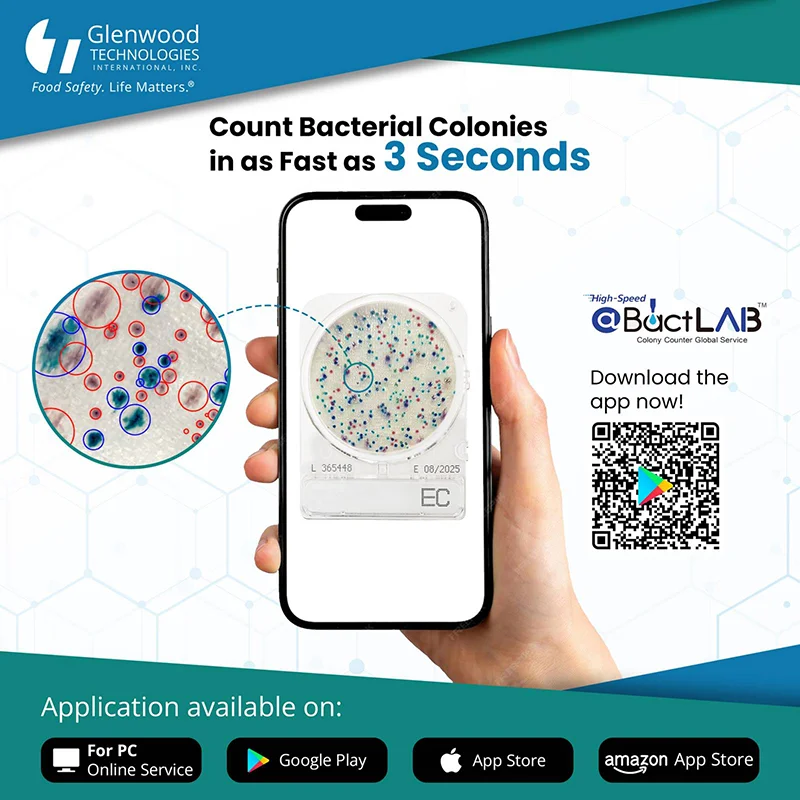
BactLAB™ is an app designed to accurately and automatically provide bacterial colony count on CompactDry® ready-to-use chromogenic media plates in as fast as 3 seconds. BactLAB™ eliminates the need for a dedicated colony counter with the use of a smart phone or tablet;
December 22, 2023

Happy Holidays, food safety ambassadors!
Thank you for another year of your unwavering support and partnership. Here’s to an even more prosperous year in promoting and strengthening the food safety culture in the Philippines!
November 24, 2023
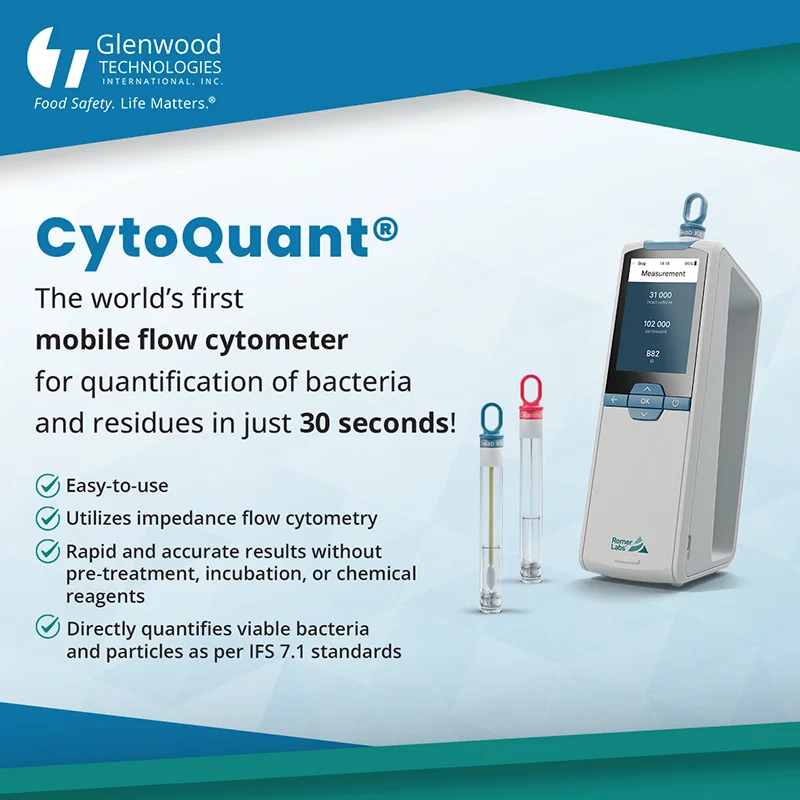
CytoQuant® revolutionizes the way we verify cleaning and utilizing procedures by providing immediate, on-site quantification of total viable bacteria and particles on surfaces. With its cutting-edge impedance-based detection and flow cytometry technology, CytoQuant® delivers rapid and accurate results without the need for pre-treatment, incubation, or chemical reagents.
August 31, 2023
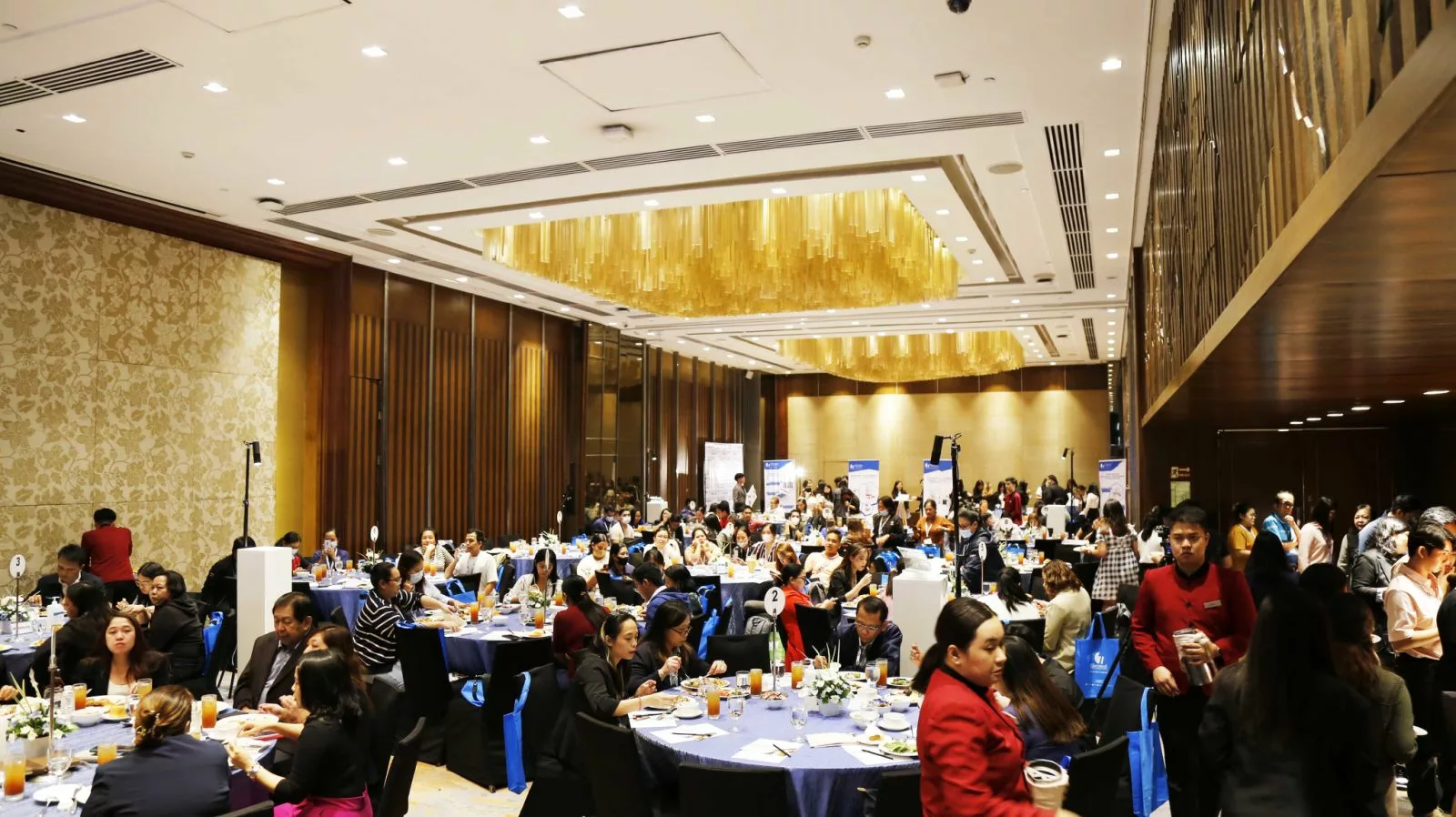
Glenwood Technologies International, Inc. (GTI), once again elevated the discourse on food and feed safety with its highly anticipated event, the Food Safety Summit 2023. Held on August 16th at the Marco Polo Hotel, this summit marked a significant convergence of experts and professionals from the food and feed industry, as well as government institutions. The summit's theme, "The Future of Food Safety: Trends, Technologies, and Transformation," was a testament to the industry's commitment to staying ahead of the curve. Presentations and discussions centered around cutting-edge technologies and emerging topics and trends in food and feed safety.
August 17, 2023
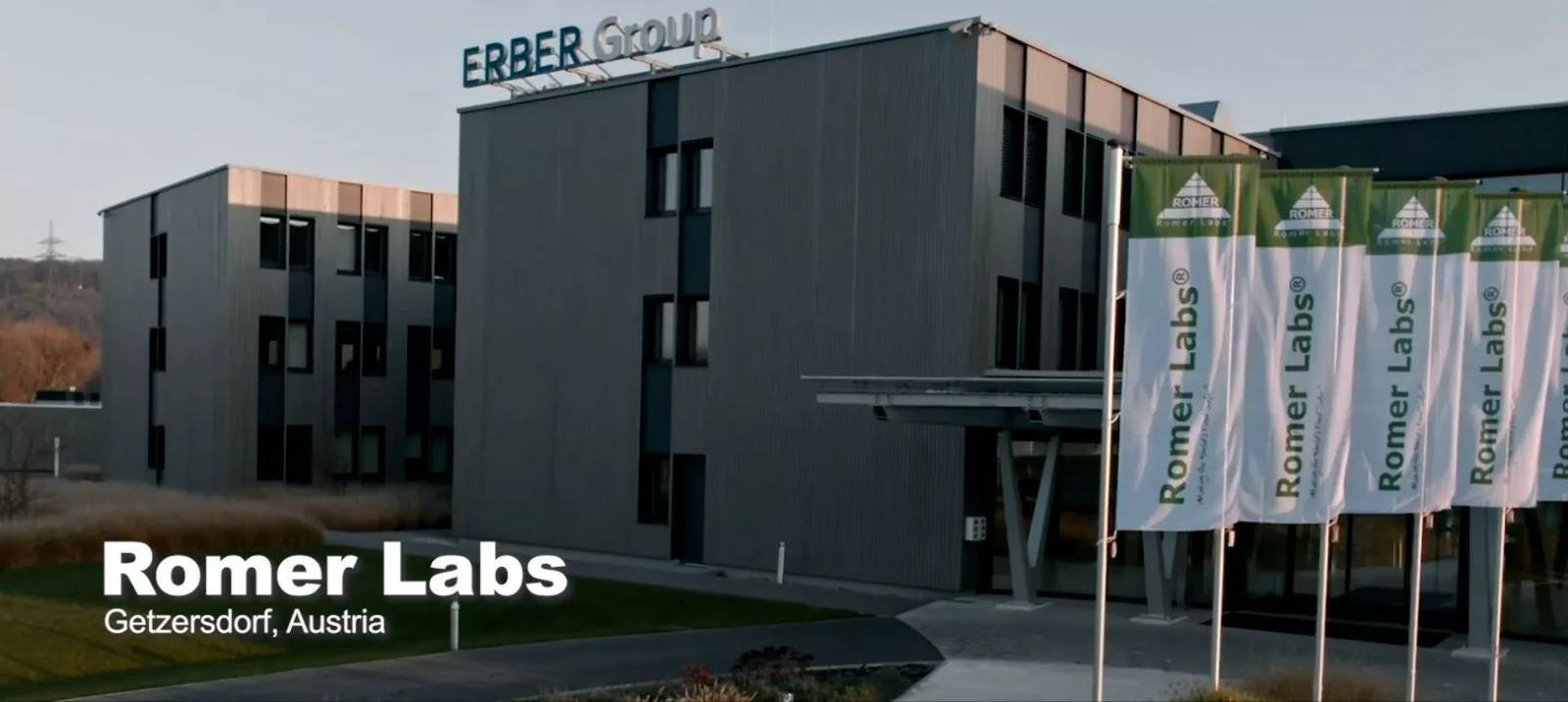
Glenwood, the premier distributor of food and feed safety test kits in the Philippines, has been dedicatedly serving the industry and uplifting food safety awareness in the country since 1995. Today, we are delighted to unveil our esteemed new partners with cutting-edge, cost-efficient, and superior testing solutions, which are set to elevate the food and feed safety standards in the Philippines.
July 26, 2023
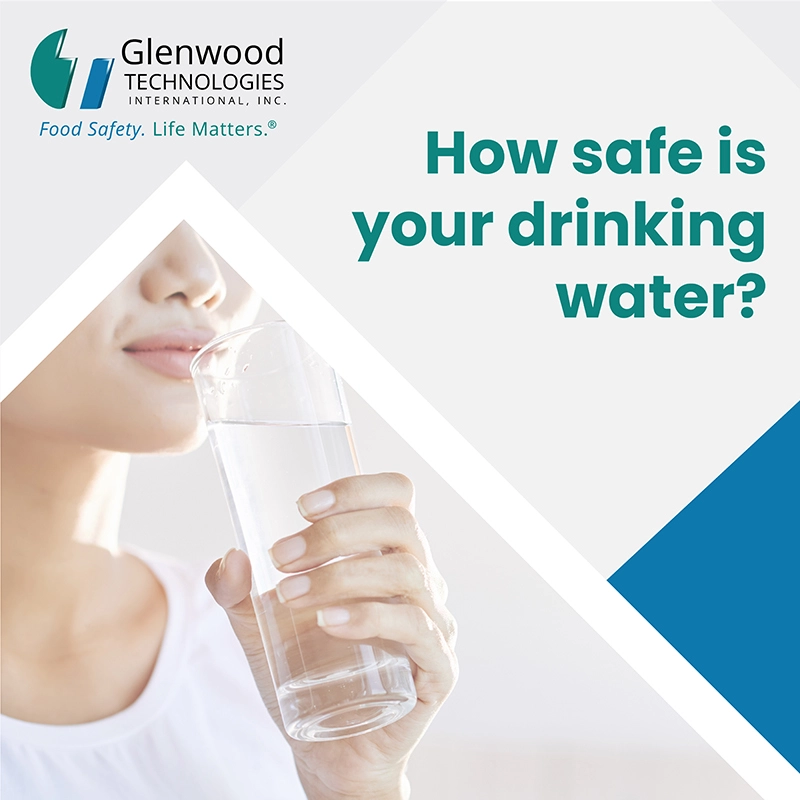
The increasing prevalence of waterborne illnesses has become a pressing concern, especially in regions where access to clean water and proper sanitation is limited. To ensure water safety for human consumption, testing for water contamination is of utmost importance. One crucial parameter in water quality testing is the presence of pathogens, particularly Escherichia coli (E. coli) and coliforms. These microorganisms are indicative of soil and/or fecal contamination, posing serious health risks to the public if the contaminated water is ingested.
June 9, 2023
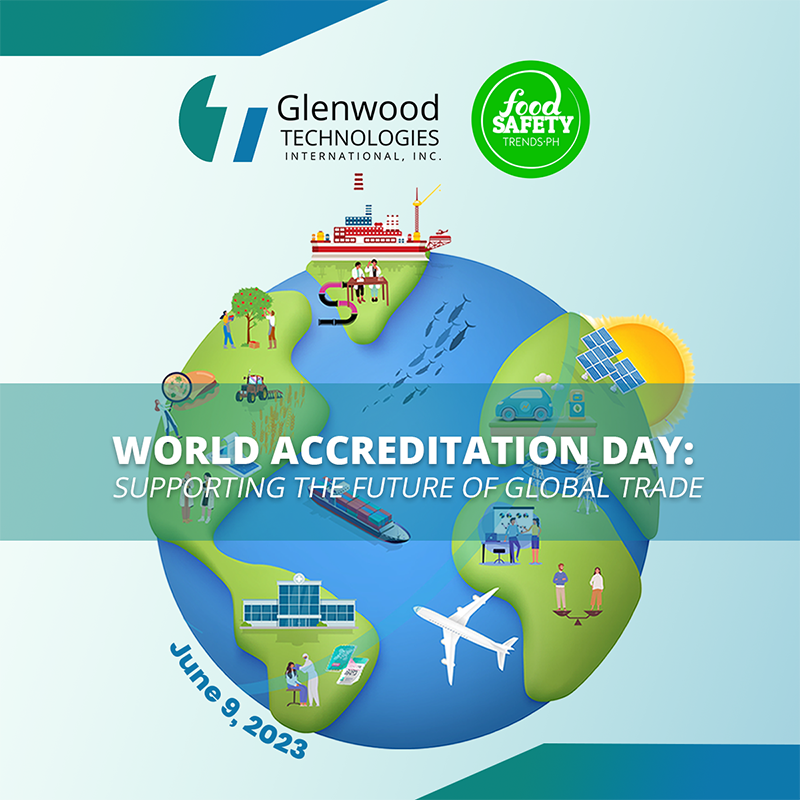
June 8, 2023
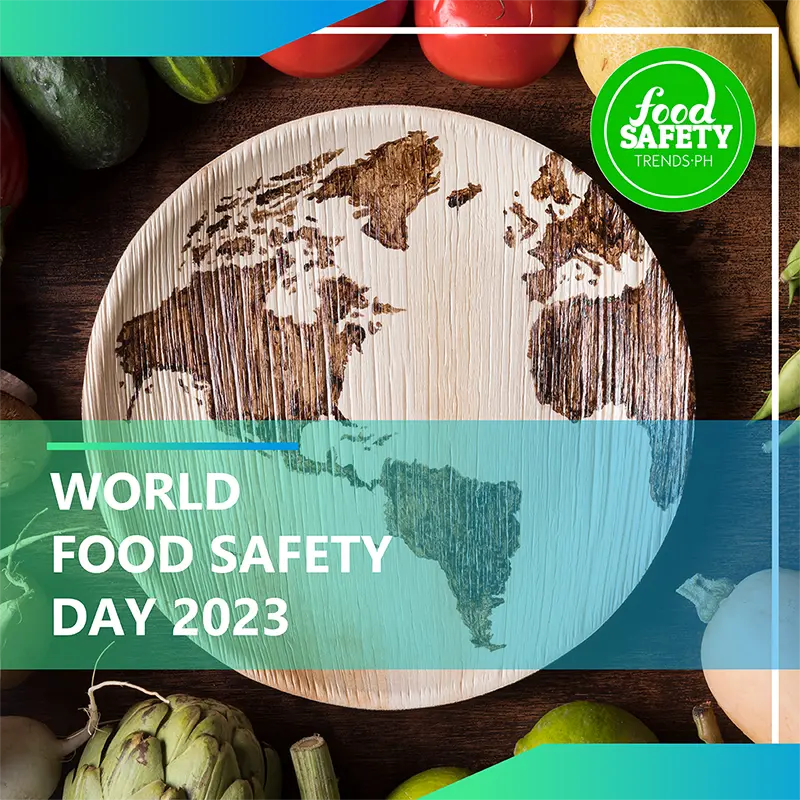
April 28, 2023
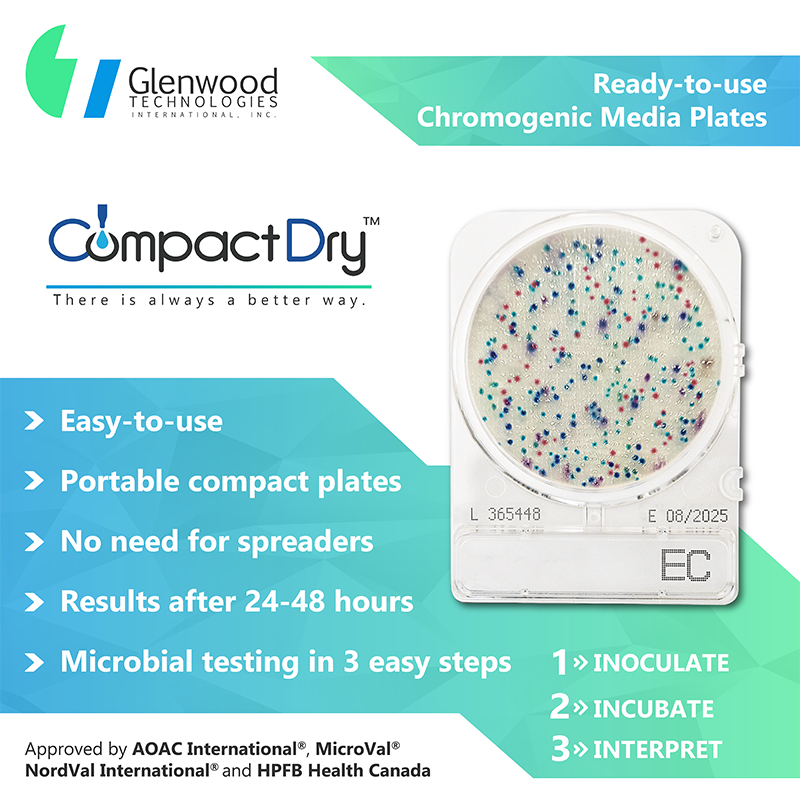
It’s your time to upgrade your microbiological testing with CompactDry™ – the superior choice for microbiologists!
April 28, 2023

It's summertime, and the heat is on! This season is perfect for outdoor picnics and gatherings with your loved ones, but it's important to remember that warm weather can also lead to faster bacterial growth in food, which can cause foodborne illnesses. To ensure your safety and that of your companions, we've got you covered with some useful food safety tips.
April 4, 2023
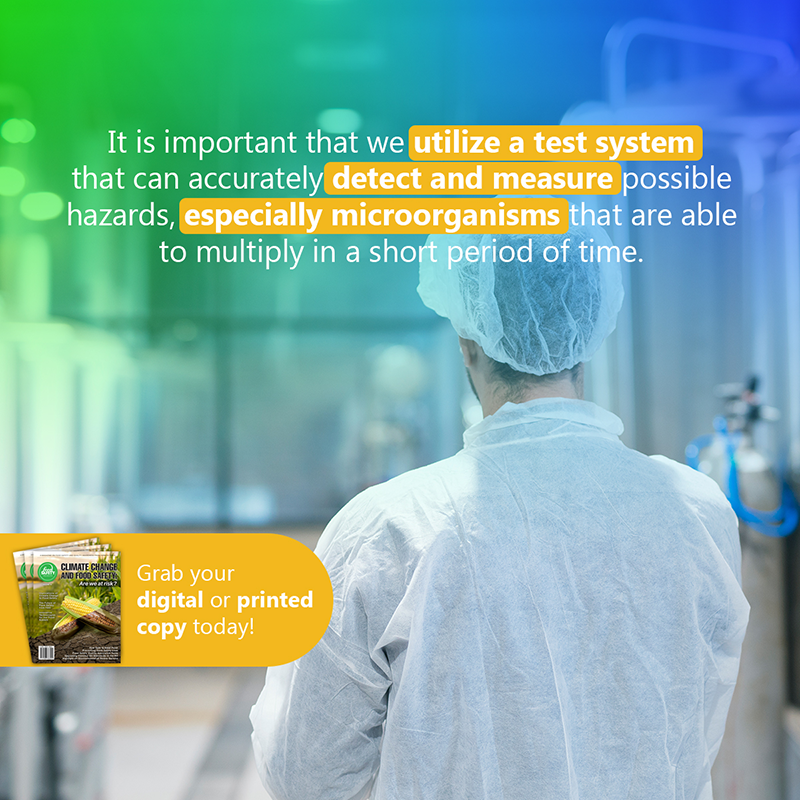
“It is important that we utilize a test system that can accurately detect and measure possible hazards, especially microorganisms that are able to multiply in a short period of time.
March 22, 2023
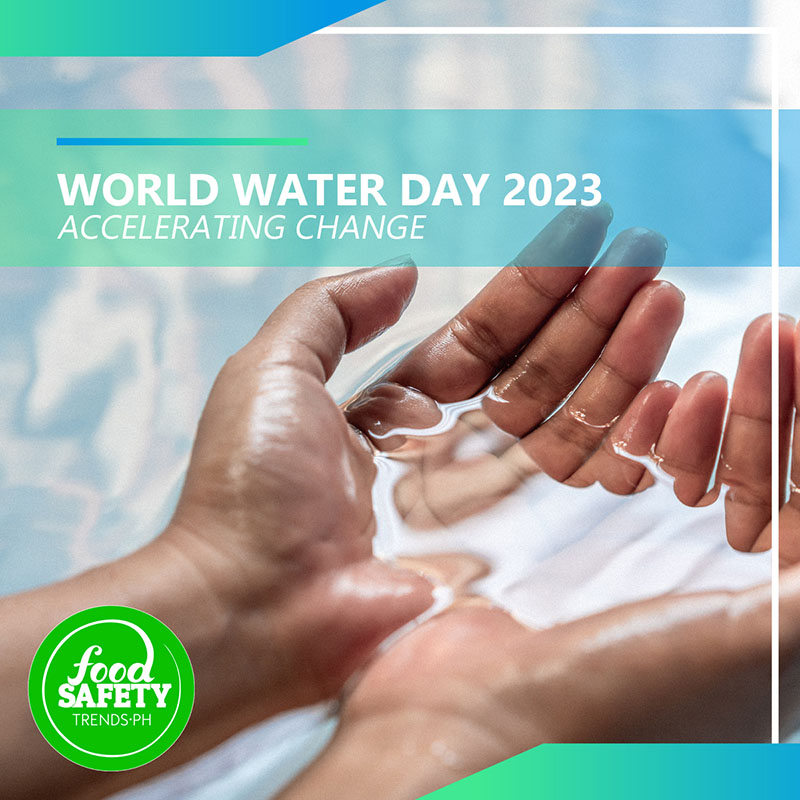
All living things need water to survive; without it, life as we know would not exist. Today, March 22nd, we celebrate water’s importance as we commemorate the United Nations-initiated World Water Day.
March 16, 2023

Looking for a photometer for your water quality testing needs?
March 14, 2023
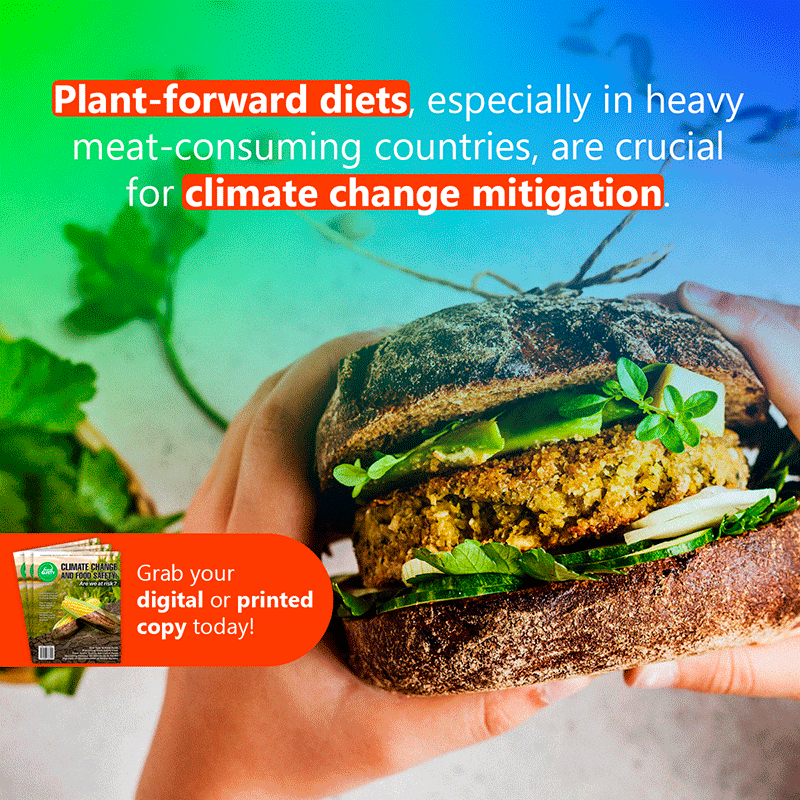
Meat alternatives are advocated as a remedy to environmental, animal welfare, and public health problems linked with farmed meat production and consumption. Plant-forward diets, especially in heavy meat-consuming countries, are crucial for climate change mitigation.
February 15, 2023
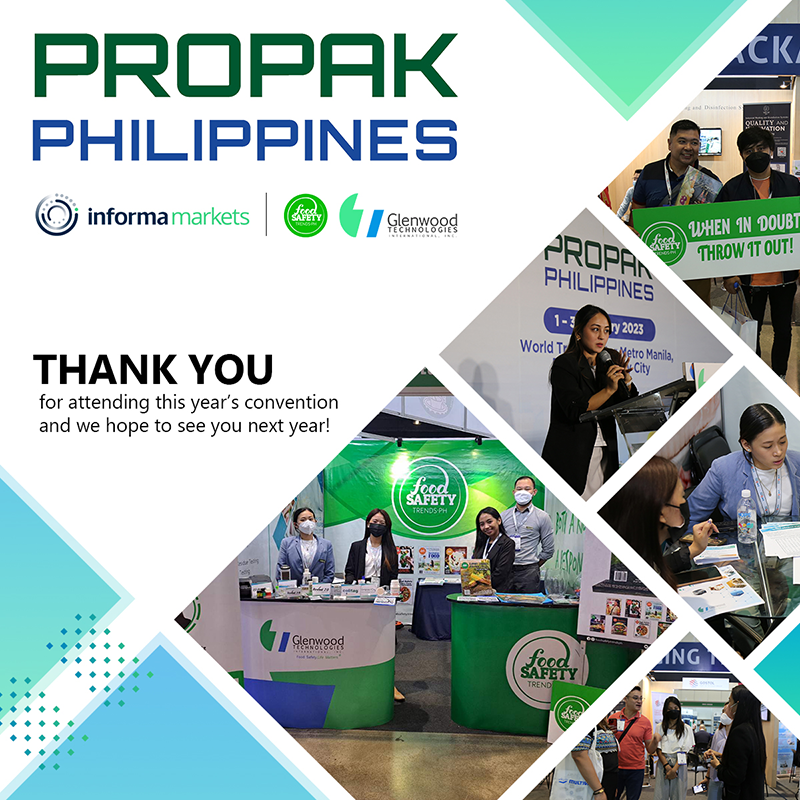
Glenwood Technologies International (GTI) and the Food Safety Trends Philippines Magazine (FSTM) took part as an exhibitor and a media partner at the third iteration of ProPak Philippines last February 1-3, 2023, at the World Trade Center in Pasay City.
September 12, 2022
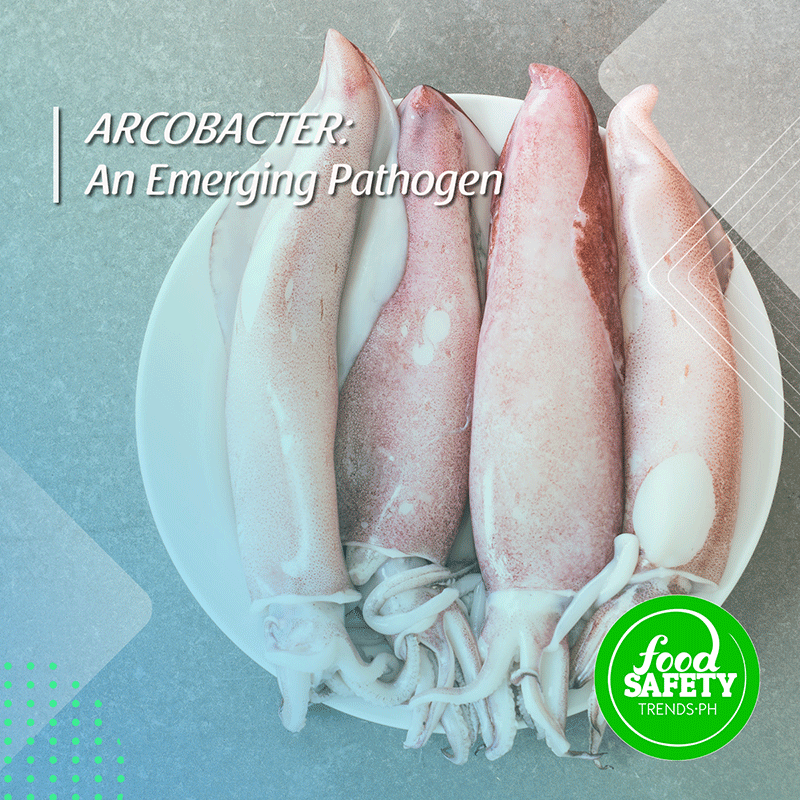
Arcobacter is an emerging foodborne pathogen commonly found in water, vegetables, seafood, and other food of animal origin. It is a non-spore-forming, spiral-shaped Gram-negative bacteria that can cause human gastroenteric illness and may diminish the shelf-life of contaminated foods.
August 19, 2022
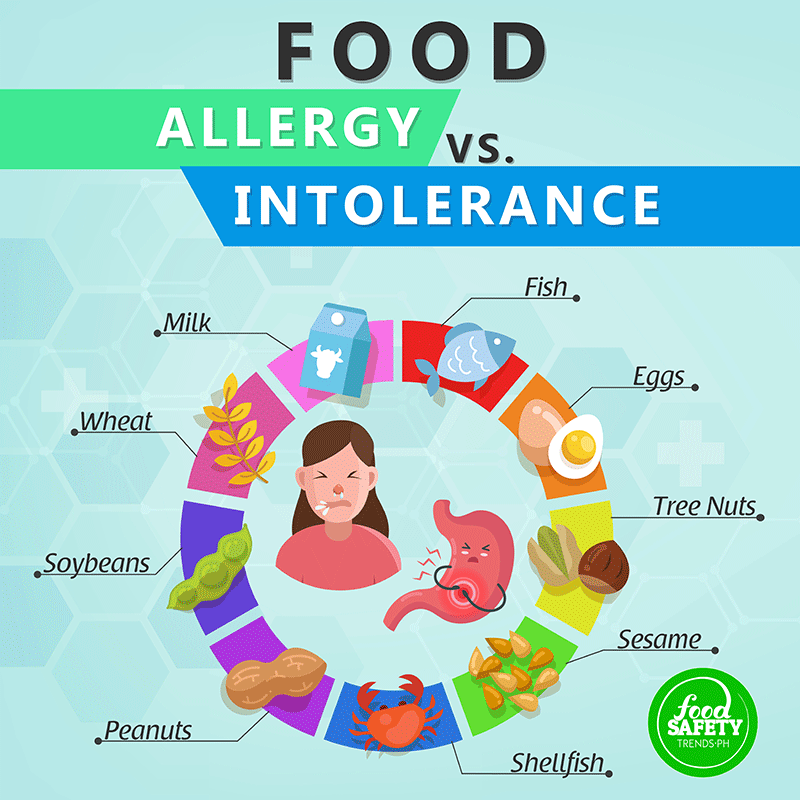
How can you manage food allergens in your facility and ensure that there will be no cross-contamination between common food allergens and non-allergen containing products?
July 22, 2022
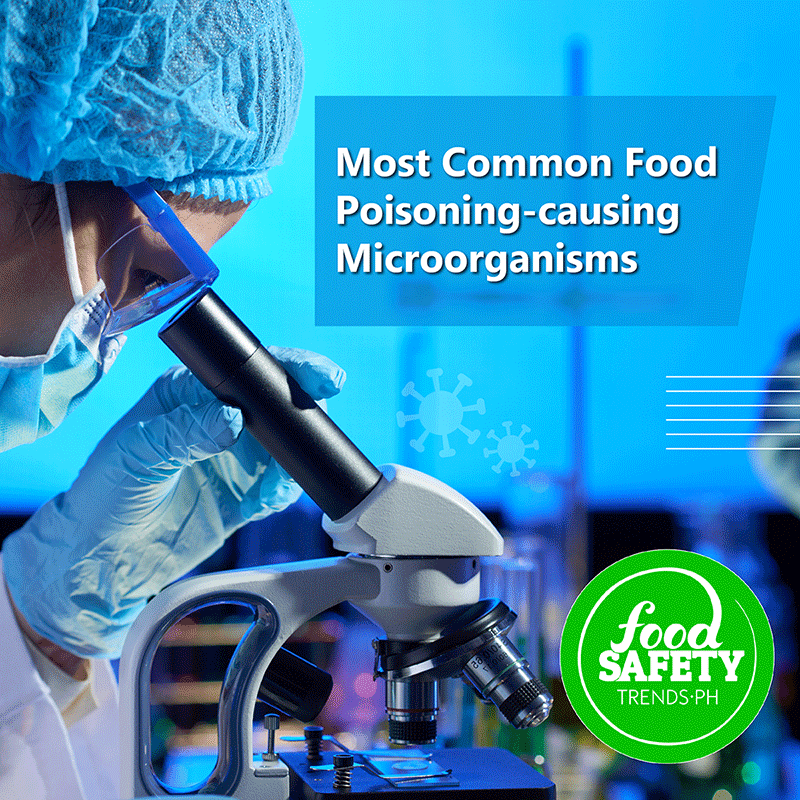
Do you know the most common microorganisms causing food poisoning worldwide?
July 1, 2022
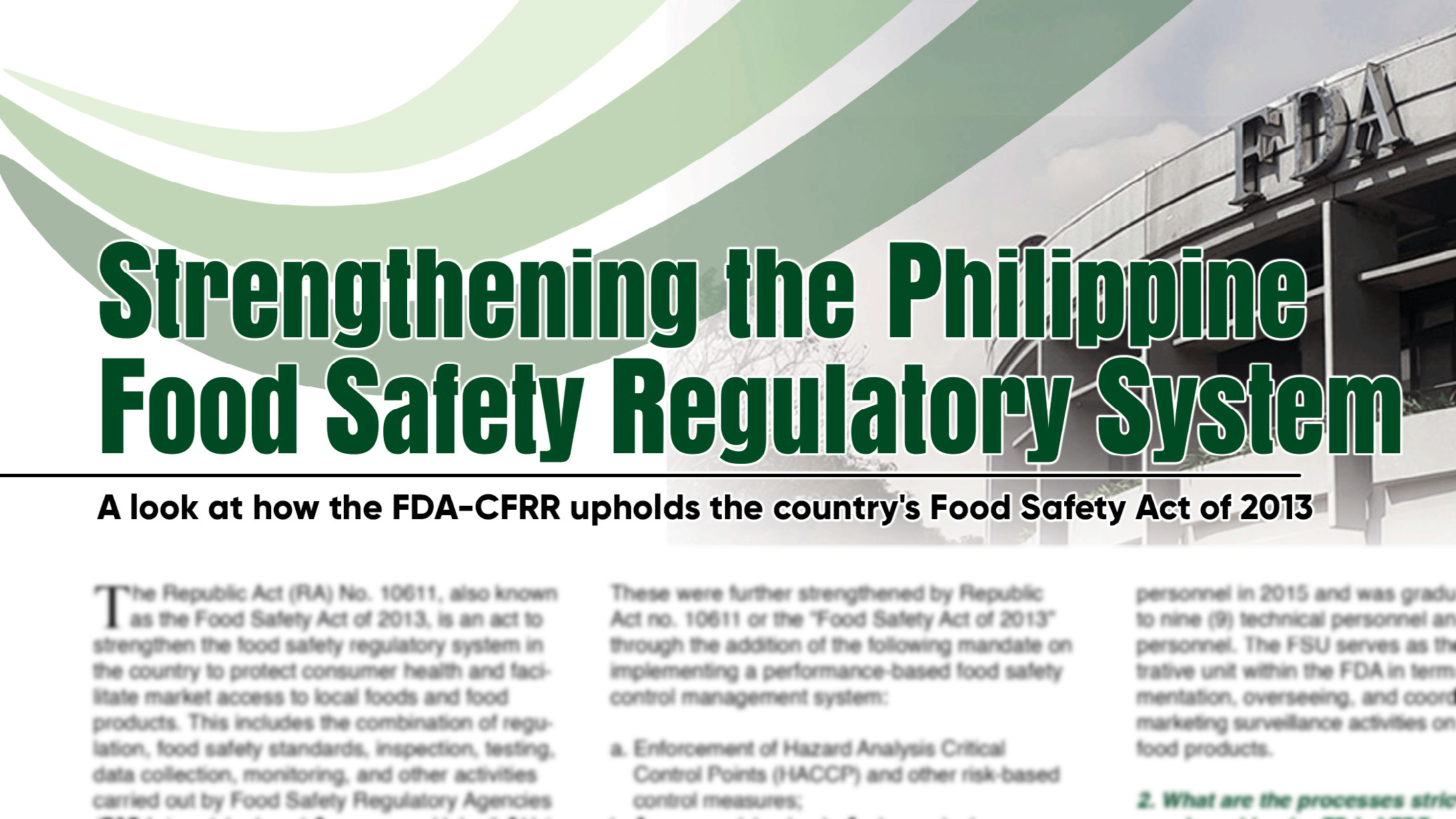
The Republic Act (RA) No. 10611, also known as the Food Safety Act of 2013, is an act to strengthen the food safety regulatory system in the country to protect the consumer health and facilitate market access to local foods and food products. This includes the combination of regulation, food safety standards, inspection, testing, data collection, monitoring, and other activities carried out by Food Safety Regulatory Agencies (FSRAs) and the Local Government Units (LGUs).
March 18, 2022
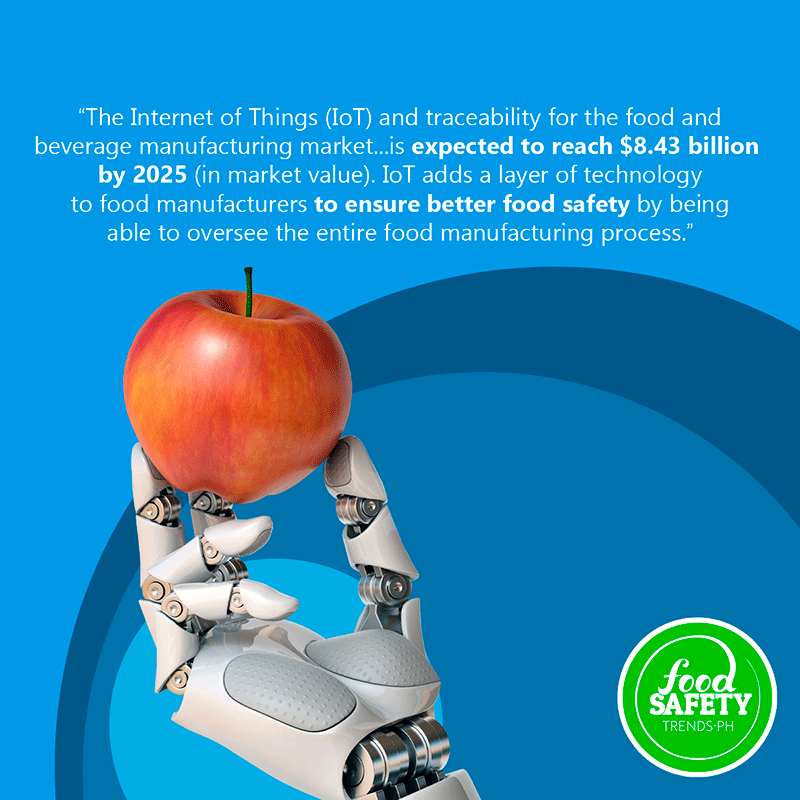
Within the increasingly competitive technology landscape, data is the most essential commodity. Data has been so valuable that when managed and analyzed properly, it can provide correct insights that businesses can use to innovate and grow. Today, higher-quality data can now be captured quicker and in greater volumes due to the Internet of Things (IoT).
January 13, 2022

Entrepreneurship has been taking center stage among the younger generation as the food industry has been a popu¬lar choice in many business ventures. Unfortunately, many young entrepreneurs focus on the business of putting up a restaurant, bar or food kiosk, with little to no focus on preparations for food safety. As a food safety advocate, I have seen a lot of budding entrepreneurs put up food businesses after attending a 10-day cooking class, without the slightest idea regarding food safety procedures. It is also not surprising to see that many start-ups fail, as they neglect to keep the food that they serve safe.
January 13, 2022
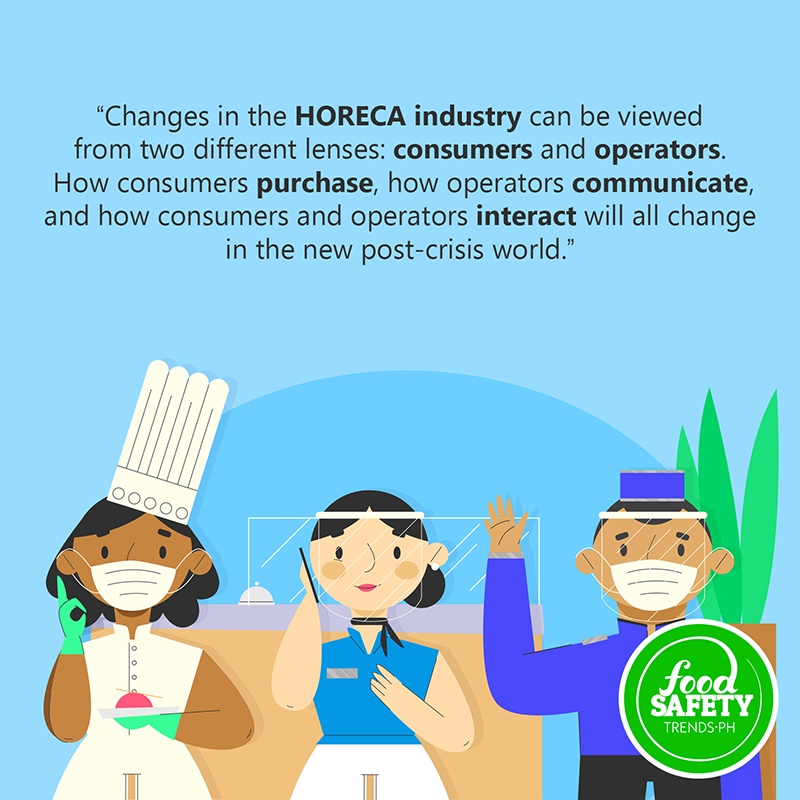
With the pandemic waning in many countries, Dr. Leana Wen, professor at George Washington University, outlined a three-pronged approach to end the pandemic with the caveat that COVID-19 is here to stay for the foreseeable future. Increasing vaccination and maintaining mask mandates or continued recommendations to wear masks should be added to this sensible approach.
December 23, 2021
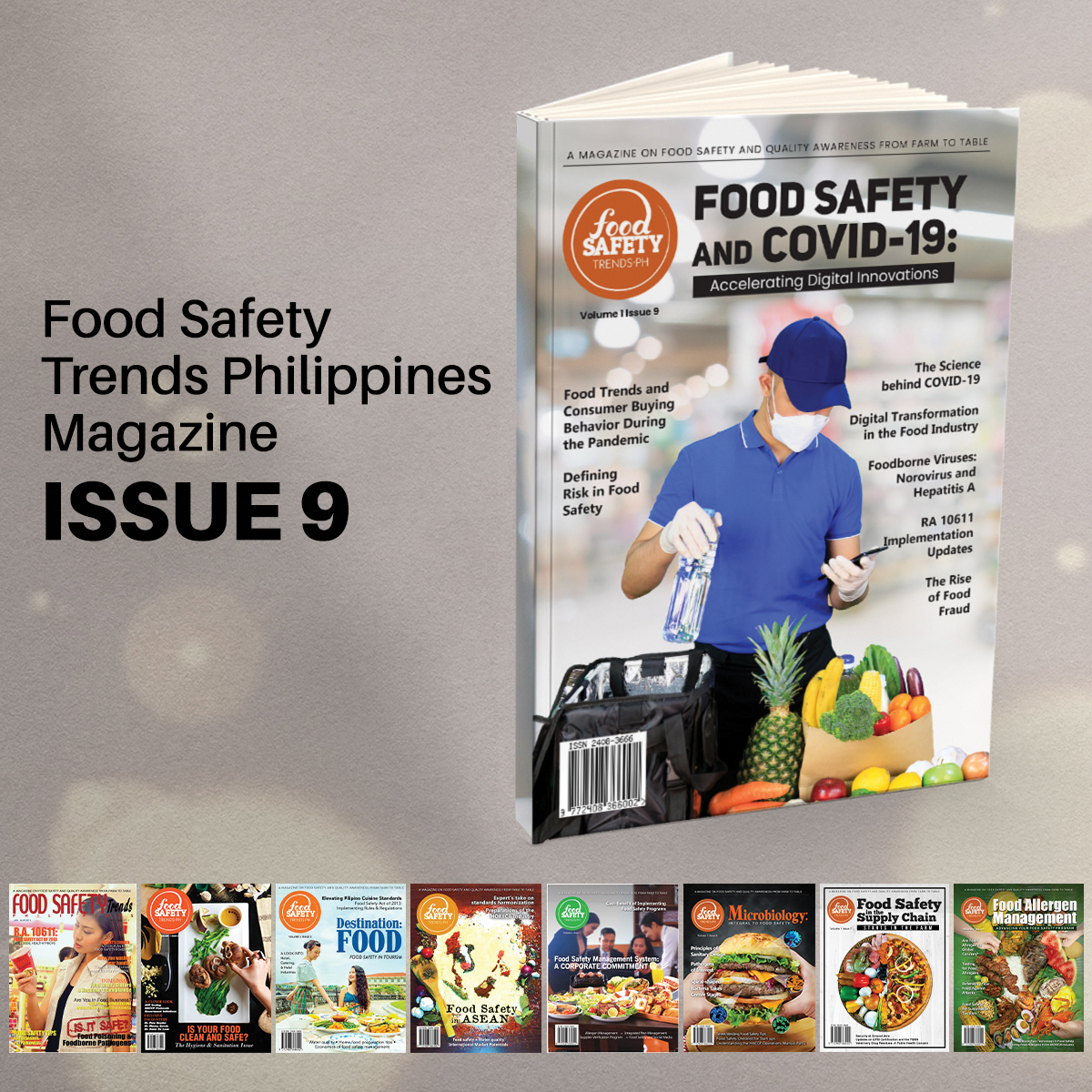
Make way for the most-awaited issue of the Food Safety Trends Philippines Magazine with the theme "Food Safety and COVID-19: Accelerating Digital Innovations".
September 16, 2021
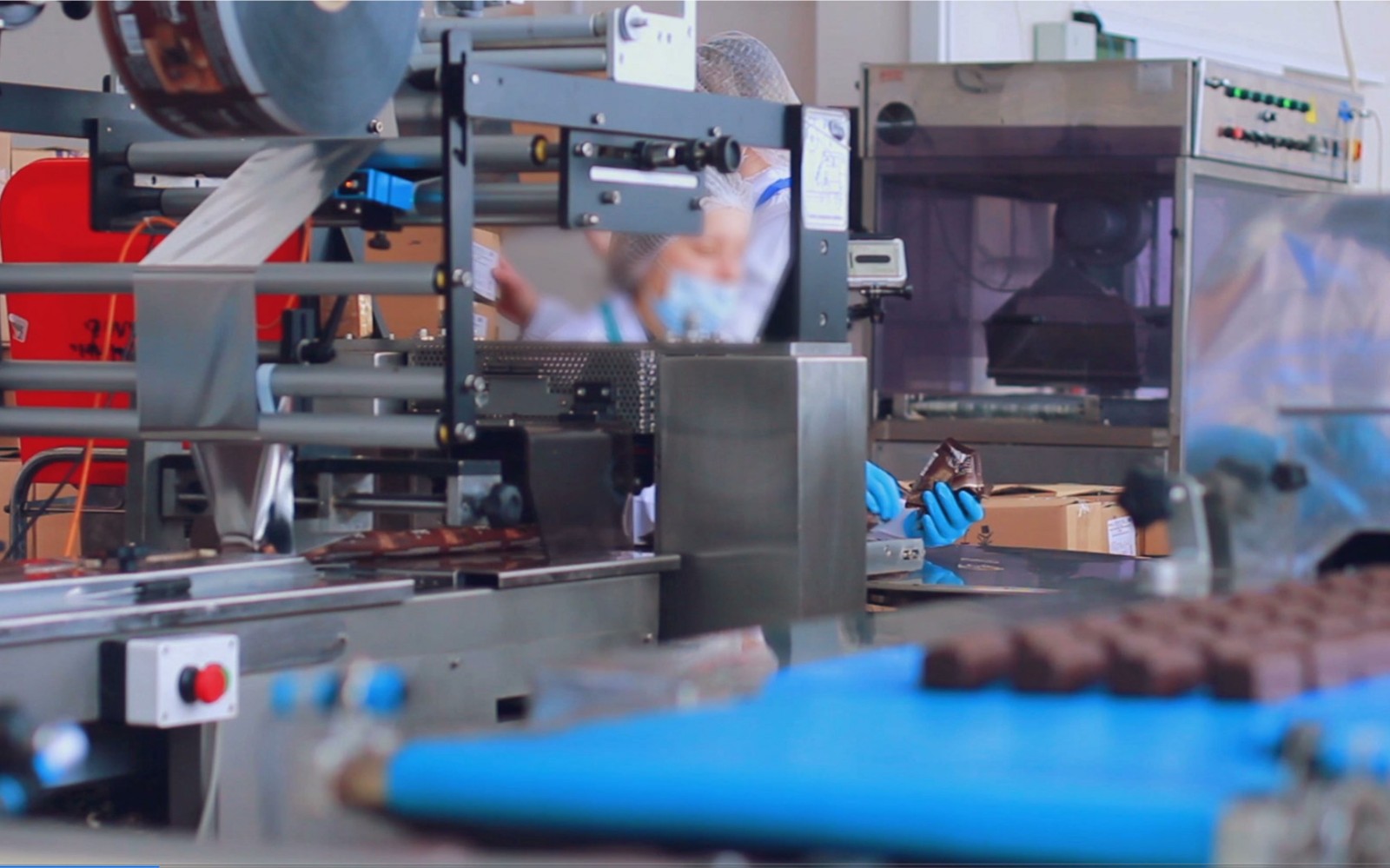
Food safety practices have been in place long before man understood the intricacies of why food needed to be cooked, dried, or salted to keep it longer and lower the risk of contracting a disease. The same is true for having provisions for washing hands before eating. In fact, water treatment methods have even been used by the ancient Greeks as early as 2000 BC. Despite engaging in correct food safety practices, microorganisms have been and will always be a concern when it comes to water and food safety. Fortunately, advancements in microbiology has enabled us to study and better understand how to control these organisms to help make our food ultimately safer.
June 29, 2021
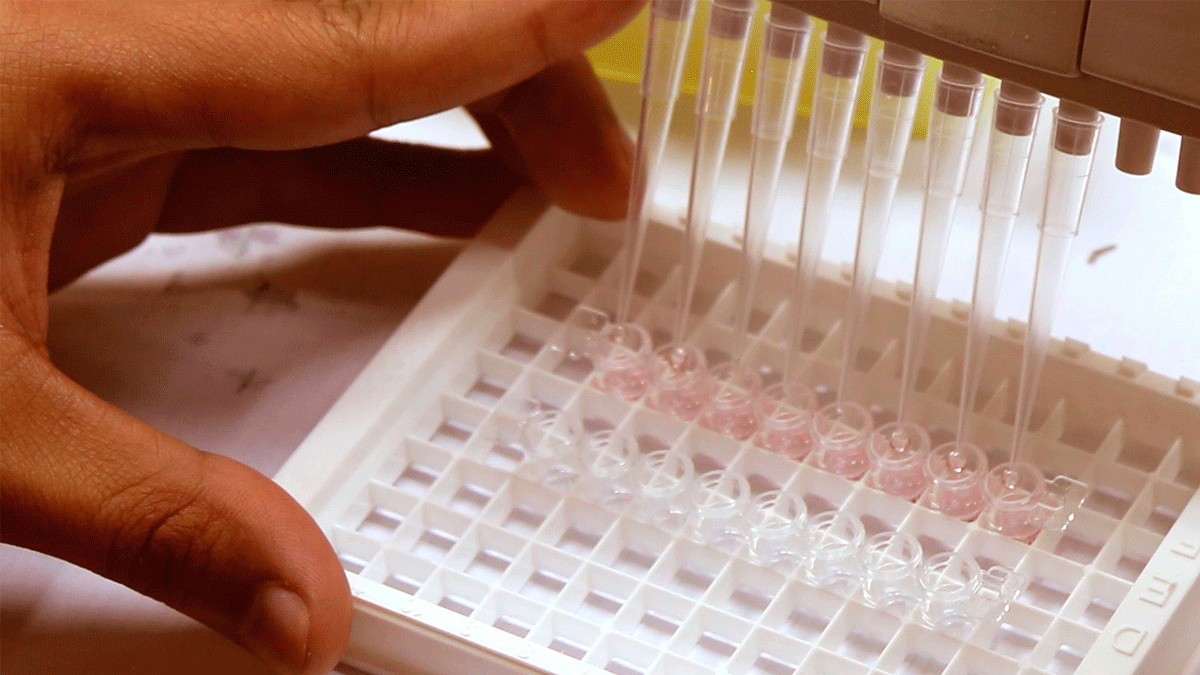
Over the past several years, different manufacturing companies have drowned themselves with diverse and laborious methods for the detection of foodborne pathogens and toxins. Amidst the conventional practices of these companies, stricter standardization of quality assurance programs in conformance to regulations transpired. As a result, companies became more involved in integrating Hazard Analysis and Critical Control Points (HACCP) plans and other food safety programs in their operations.
June 28, 2021

Food safety is non-negotiable. The continuous urbanization and modernization of our country had brought major transformations in food manufacturing, processing, transporting, retailing, and even consumption. Consequently, a new understanding of foodborne pathogens that cause diseases have also evolved over time along with the advances in food science and economic developments.
April 6, 2021
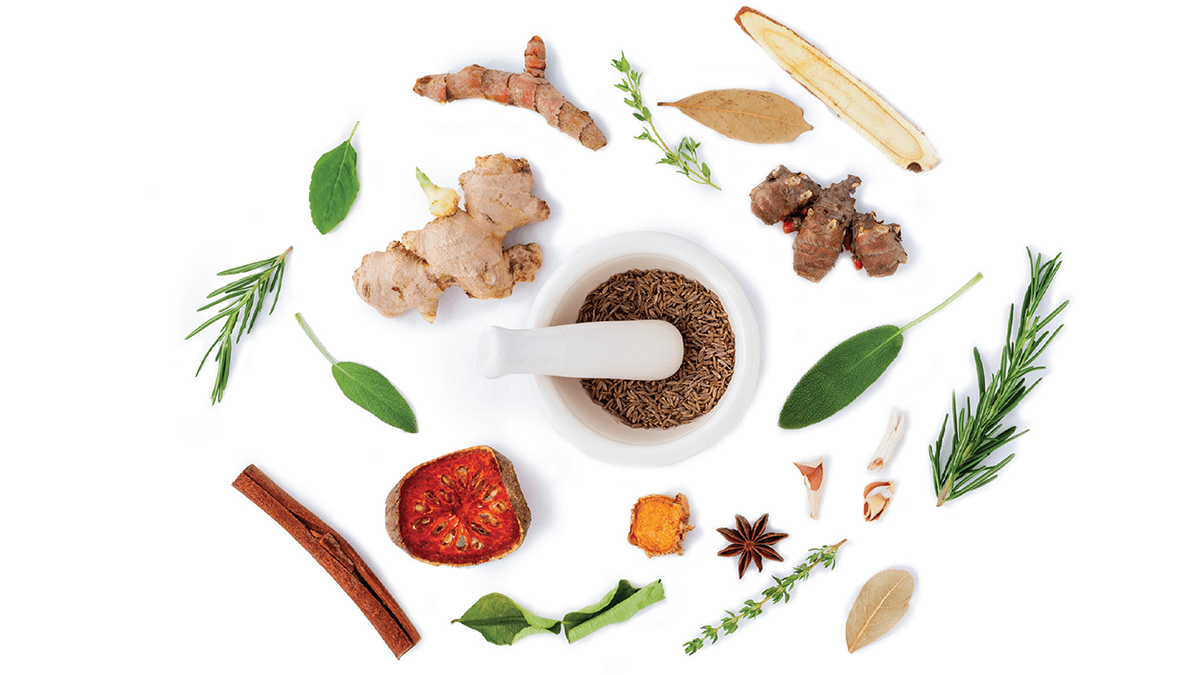
The Food Safety Modernization Act (FSMA), passed in the United States in 2011, covers the most extensive reforms of the U.S. food safety laws to ensure that the food supply chain is safe and secure. It involves a shift in focus from responding to food contamination events to prevention-based controls for all food manufacturing processes.
March 24, 2021

In a world of interconnected screens and Wi-Fi-driven news, brands and organizations must take precautionary measures in handling potentially “viral” food safety crises
Gone are the days when complaints are conveyed through telephone calls, snail mails, and face-to-face conversations with a brand’s staff member. Today, with a simple mobile phone and an Internet connection, consumers can unleash damaging brand reviews for all the public to witness. This audience does not only include local citizens - in some unfortunate cases, “trending” or viral brand complaints may reach an international crowd as well.
March 19, 2021
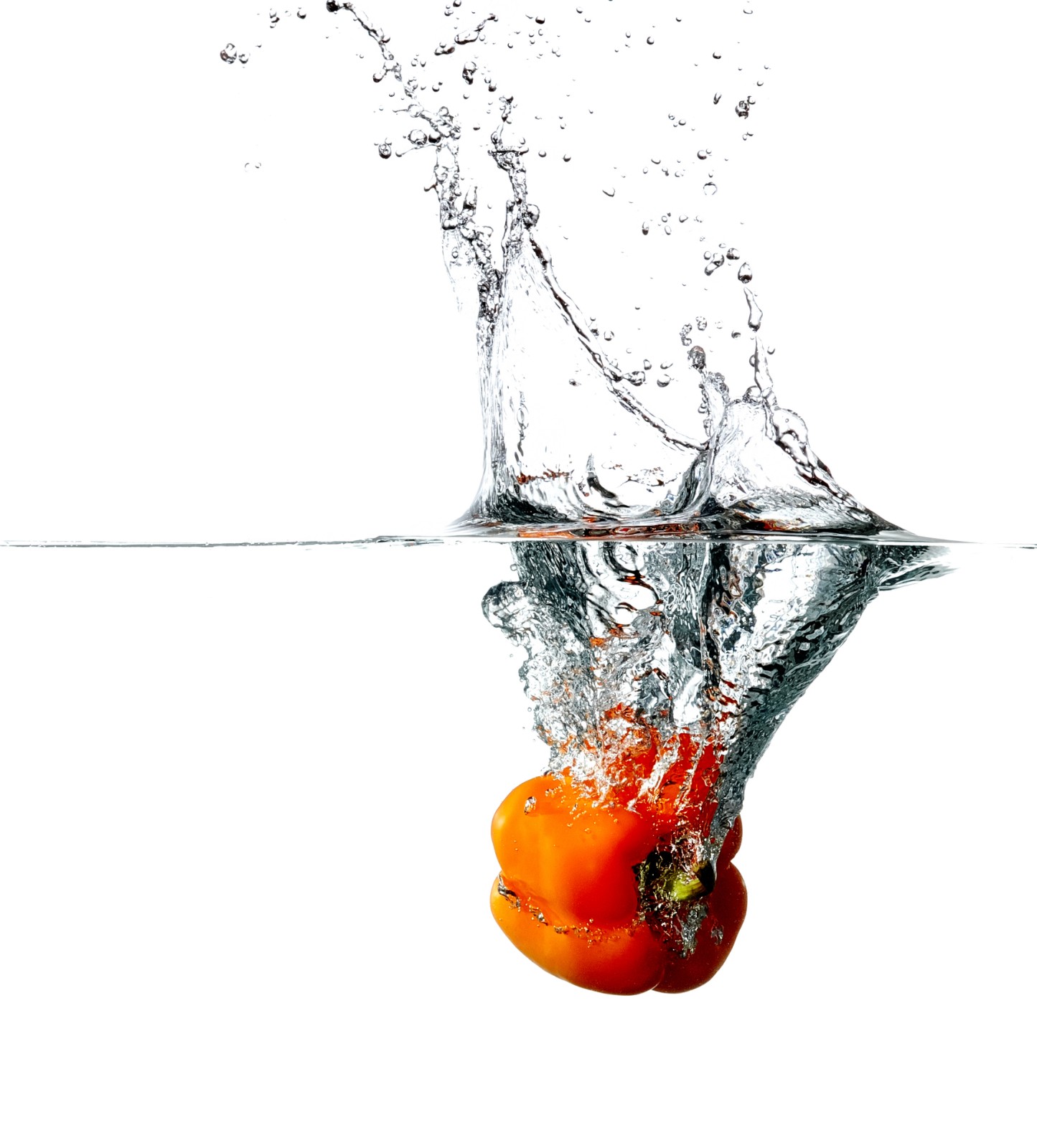
The characteristics of water used in the production and preparation of food are quite important. National, state and local regulatory authorities require the use of potable water in food production. Potable water standards are defined by the Environmental Protection Agency as listed by National Interim Primary Drinking Water Regulations that deal with health. The safety of water for human consumption will always be the most important consideration.
January 28, 2021

No matter how any production facility may look apparently clean on the outside appearance, it could never be an assurance that it is safe from pathogens and chemical contaminants. In the manufacturing industry, it is a must that cleaning is done on a regular basis. Cleaning protocols implemented by the management of the facility depends on the equipment, nature of products, and materials used. But, regardless of the specifications and methods of cleaning employed, the primary objective of cleaning is to ensure that the quality and safety of products are being maintained even during the production process. If insufficient cleaning and sanitation are employed, pathogens and allergens lurking in the environment, especially on unclean food contact surfaces, may compromise food safety.
January 15, 2021

A major goal of any food enterprise is to produce wholesome and safe products at the most efficient cost and lowest liability. In the context of farm-to-table food safety systems, allocating the cost-benefit of food safety in economic terms becomes complicated. There are many costs associated with implementing a seamless food safety system along the supply chain from industry to market to consumer concerns. In considering market to consumer practices, the consensus is that food must be safe for the consumer with its delivery and preparation.
November 27, 2020
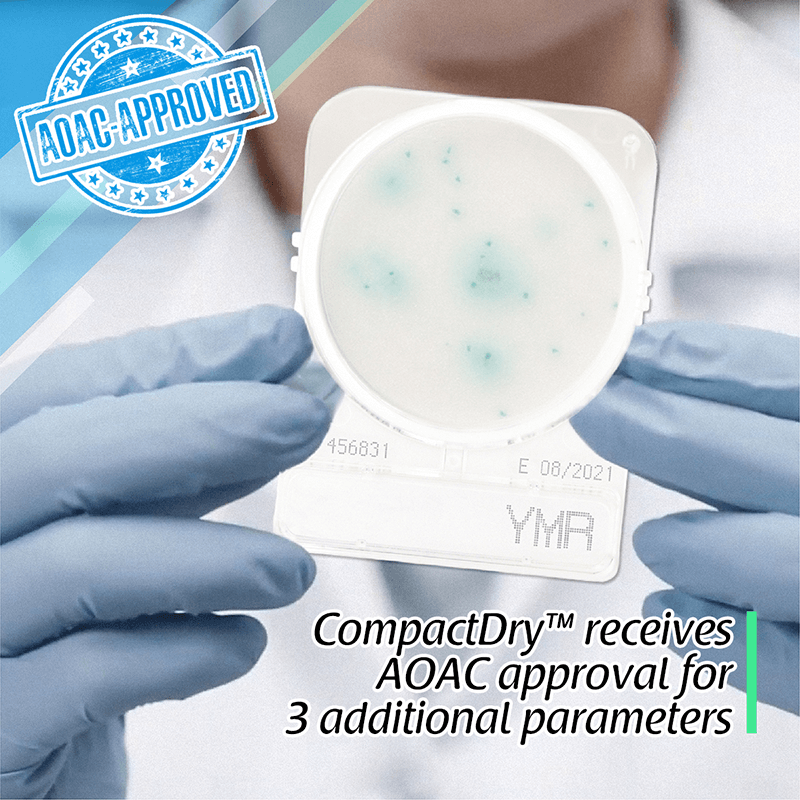
Good news! This 2020, after months of comprehensive validation, CompactDry™ parameters Yeast and Mold Rapid (YMR), Enterobacteriaceae (ETB), and Enterococcus (ETC) have acquired approval from the AOAC International, adding this certification to their current ones from MicroVal and NordVal.
March 12, 2020
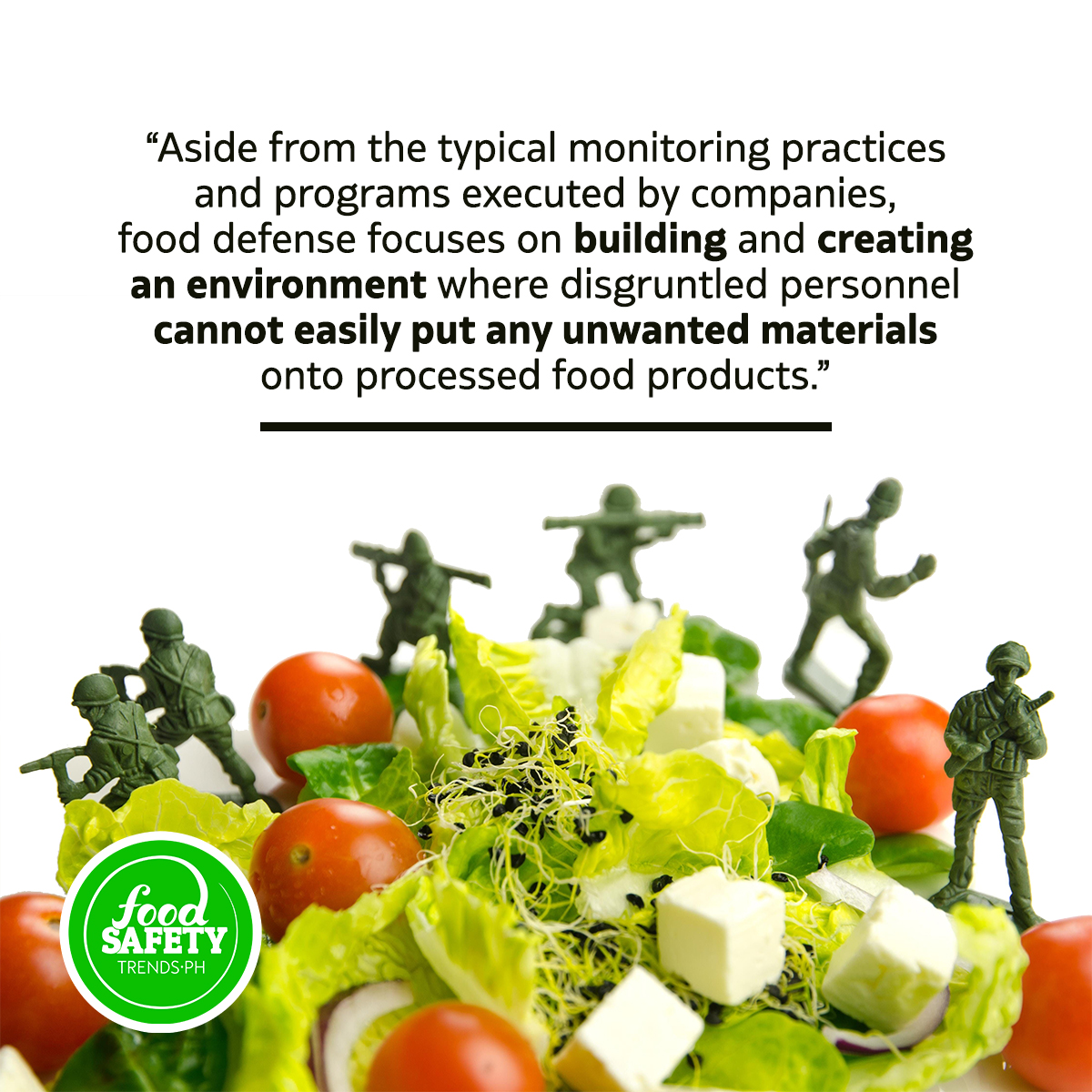
Based on the definition from the Global Food Safety Initiative (GFSI), Food Defense is the process of ensuring the security of food and drinks from all forms of intentional malicious attacks including ideologically-motivated attacks leading to contamination. Aside from the typical monitoring practices and programs executed by companies, food defense focuses on building and creating an environment where disgruntled personnel cannot easily put any unwanted materials onto processed food products. Thus, ensuring the safety of the food.
February 27, 2020
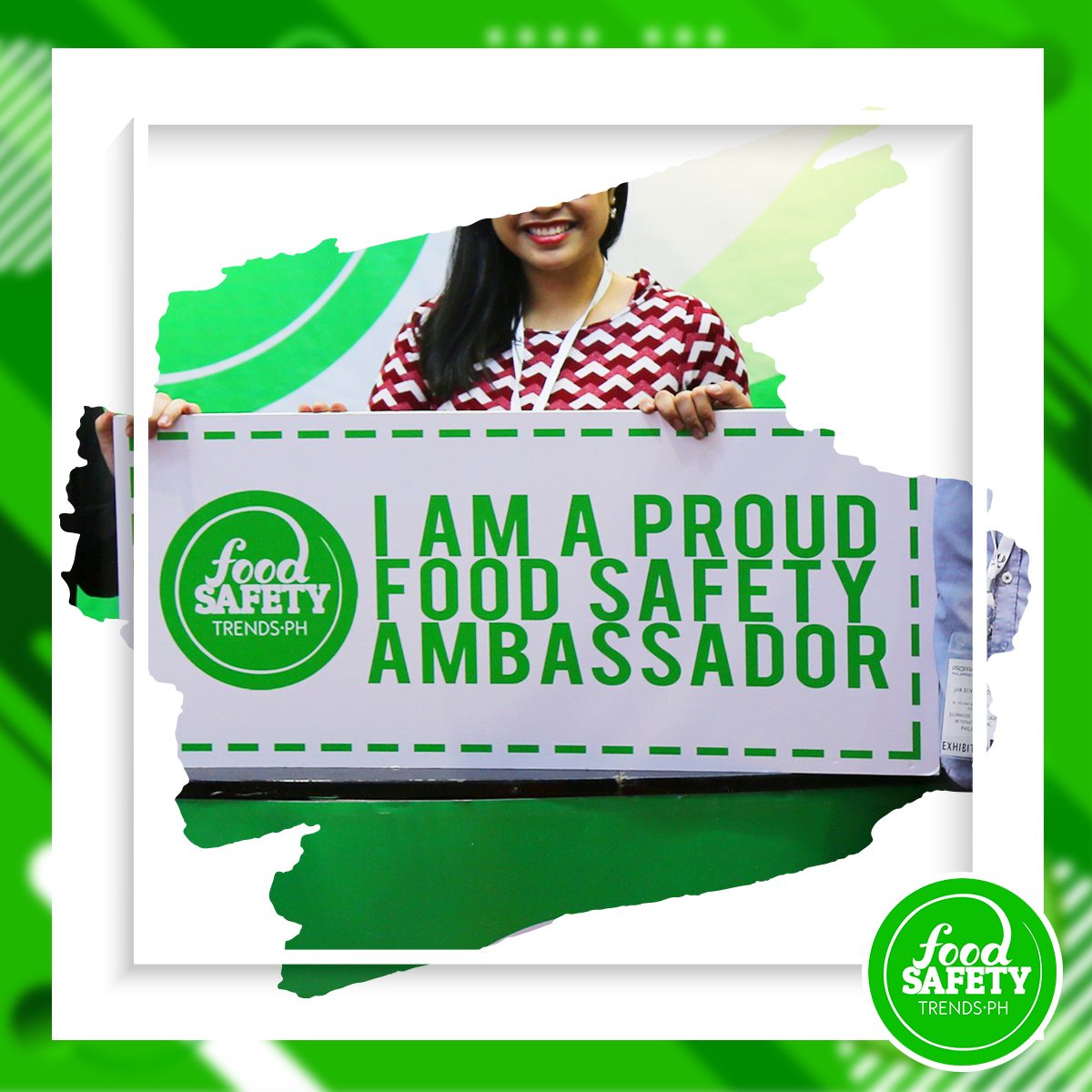
Assemble your fellow food safety ambassadors and together, win set of copies of the Food Safety Trends PH magazine, sodexo gift certificates, and other exciting food safety freebies!
January 30, 2020

Be updated on the local and international regulations in food allergens, understand how it is becoming a global concern, and be aware of the latest technologies that can be used to monitor and manage food allergens. Read the article of Mr. Kennard Musngi entitled “Food Allergen Management: Advancing Your Food Safety Program” in the 8th issue of Food Safety Trends Philippines Magazine. Get your copy now by subscribing to this link https://lnkd.in/feci5Gu. For advertising and subscription inquiries, contact (+632) 8.470.2325 or e-mail [email protected].
January 24, 2020
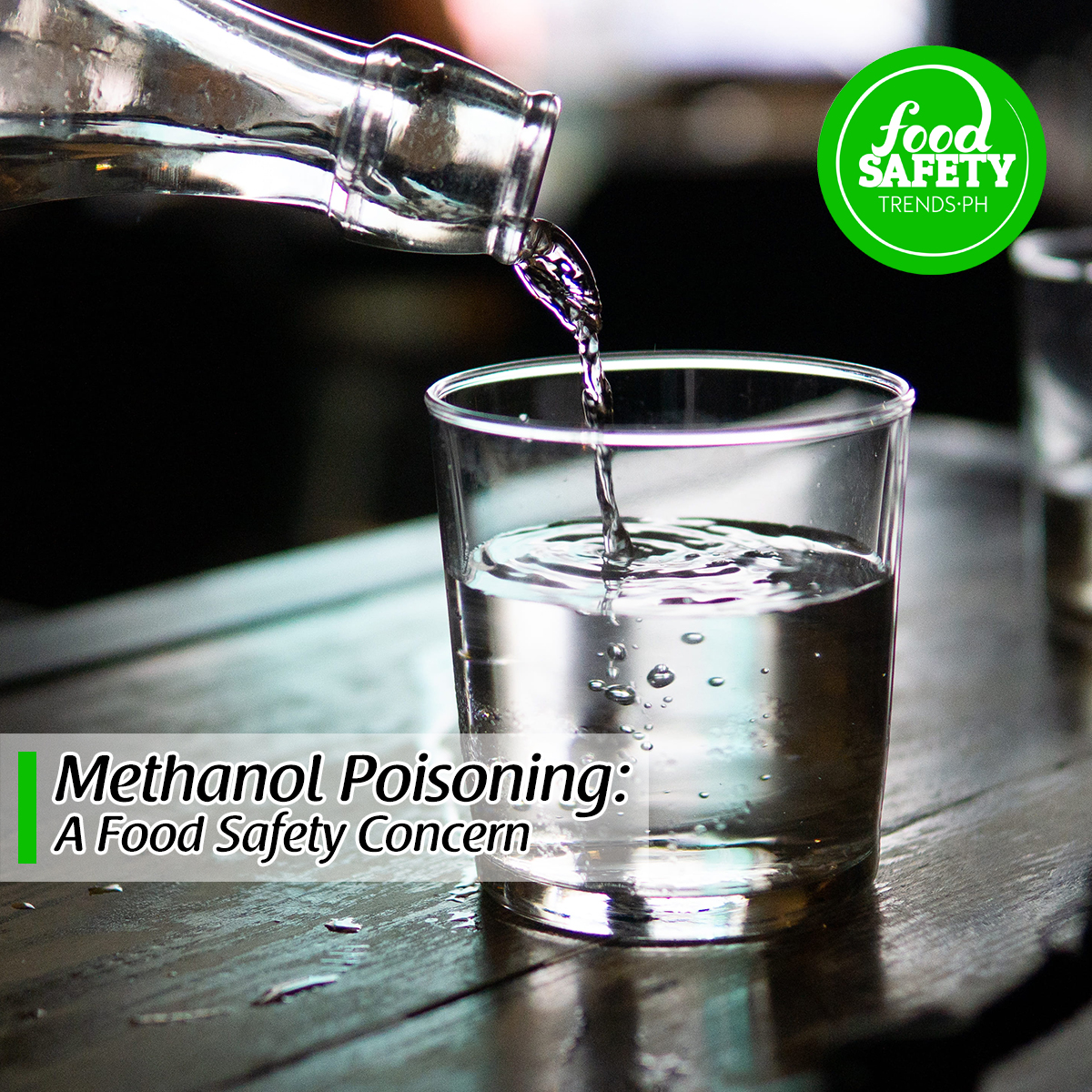
The Laguna and Quezon provinces had seen an outbreak of methanol poisoning on Christmas celebration last year. At least 14 people have died and nearly 500 people were hospitalized after drinking lambanog (traditional Filipino distilled coconut wine) with high methanol content. The Philippine Food and Drug Administration (FDA) confirmed this and urged the public to be wary on purchasing and consuming lambanog and other alcoholic beverages. These products should have proper labels and be registered with the FDA.
January 22, 2020
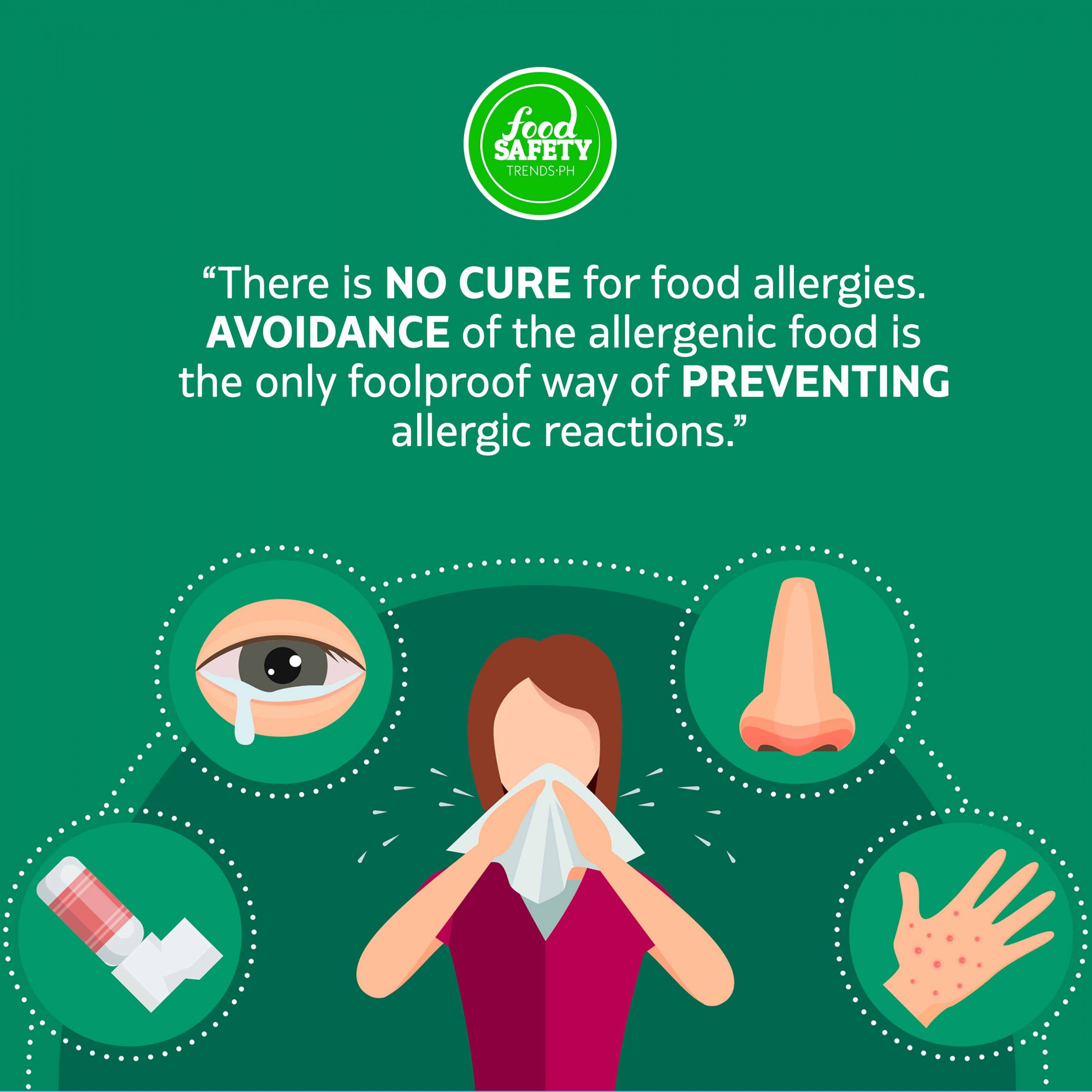
“Food allergies are an abnormal immune response to the normally harmless food protein. Unfortunately, there is no cure for food allergies. Avoidance of allergenic food is the only foolproof way of preventing allergic reactions. Despite such avoidance, cross-contamination or cross-contact still poses a real danger that food allergy sufferers encounter every day.”
January 8, 2020
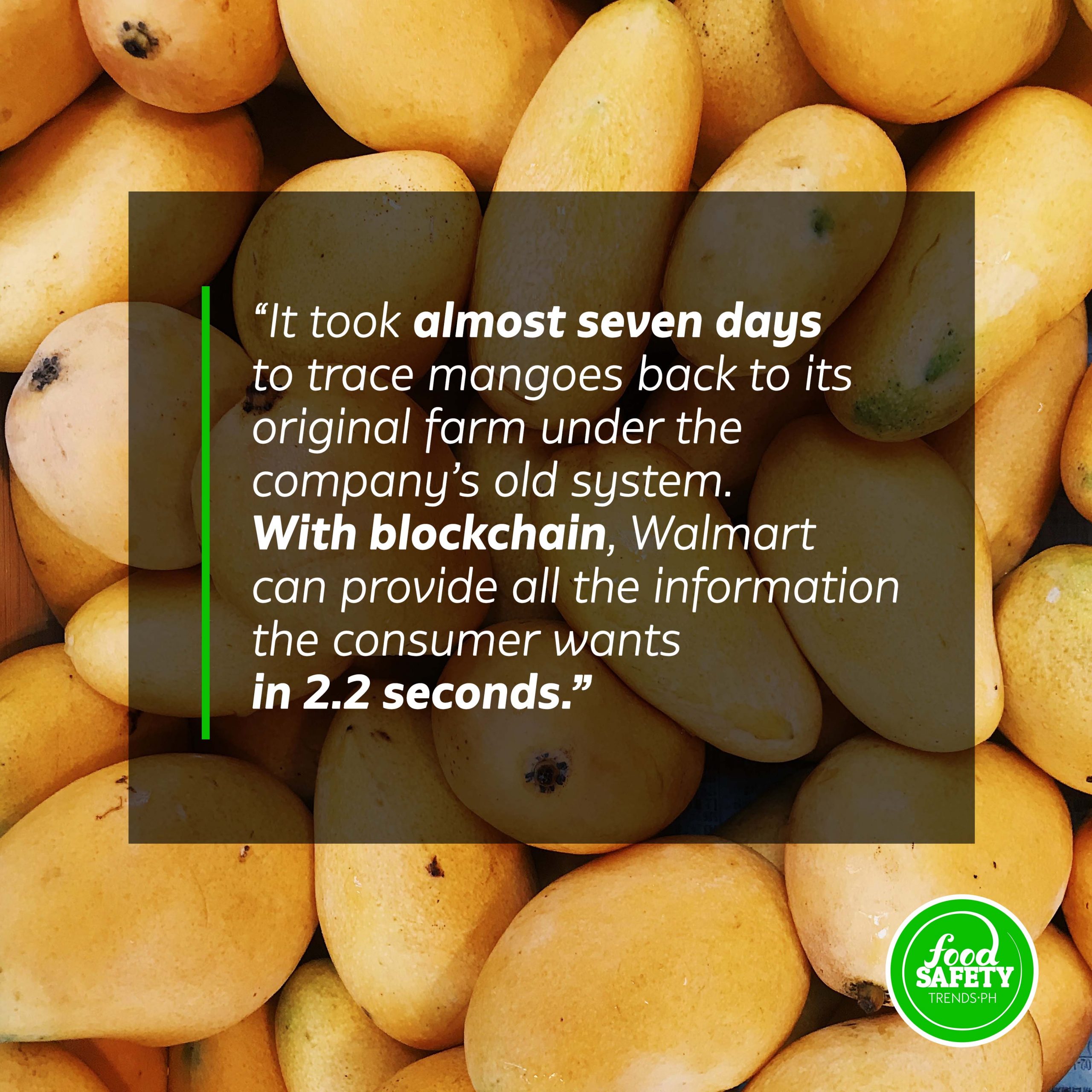
Learn the importance of integrating blockchain technology in food safety management. Read the article of Dr. Manny Garcia entitled “New Tech on the Block Tackles Critical Issues in the Food Supply Chain” in the 8th issue of the Food Safety Trends PH Magazine.Get your copy now by subscribing to this link https://lnkd.in/feci5Gu. For advertising and subscription inquiries, contact (+632) 8.470.2325 or e-mail [email protected].
July 15, 2019

Did you know that at least 2 billion people, globally, drink water coming from sources that have fecal contamination? According to the World Health Organization, contaminated water can cause diseases such as diarrhea, cholera, dysentery, typhoid, and polio. It is also the cause of an estimated 485,000 diarrheal deaths each year.
June 20, 2019
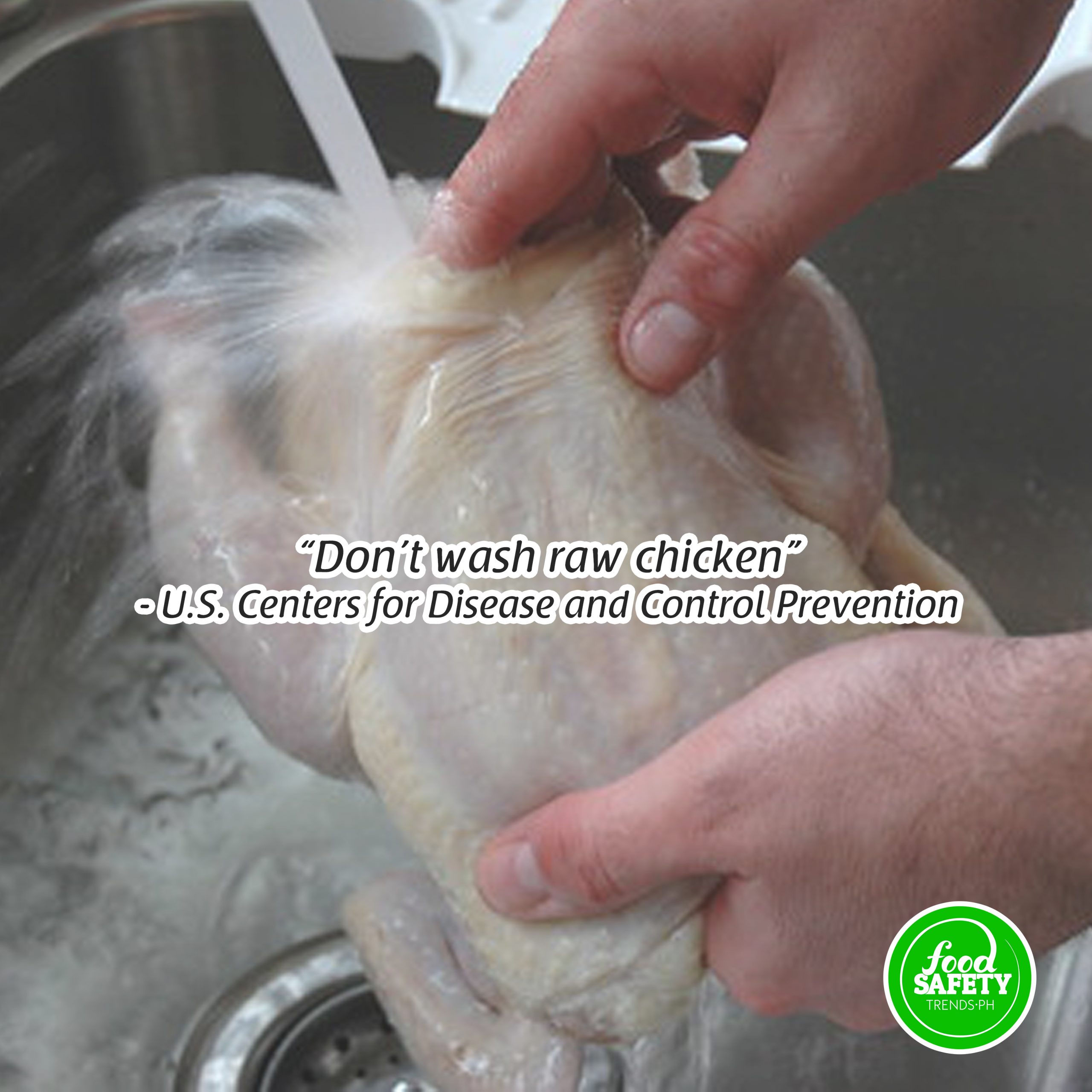
Food safety first! June 7 marks the first-ever celebration of the World Food Safety Day with the aim to uplift the food safety awareness to protect the public from foodborne illnesses and inspire action to safer food.
November 28, 2018
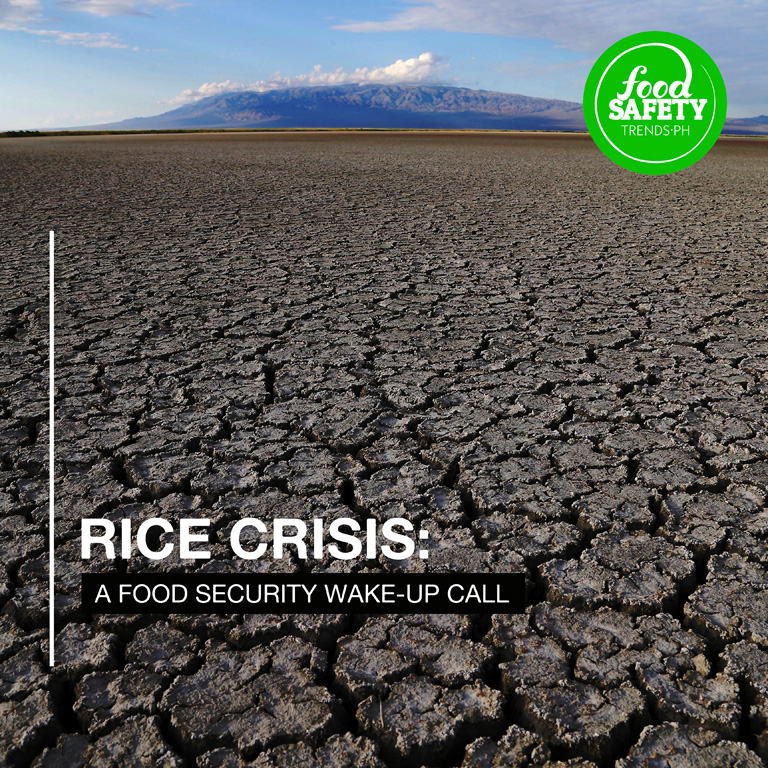
Php70 per 1 kilo of rice? Ironic as it may seem in a country with plenty of arable land, such is the incident in Zamboanga City […]
October 22, 2018
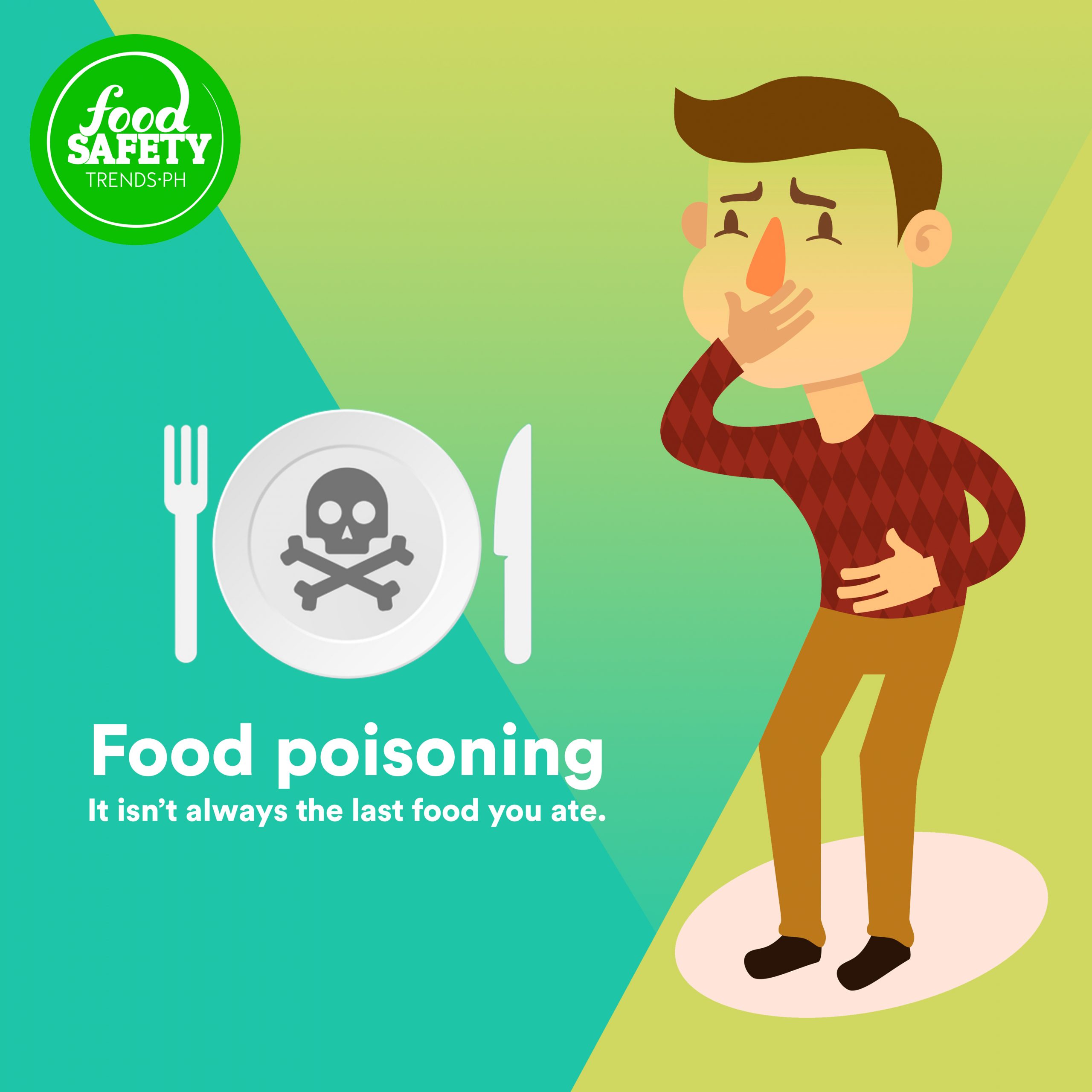
According to Centers for Disease Control and Prevention (CDC), the time between consuming a contaminated food and feeling sick is typically 2-3 days, and sometimes even […]
June 26, 2018
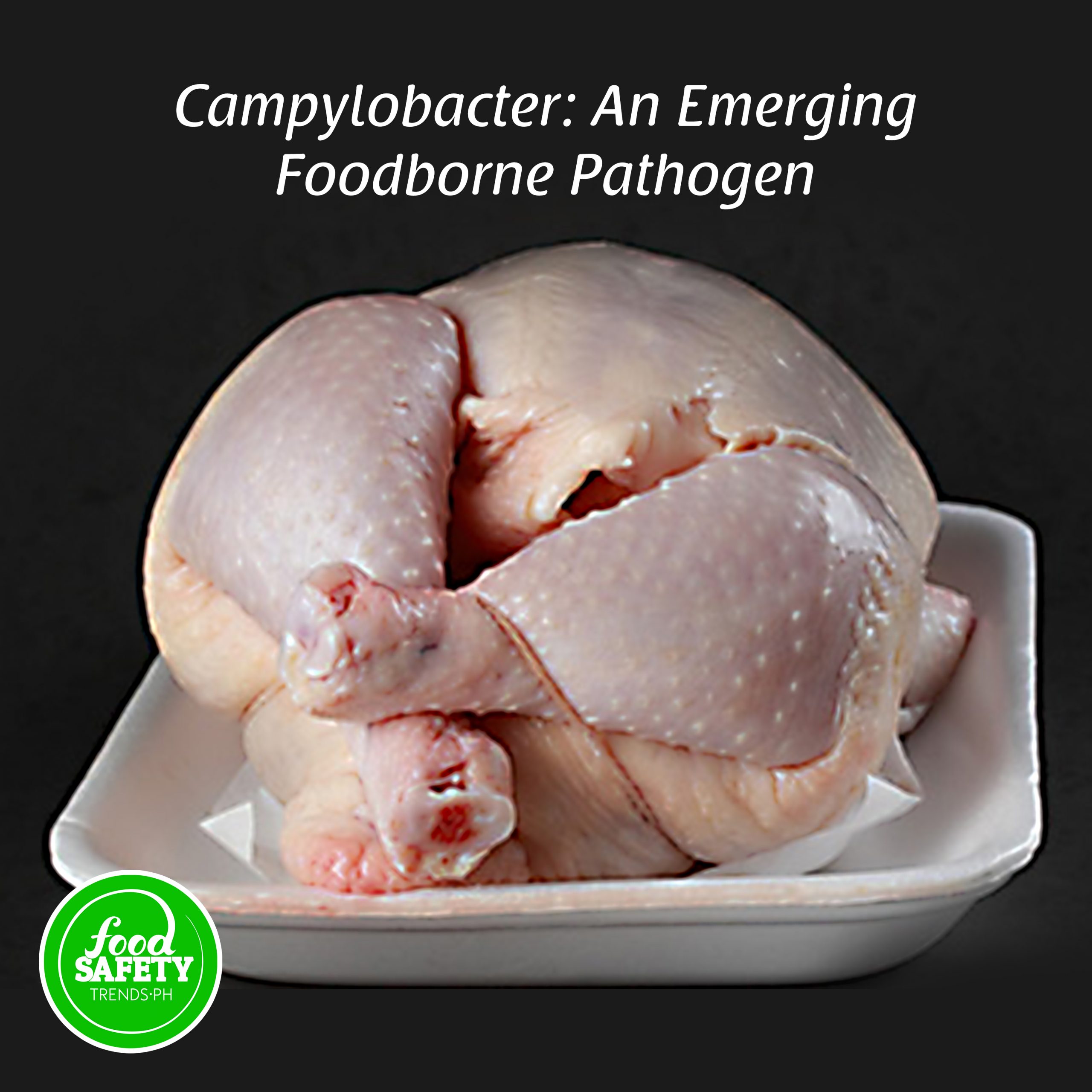
“In 2016, Campylobacter jejuni has finally taken the spotlight as the new food superbug. In a ground- breaking article published in US Food Safety Magazine, University of Leicester scientists Wanford, Ketley, and Bayliss in the UK confirmed that while Salmonella species are still responsible for a large number of outbreaks of foodborne illnesses, Campylobacter is now the most common bacteria associated with food poisoning and contamination in the European Union and in the United States.
June 13, 2018
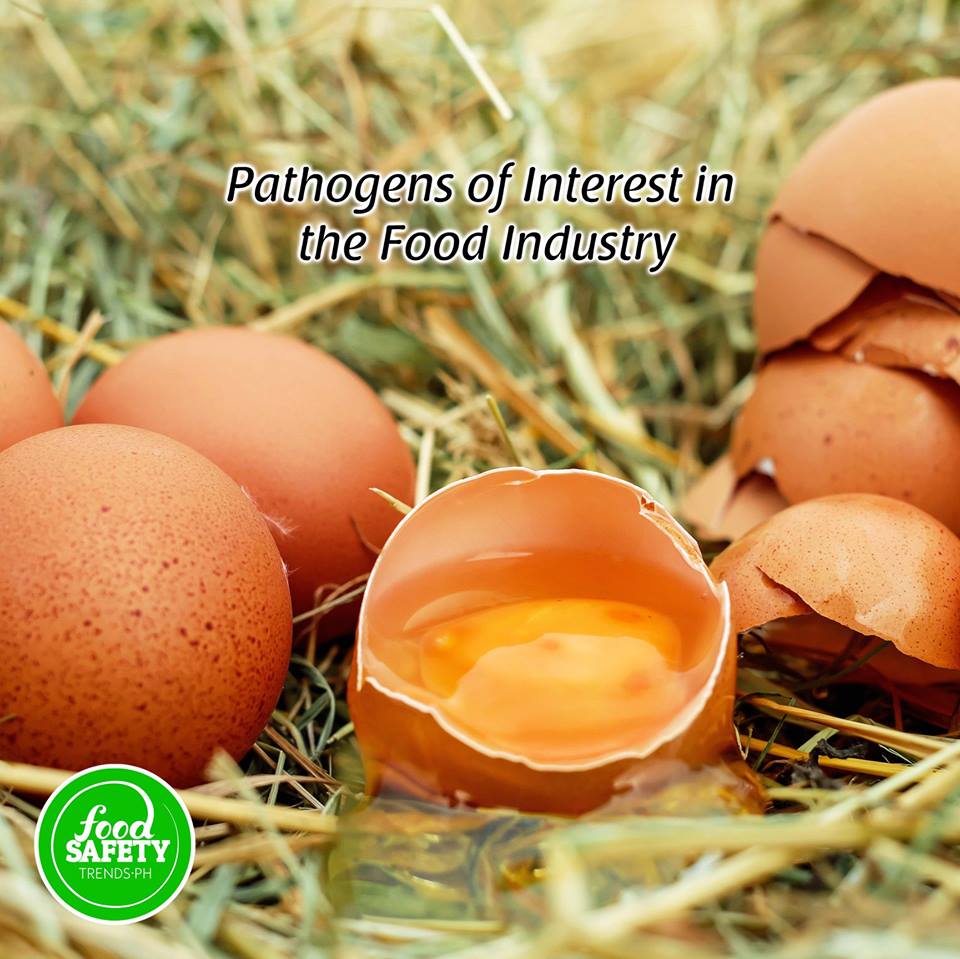
Food safety is non-negotiable. The continuous urbanization and modernization of our country had brought major transformations in food manufacturing, processing, transporting, retailing, and even consumption.
May 29, 2018

The Sanitary Design of a facility or an equipment is heavily oriented towards the avoidance of microbiological contamination and colonization, much like the goals of HACCP.
May 10, 2018
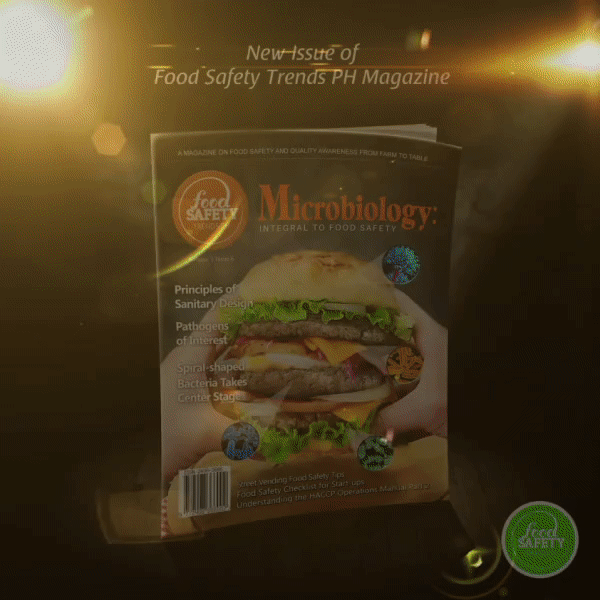
The wait is over! Food Safety Trends Philippines Magazine Issue 6 has arrived! Regarded as a reference material of thousands of food safety professionals and students in the Philippines, FSTM 6 is now ready to provide trends and updates on food safety and food microbiology to your heart’s content.
May 8, 2018
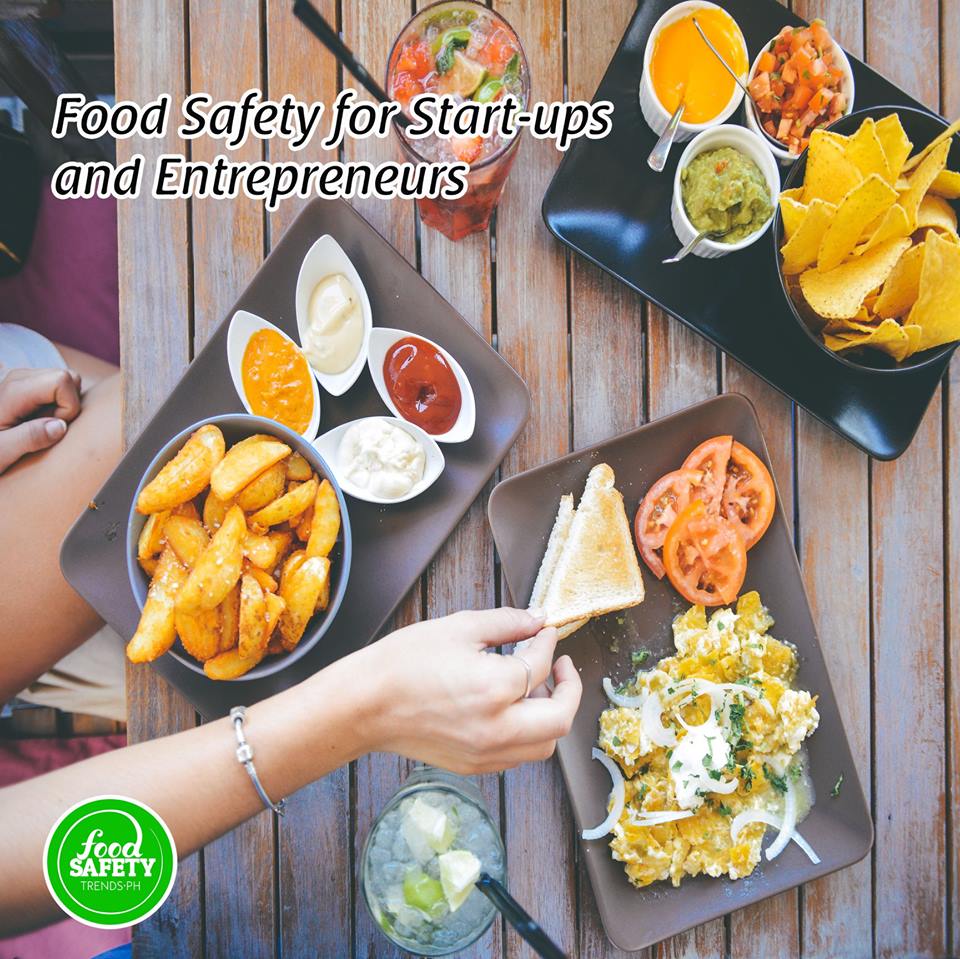
Thinking about opening a food business? Here are some tips and insights from the article of Rommel Gerodias "Food Safety for Start-ups and Entrepreneurs" in Food Safety Trends Philippines Magazine Issue 6.
May 2, 2018
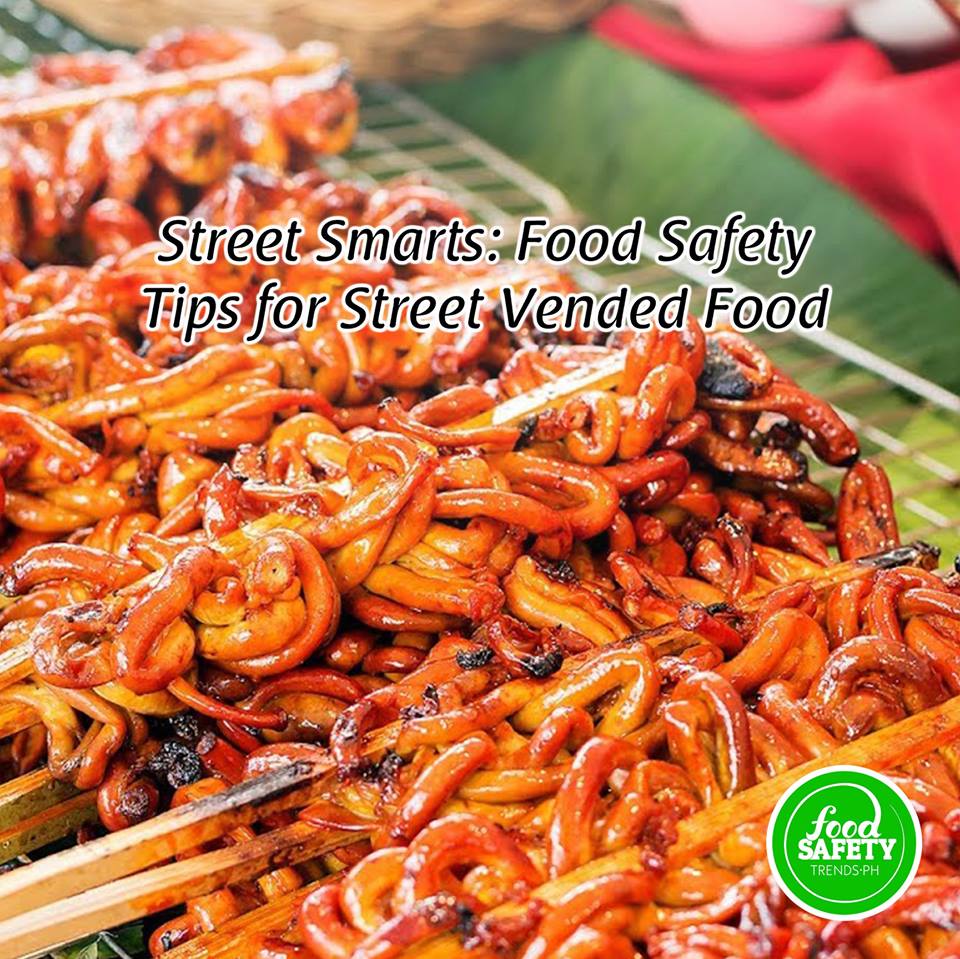
Let's get something straight: WE LOVE STREET FOODS. People from all walks of life have a special love for street food because of its lip-smacking flavors. It is also a good way to taste the country’s distinct food culture.
April 23, 2018
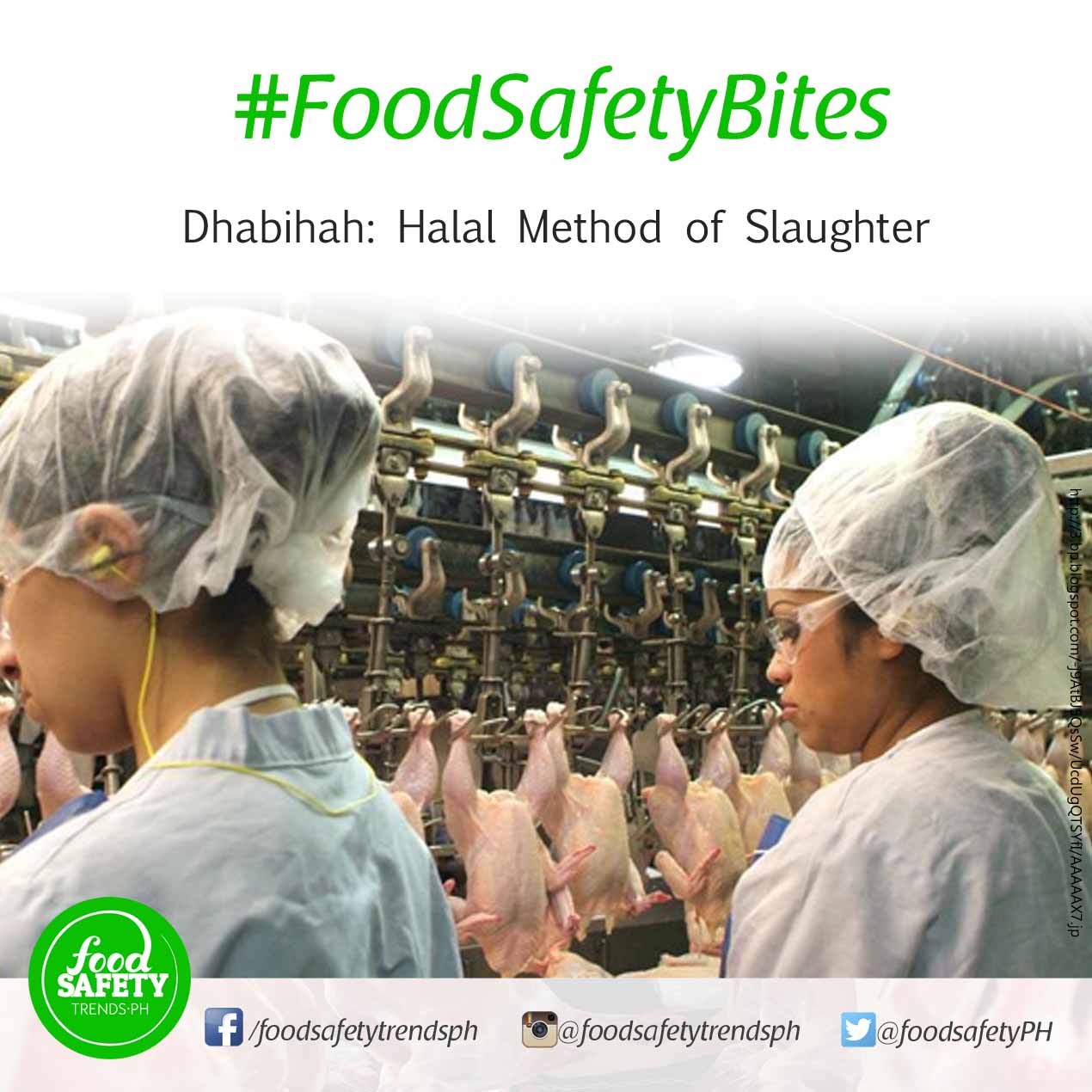
For a meat to be halal, animals must be alive and healthy, and has to be slaughtered by a Muslim in a ritual way known as “Dhabihah”. Animals should be slaughtered by slitting its throat quickly with a very sharp knife; and the trachea, esophagus, jugular veins, and carotid arteries should be cut swiftly to prevent the animal from suffering.
April 12, 2018
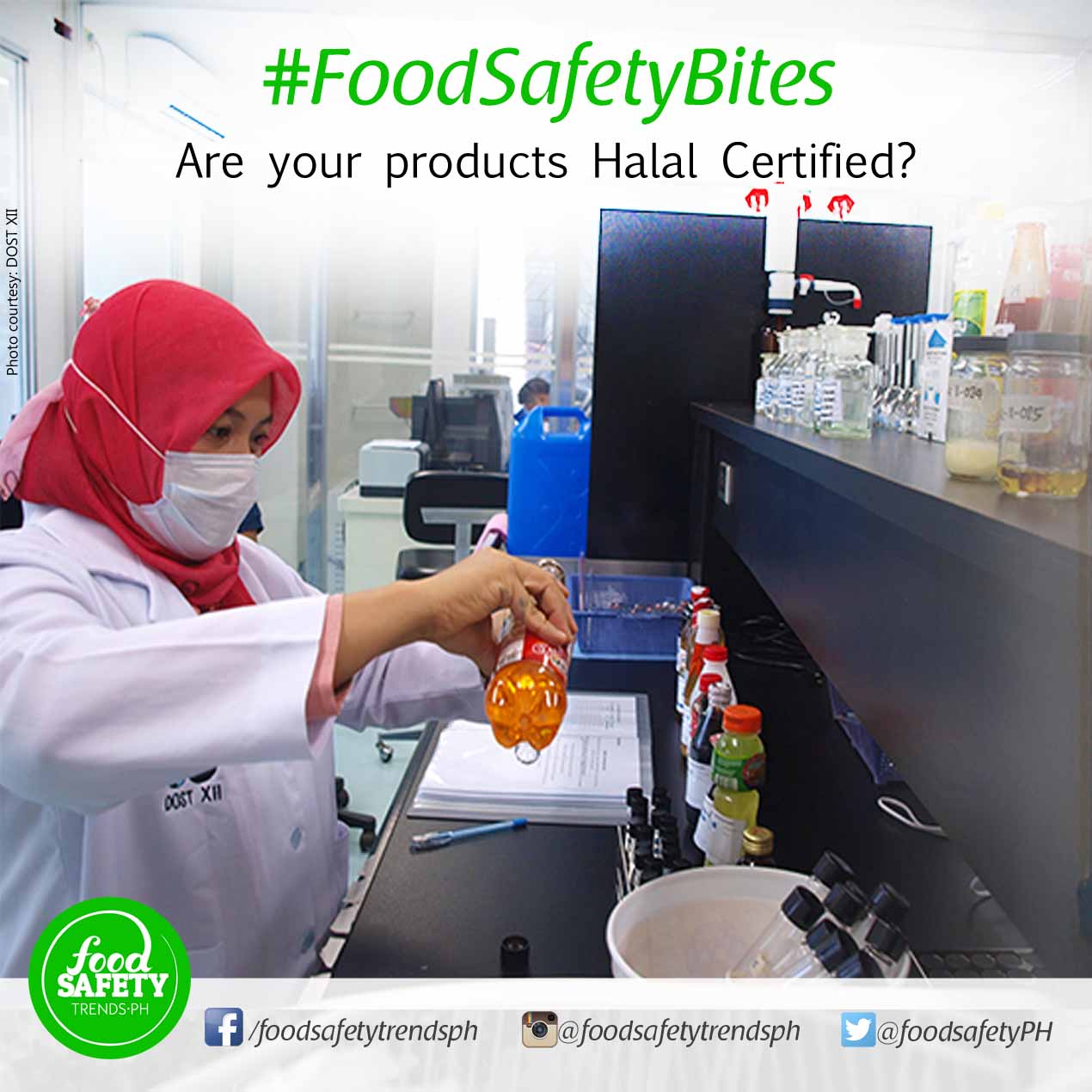
With 1.6 billion consumers worldwide, the Halal market continues to be a growing industry. To access this market, Philippine businesses secure Halal certification for their products to comply with the religious requirements observed by Muslims.
April 10, 2018
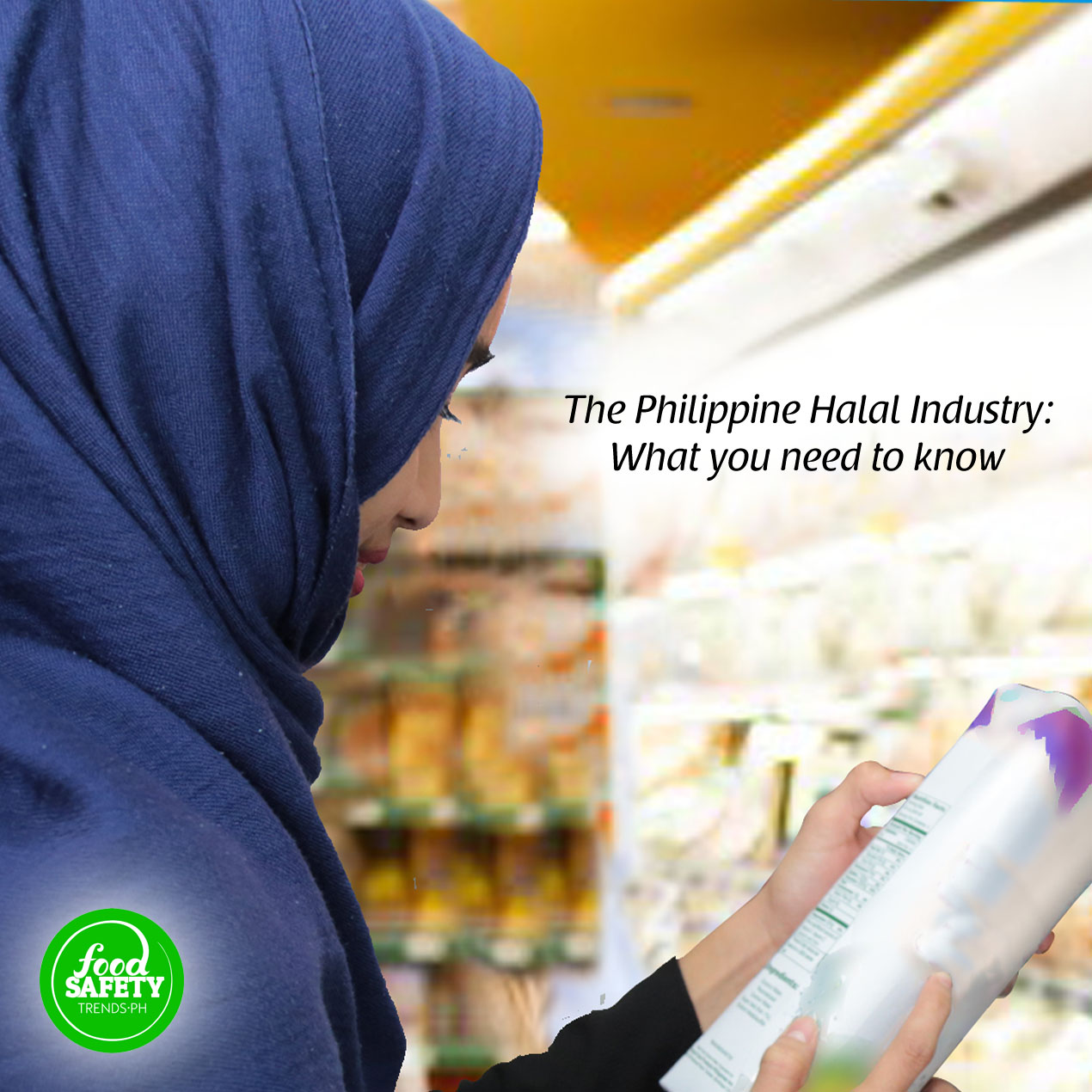
The development of Halal industry is a collaboration of the private and government sector wherein the Department of Trade and Industry works on trade laws and export, the Department of Agriculture for feed safety and production of Halal raw materials, and the National Commission of Muslim Filipinos for culture and religious implications of Halal just to name a few.
April 6, 2018
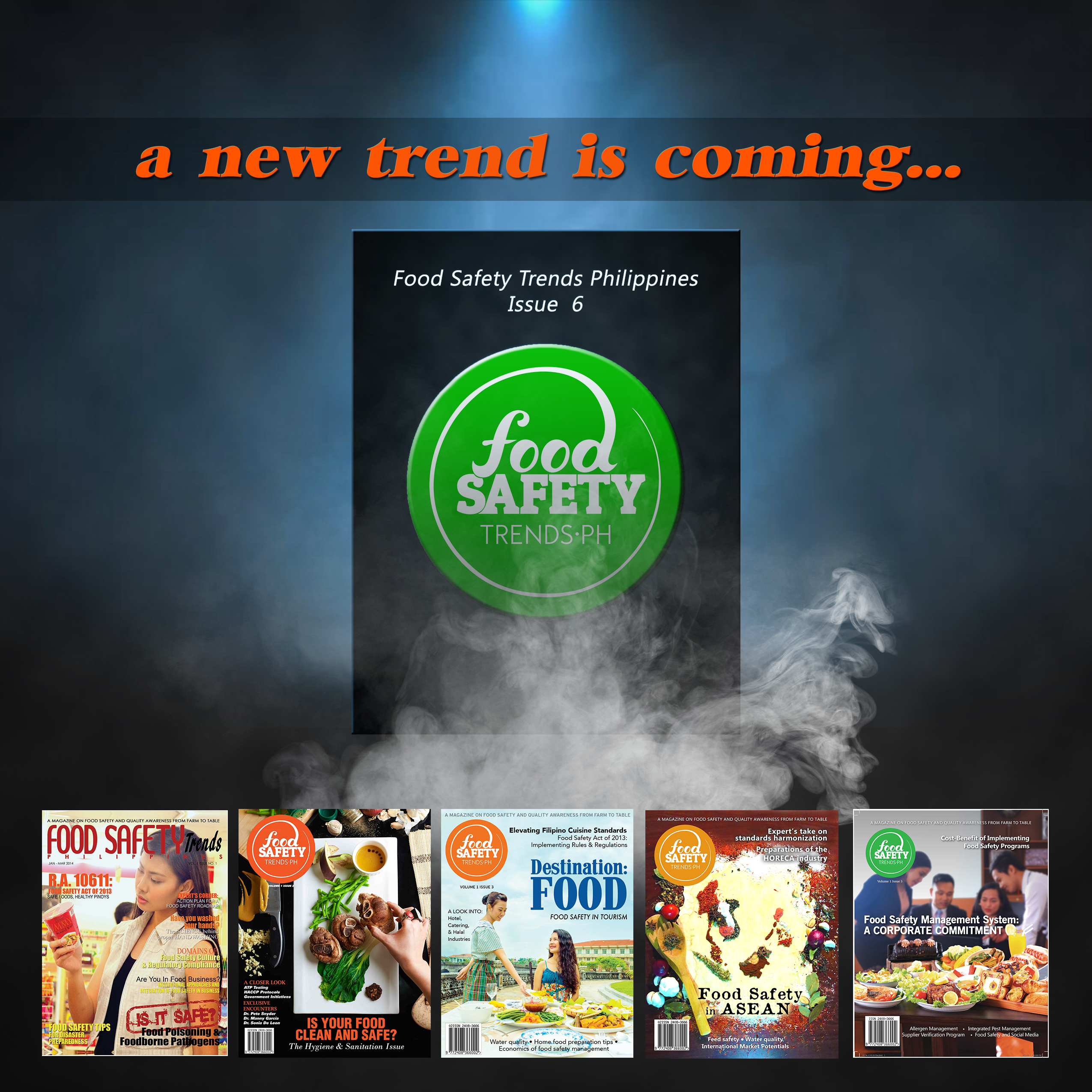
Be the first to get the new issue of Food Safety Trends Philippines Magazine! Be informed on the various trends and updates on food safety and quality awareness.
April 4, 2018
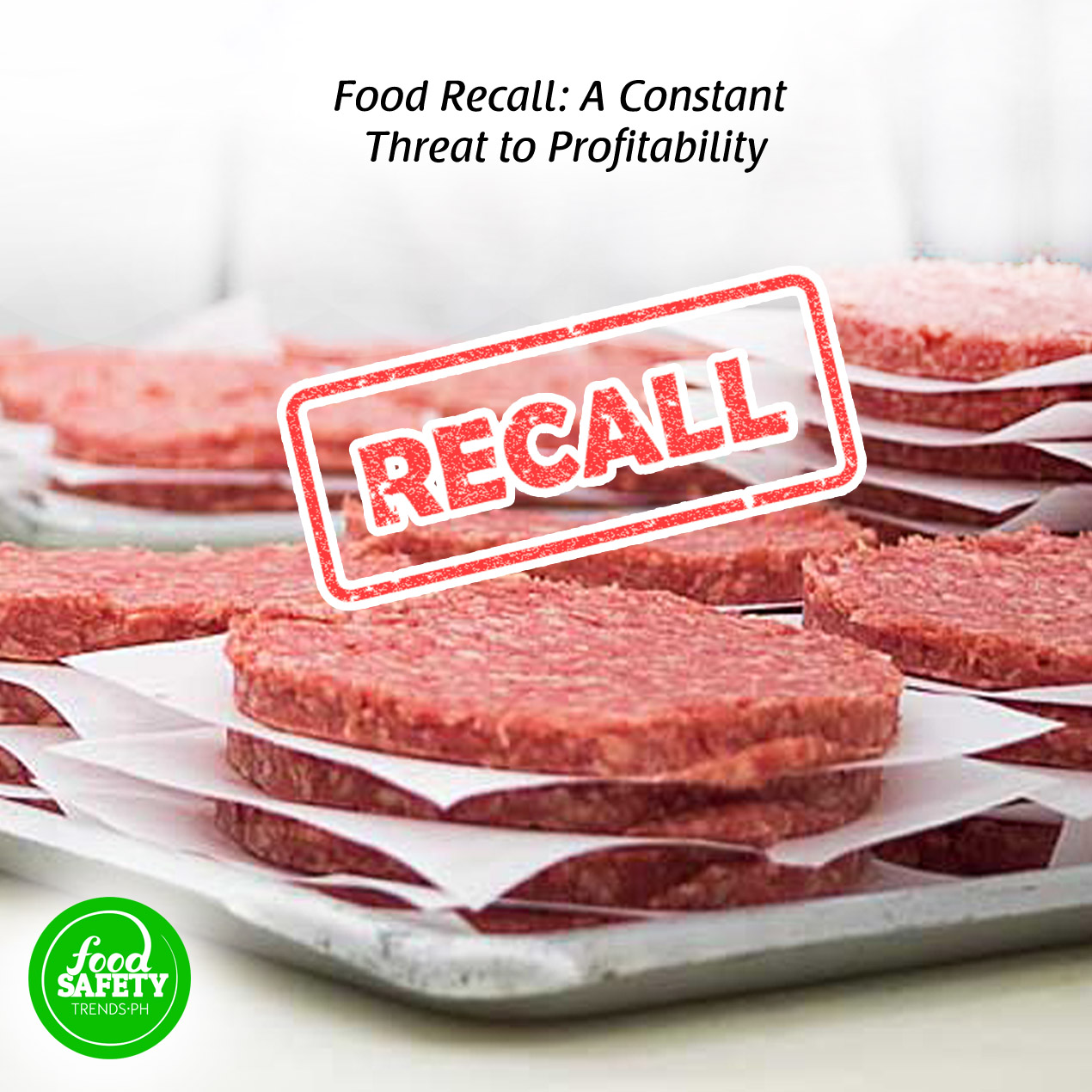
A food recall occurs when there is reason to believe that a food may cause consumers to become ill. Some reasons for recalling food include: (a) discovery of an organism in a product which may make consumers sick, (b) discovery of a potential allergen in a product, and (c) mislabeling or misbranding of food (e.g. presence of allergen).
April 3, 2018
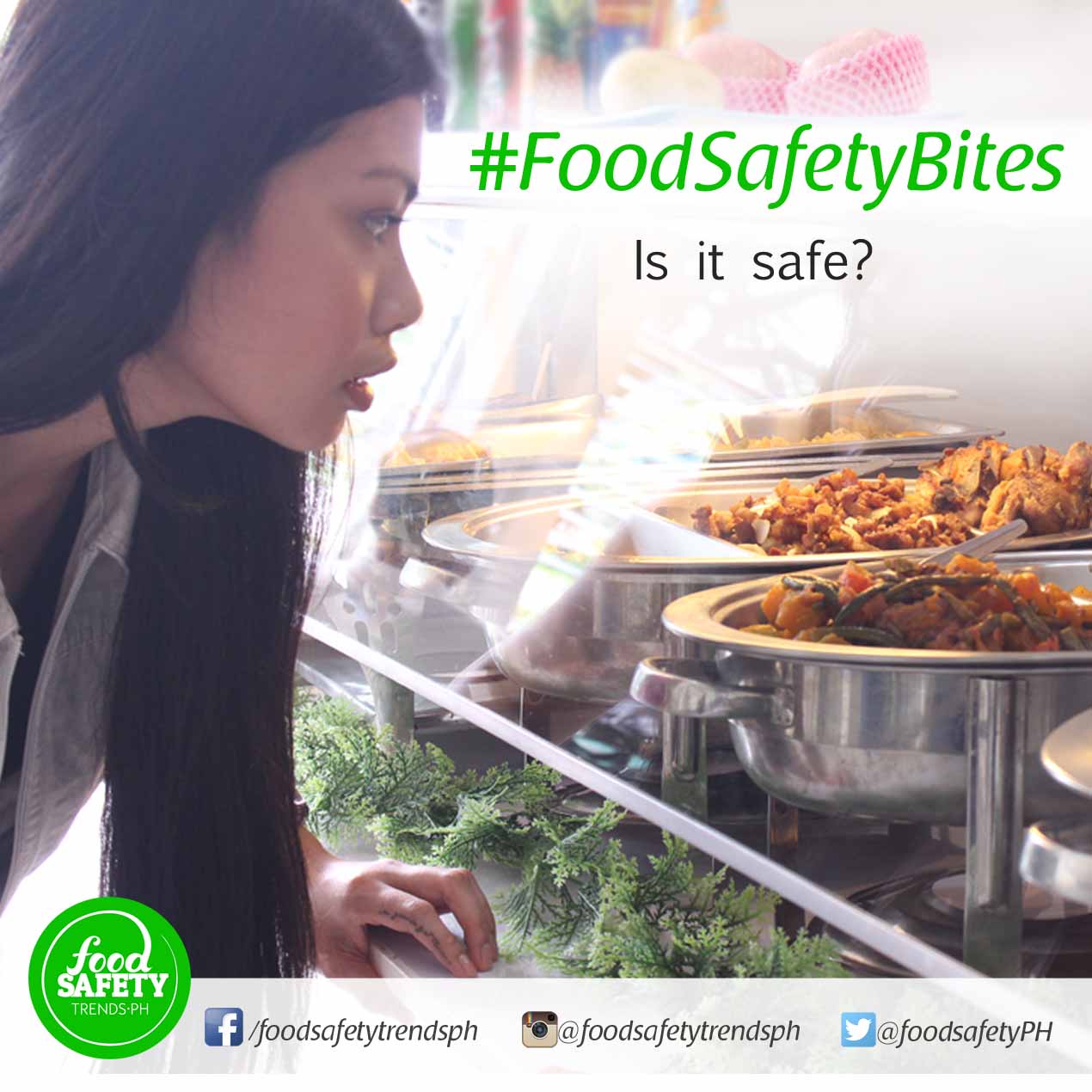
According to the US Centers for Disease Control and Prevention (CDC), the most common bacteria that cause food poisoning are Salmonella, Clostridium perfringens, and Campylobacter.
April 2, 2018
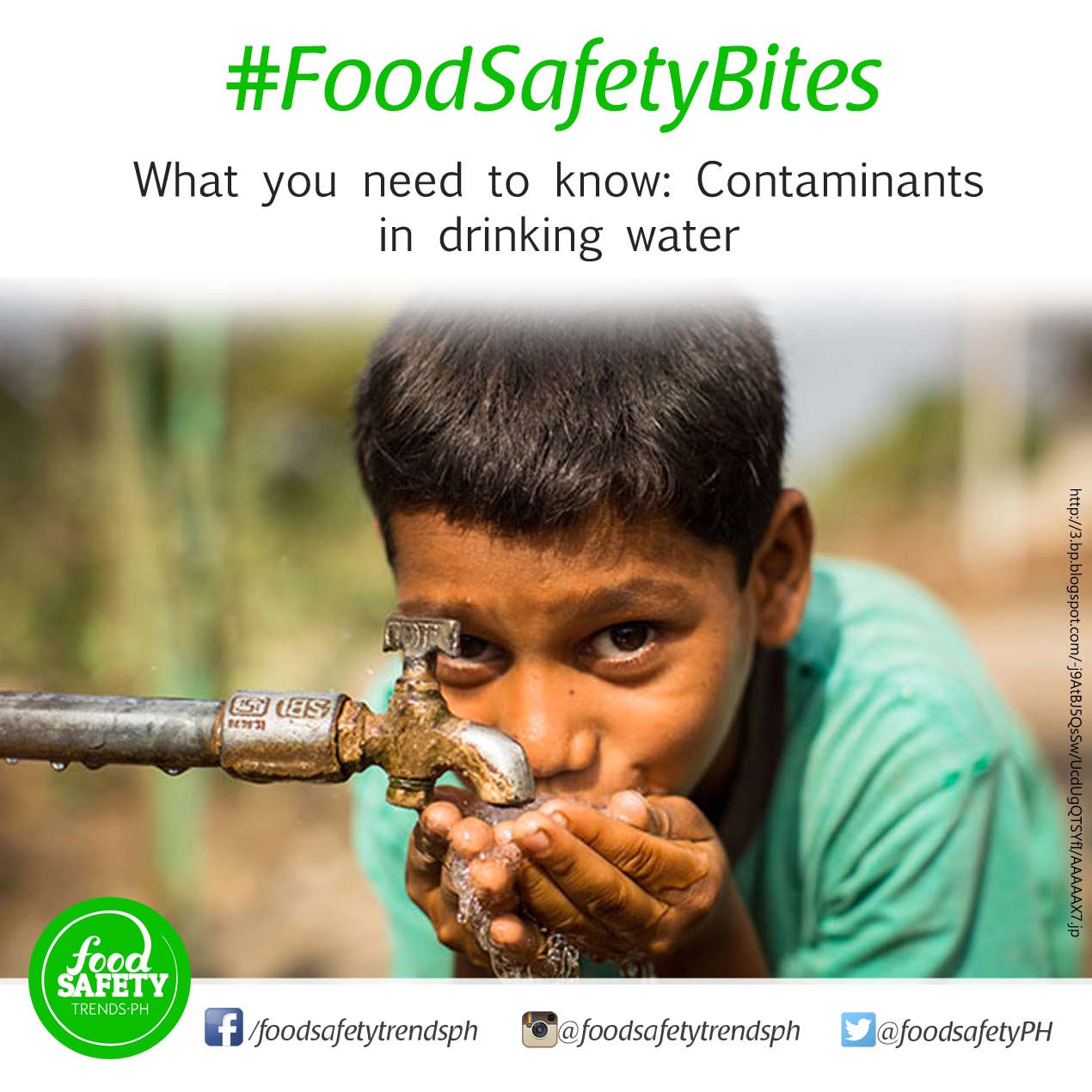
Drinking water may reasonably be expected to contain at least small amounts of contaminants. Some drinking water contaminants may be harmful if consumed at certain levels in drinking water while others may be harmless.
March 27, 2018
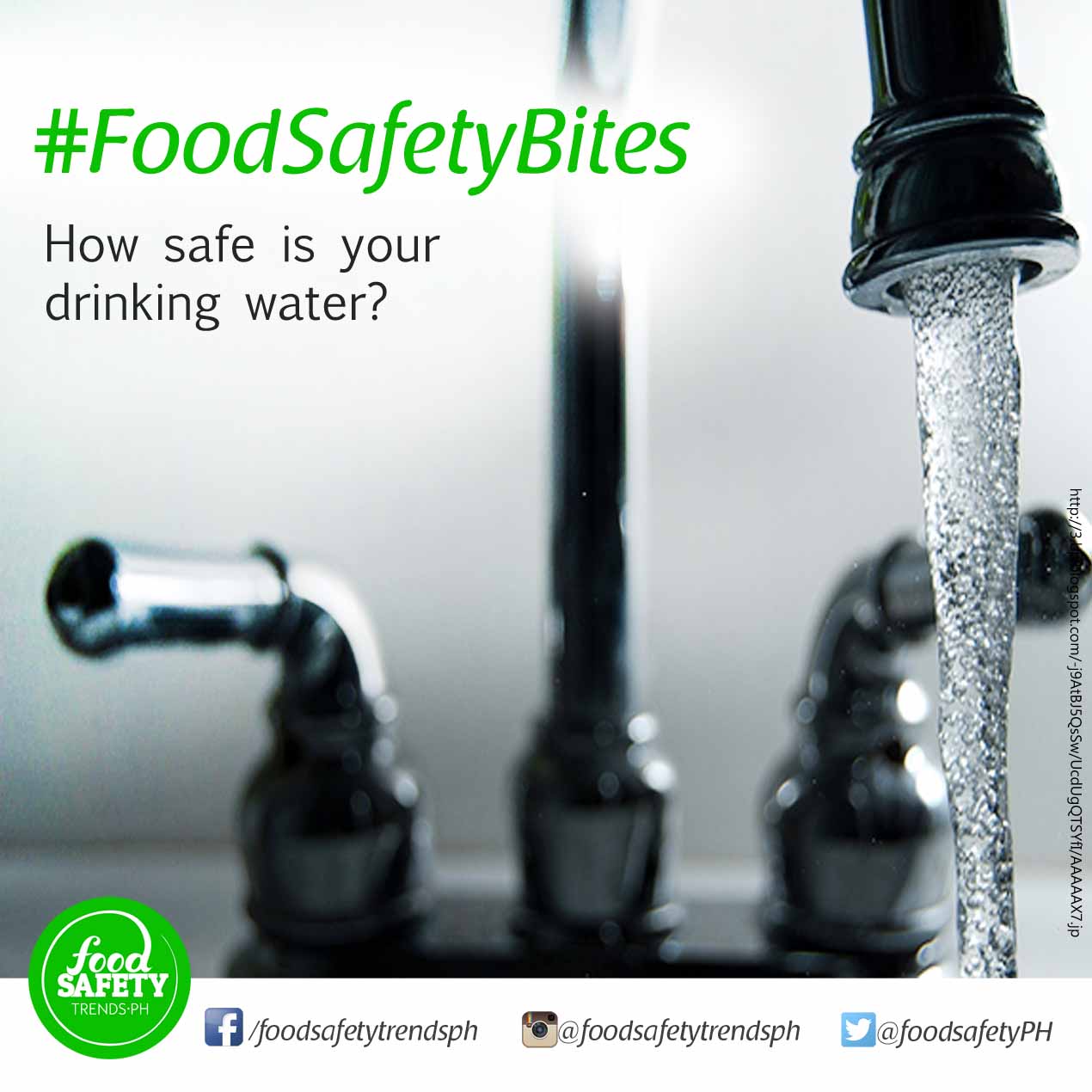
Drinking water comes from a variety of sources including public water systems, private wells, or bottled water. Ensuring safe and healthy drinking water may be as simple as turning on the tap from an EPA-regulated public water system; other water sources may need a water filter, a check on water fluoridation, or an inspection to ensure a septic tank is not too close to a private well.
March 22, 2018
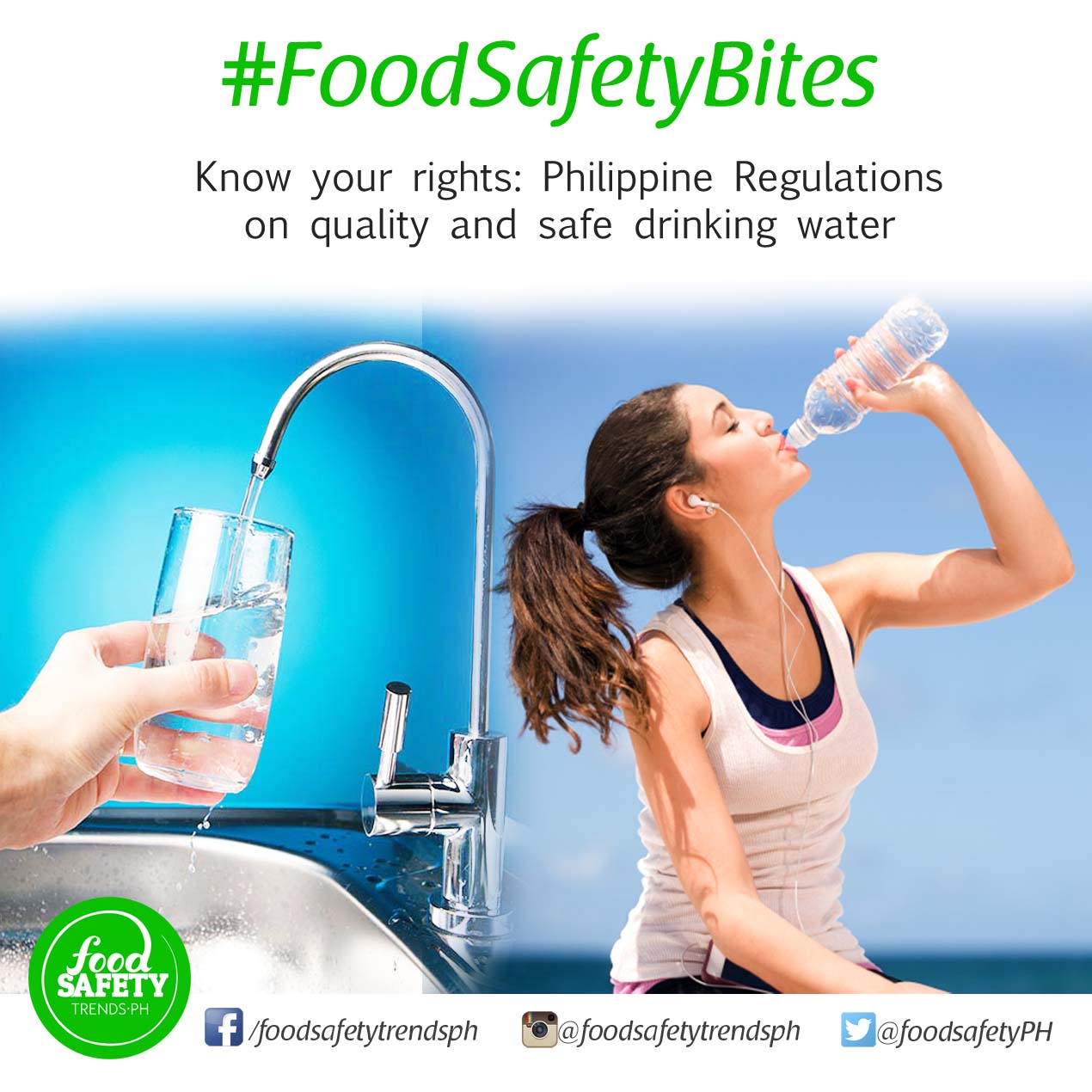
In the Philippines, two separate Administrative Orders govern different types of drinking water sources
March 21, 2018
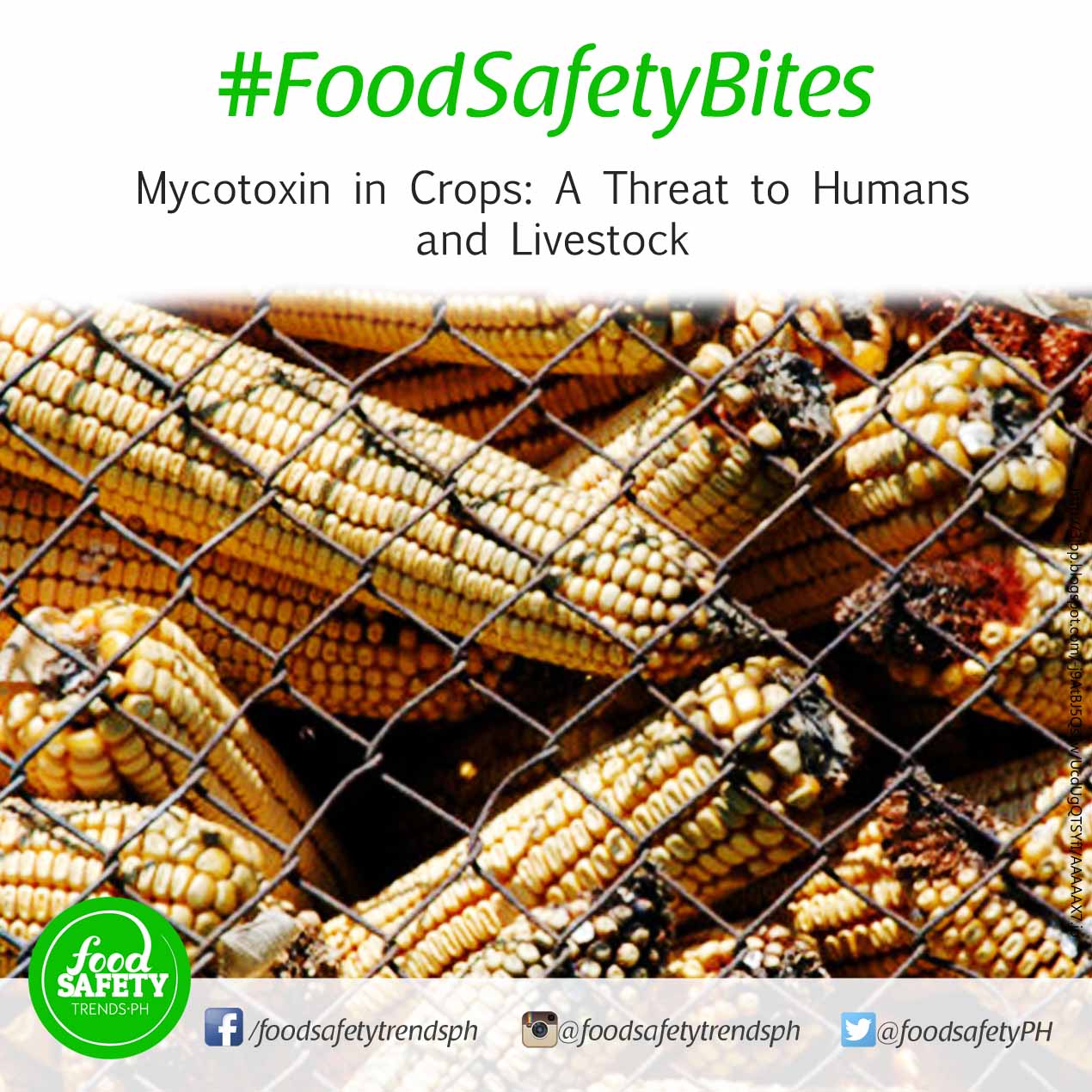
Mycotoxin contamination is a significant food safety concern in the grain industry. Consumption of mycotoxin-contaminated commodities can lead to acute and chronic diseases in humans and animals.
November 8, 2017
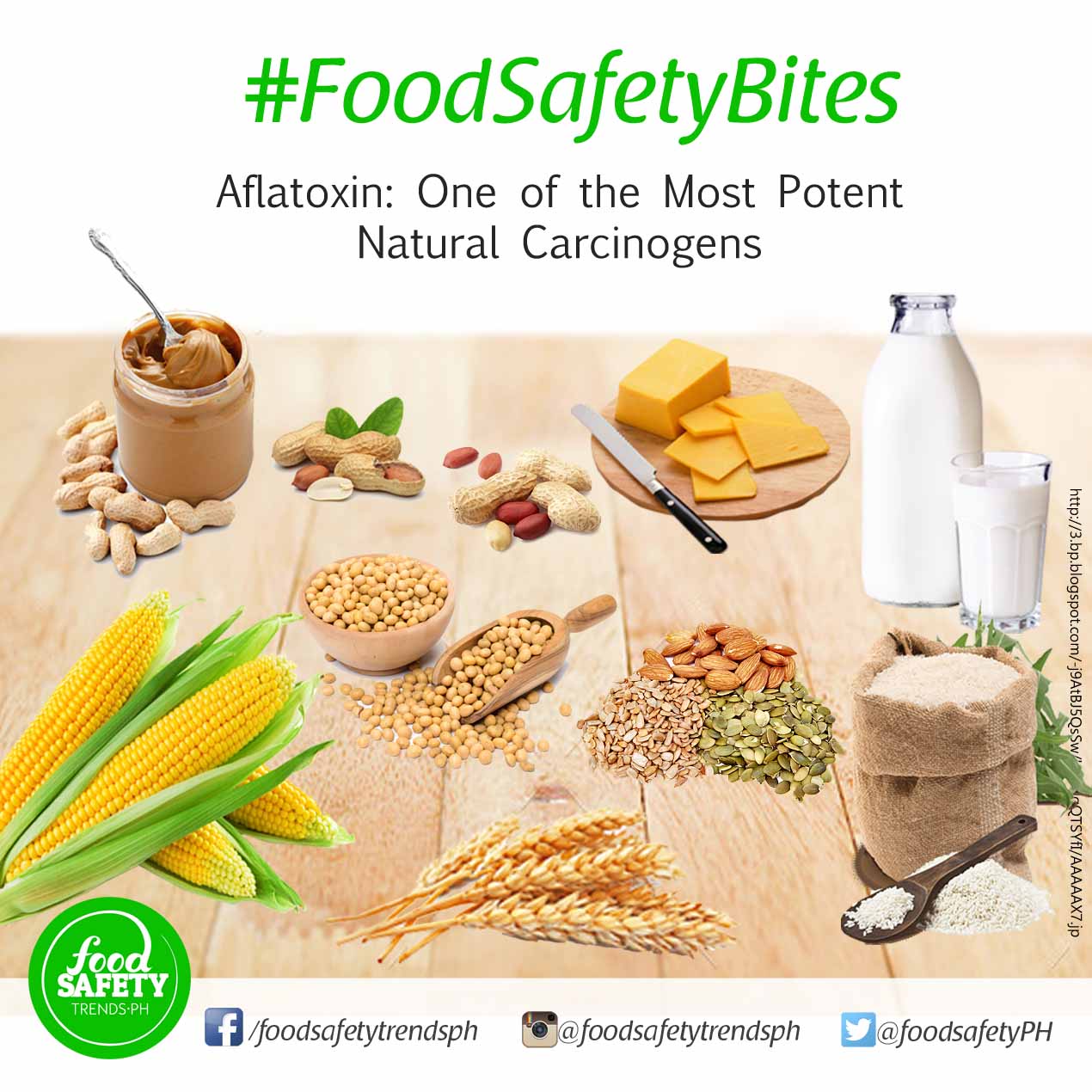
Aflatoxin is one of the most potent natural carcinogens known to man and has been linked to a wide variety of human and animal health problems.
November 6, 2017
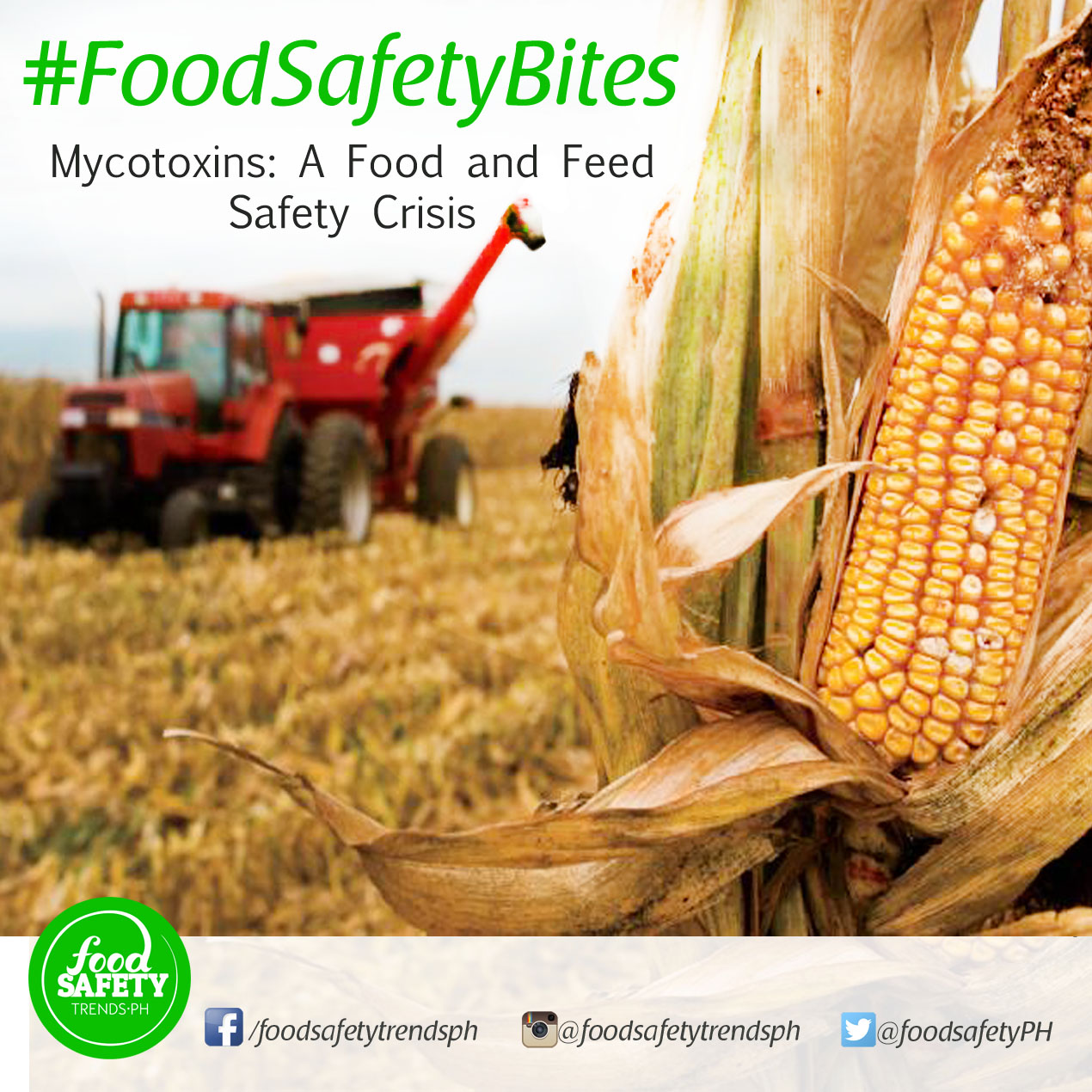
Mycotoxins are toxic substances produced by certain molds that contaminate various agricultural commodities pre or post-harvest. According to Food and Agriculture Organization (FAO), international trade in agricultural commodities such as wheat, rice, barley, corn, sorghum, soybeans, groundnuts, and oilseeds amounts to hundred million tons each year.
November 2, 2017
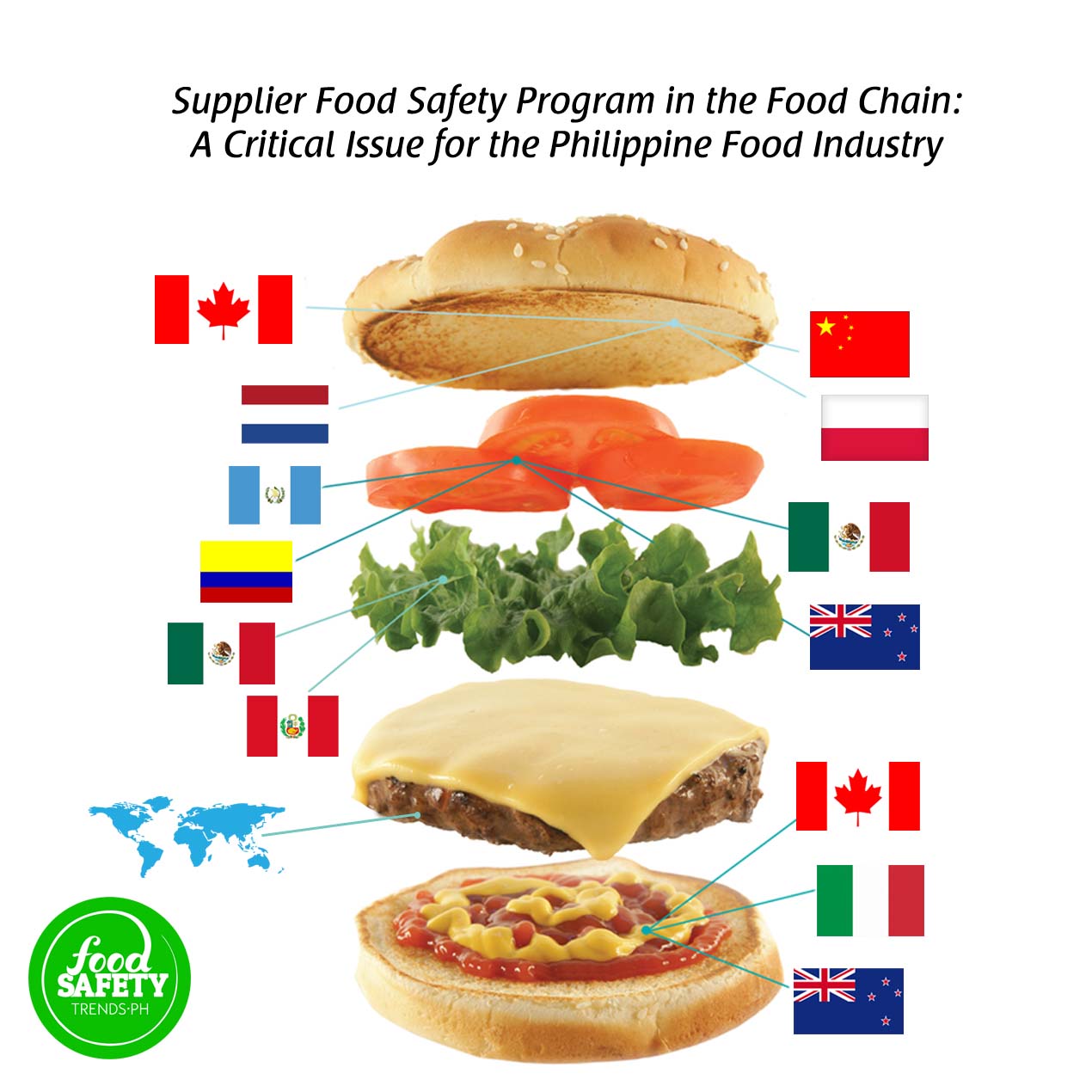
Since the acceptance of the farm-to-table concept in food safety systems, the importance of upstream sources in food manufacturing has become the recent focus in global trade. Keeping food safe as it travels along the food chain seamlessly is complicated. It is aggravated by global trade, which allows opportunities for spreading or transmitting an ever growing list of foodborne hazards.
October 9, 2017
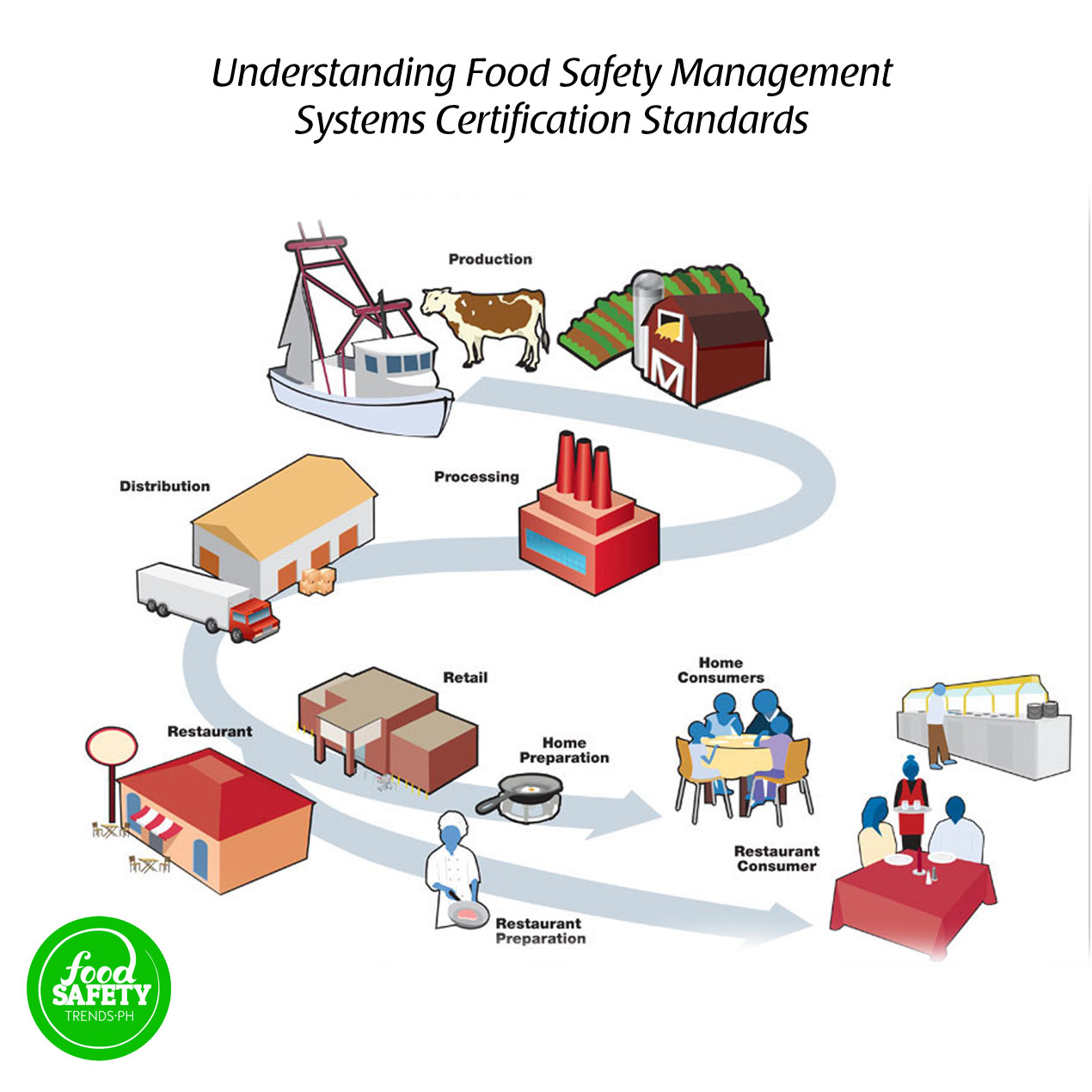
Internationally, the most widely applied form of self-regulation are the ISO certification and HACCP-based systems.
October 6, 2017
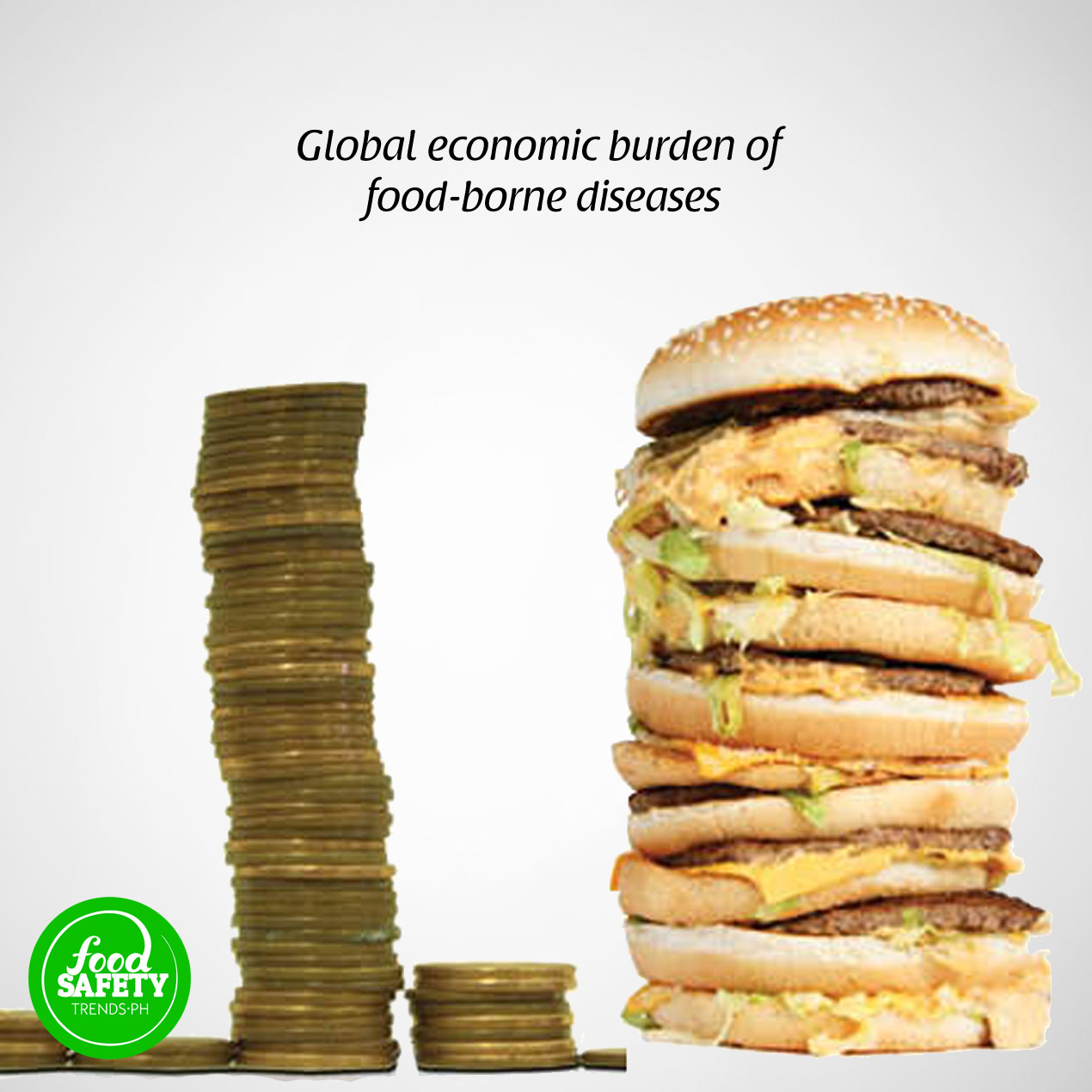
It is estimated that the yearly foodborne illness burden in the UK is £1.5 billion resulting from a million people ill with 20,000 receiving hospital treatment and around 500 deaths.
October 5, 2017
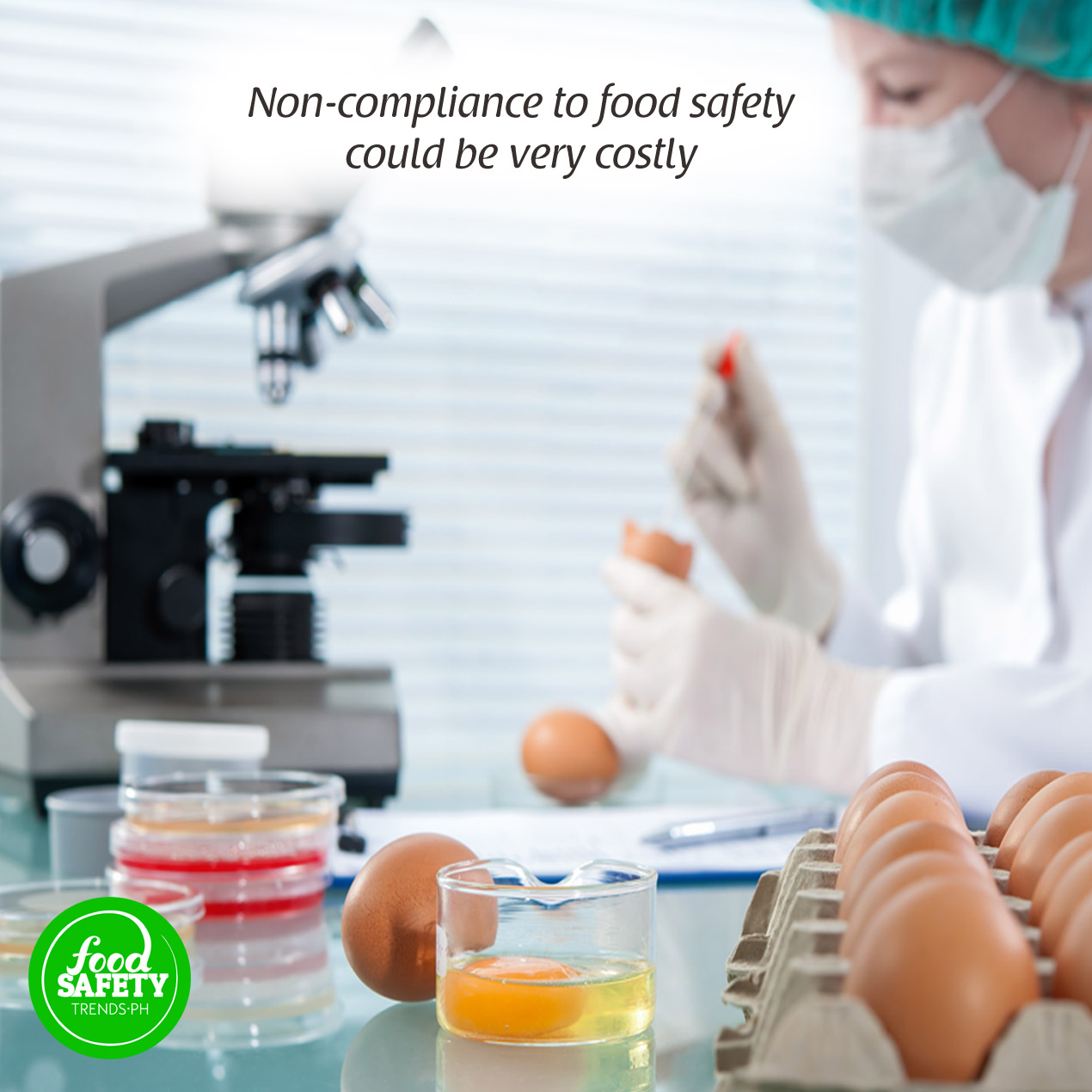
“There are multiple costs associated to health hazards caused by unsafe food, worst of which are the mortality of a fraction of the world’s population, and […]
October 2, 2017
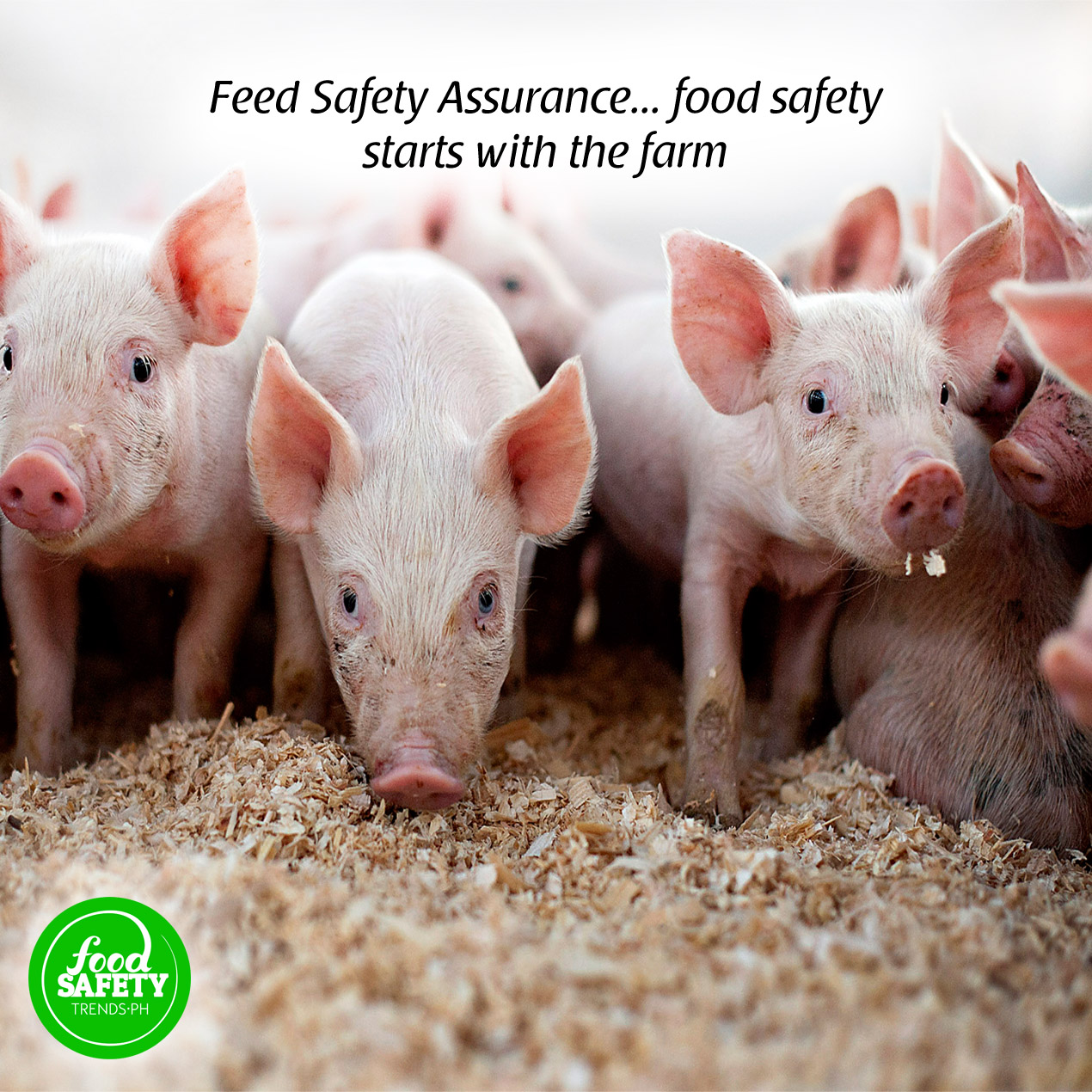
“As part of the food supply chain, it is the legal responsibility of feed manufacturers to ensure that only safe and quality products enter the food […]
September 26, 2017
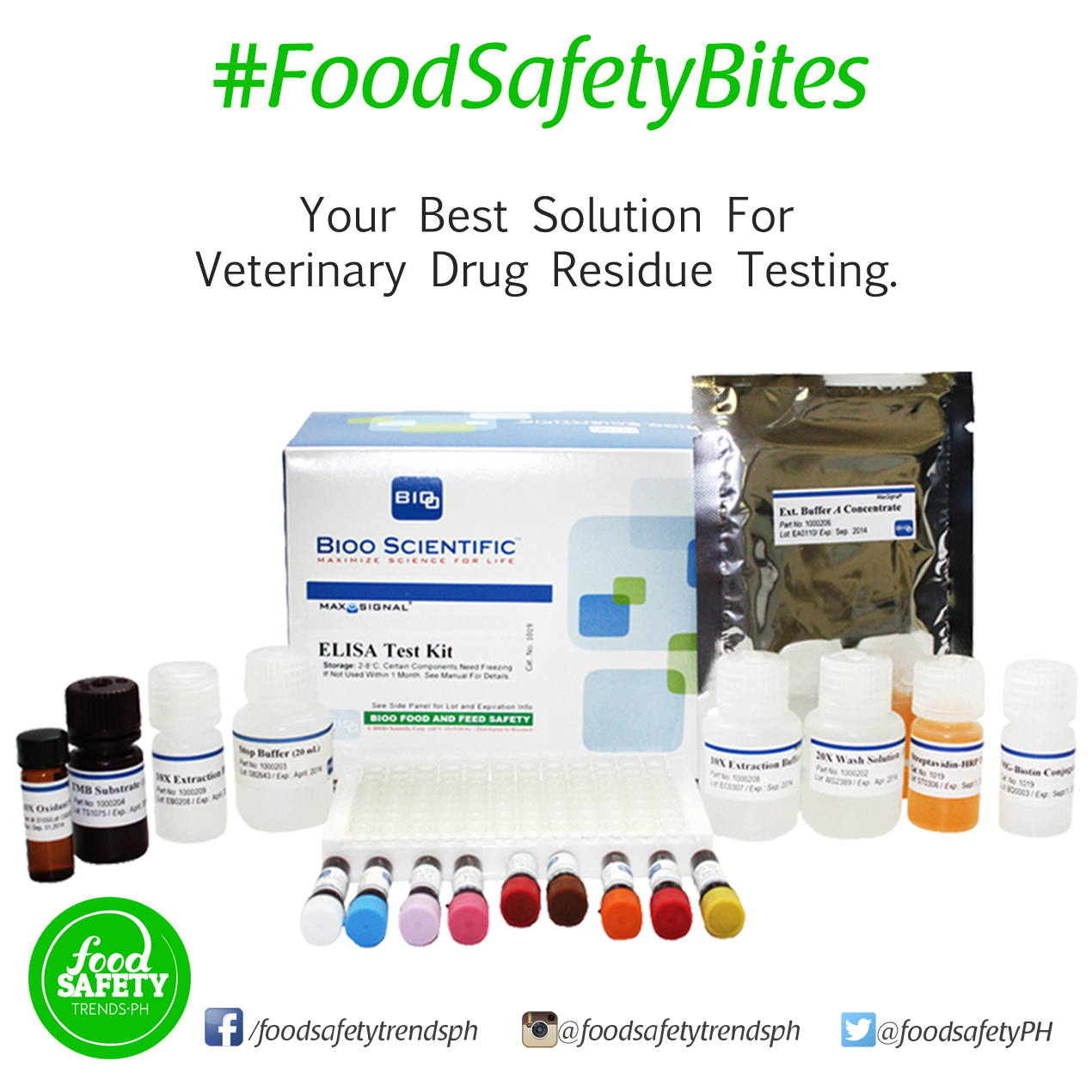
Glenwood Technologies offers a broad range of test kits for the screening of banned and restricted veterinary drug residues in a wide variety of food and […]
September 25, 2017
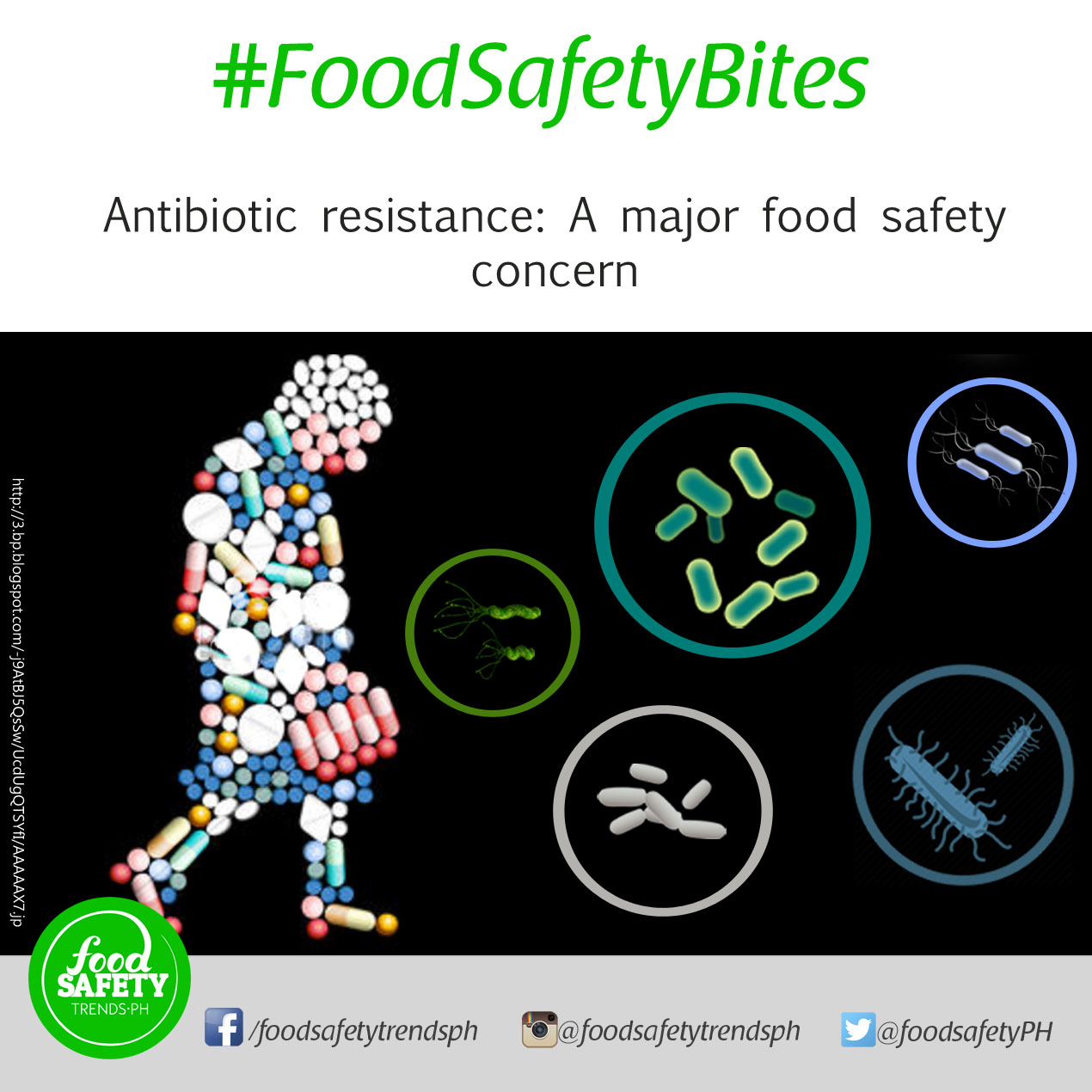
Misuse of antibiotics in food-producing animals can cause adverse health effects to humans. Contaminated food, once consumed, can cause antibiotic resistance, reducing the effectiveness of antibiotics […]
September 22, 2017
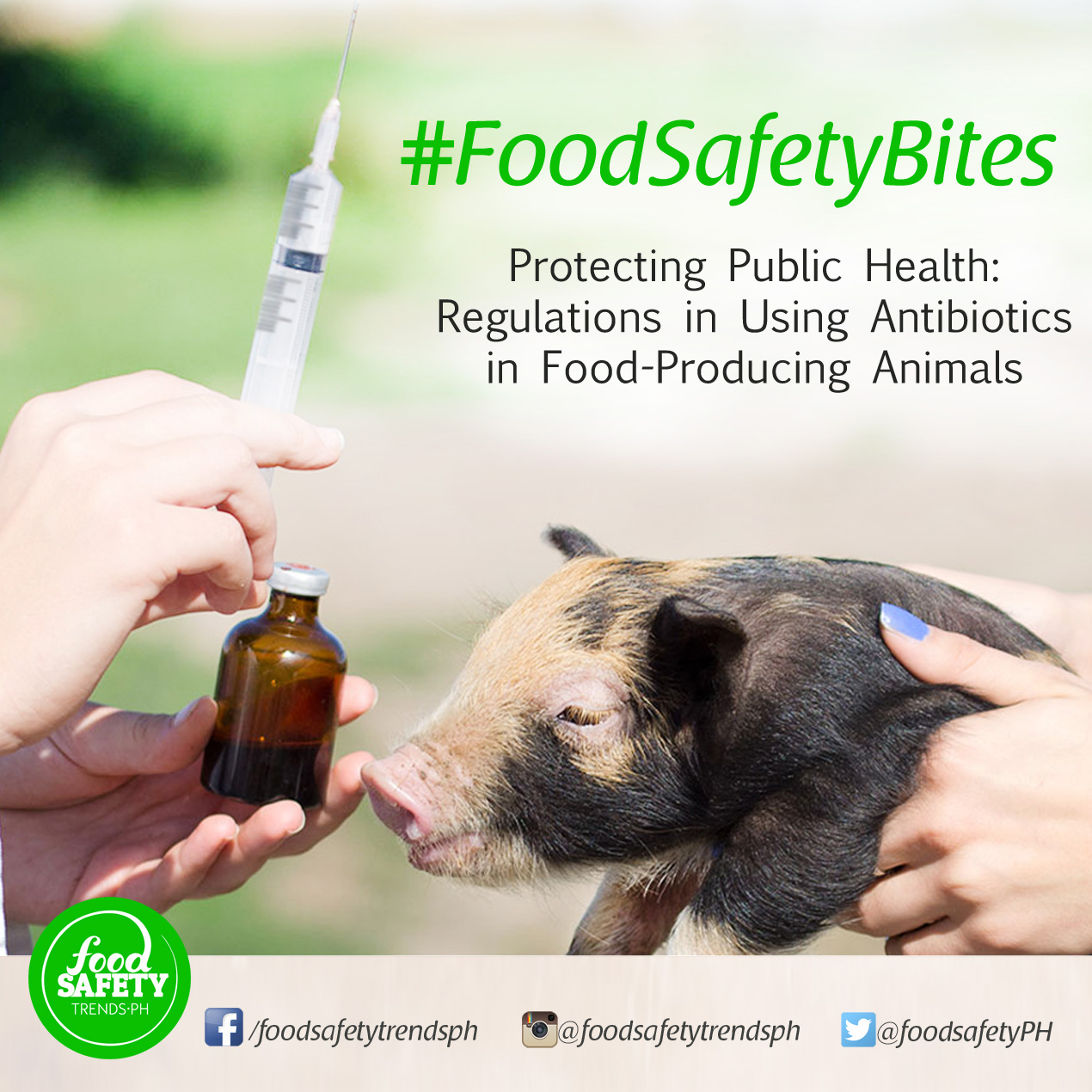
To promote consumer health against illegal use of veterinary drugs in food producing animals, the Department of Agriculture proclaimed Administrative Order No. 14 series of 2006, […]
September 21, 2017
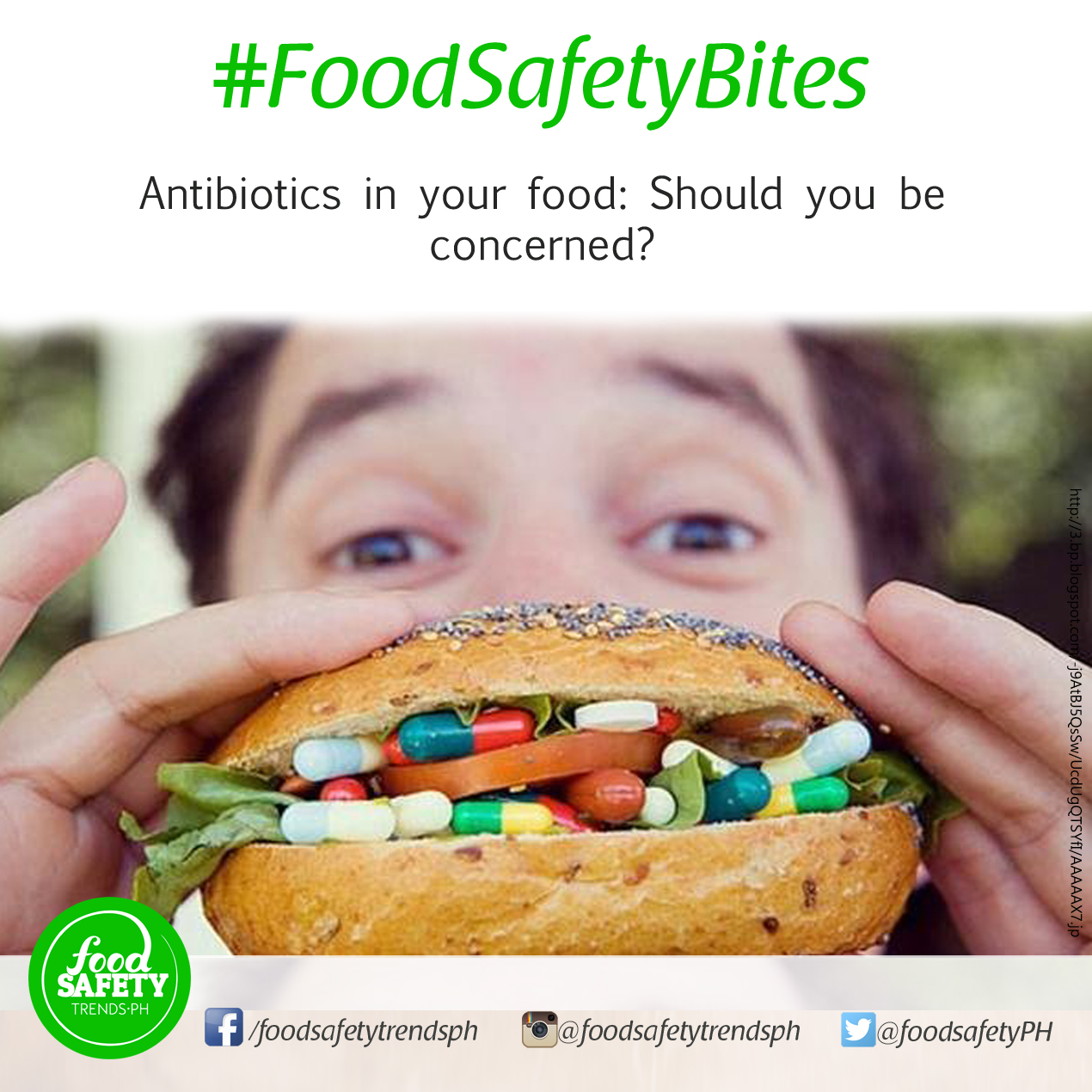
Veterinary drugs such as antibiotics are commonly used in food-producing animals to treat infections, prevent disease, or for growth promotion. Doses of antibiotics are either administered […]
September 20, 2017
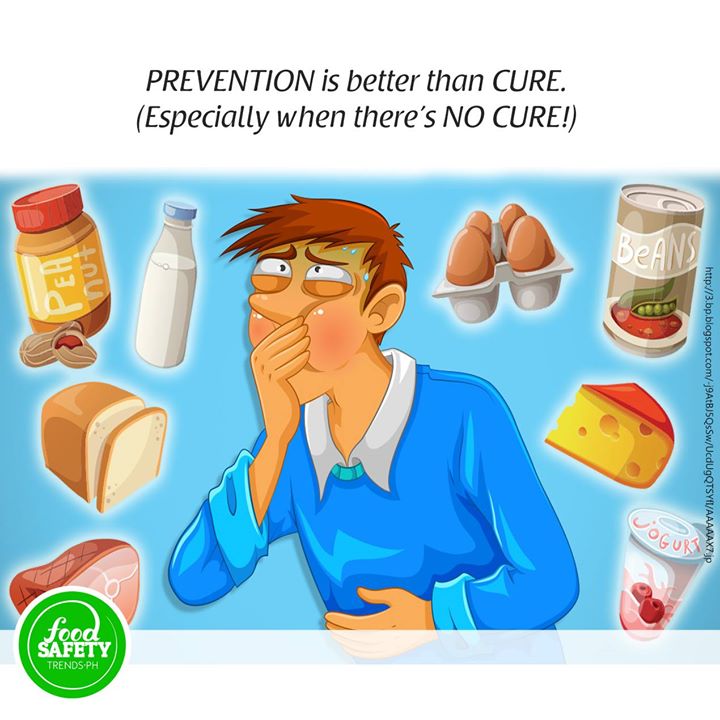
It’s more than the price, the taste or the fancy packaging, especially when you’re allergic to something. Check the labels and list of ingredients of the […]
September 4, 2017
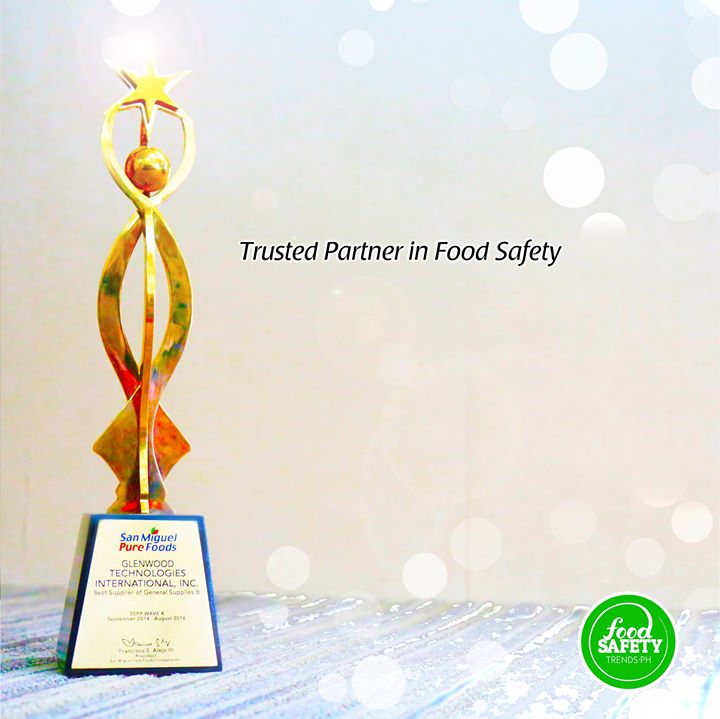
It is a privilege to be a part of the commendable food safety management system of various food companies. Moreso, it is an honor to have […]



